

Tourism: The Advantages, Disadvantages and How to Properly Travel
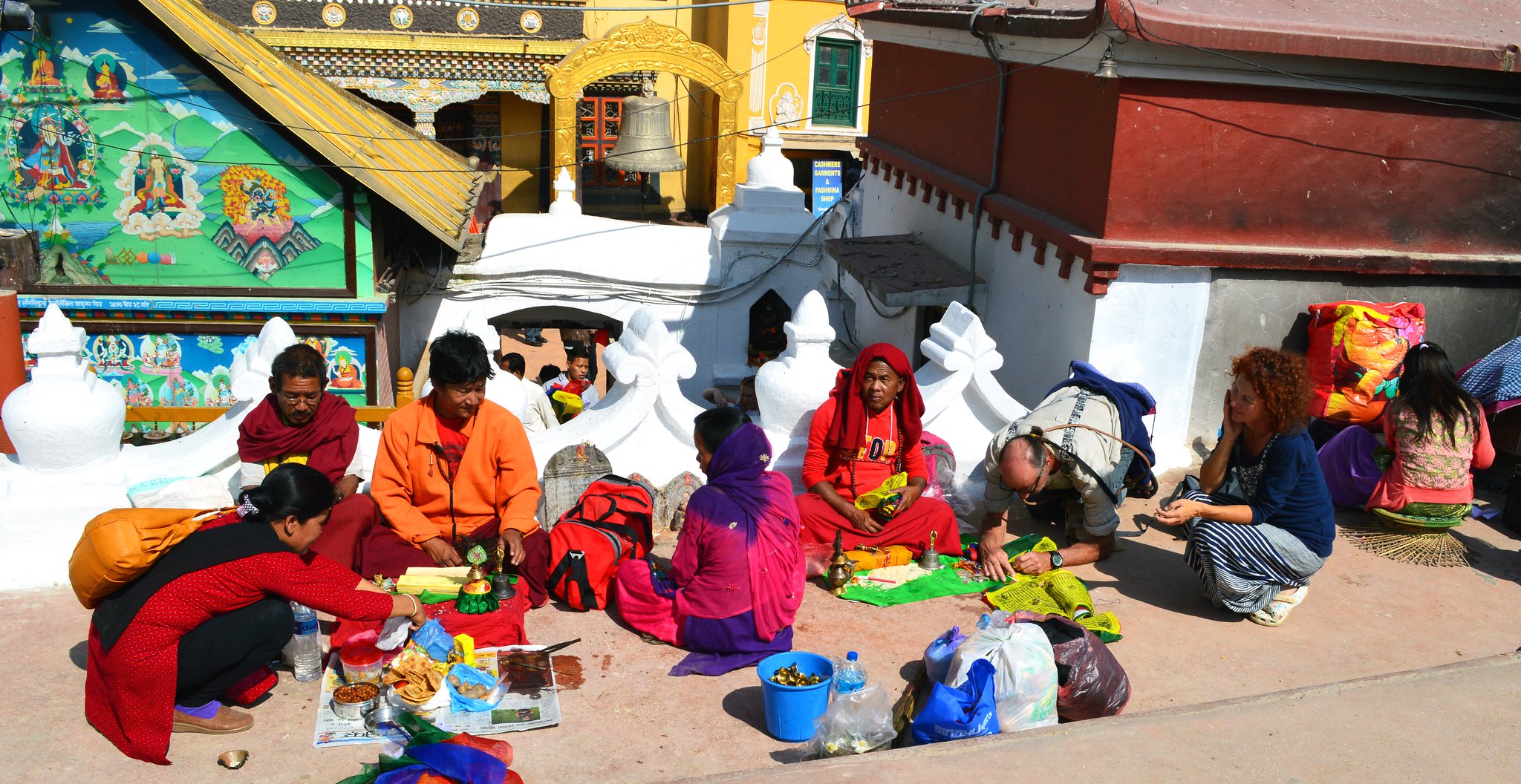
The Advantages
For developing countries, the advantages of tourism tend to be primarily monetary. A large scale tourism industry prevents larger, more harmful businesses from working off the land. Small tourist companies that reign on the land stops large capitalistic corporations from polluting the air or gentrifying people’s homes.
The tourism industry encompasses many different travel areas, which allows the majority of a country’s population to be employed . These employment places include hotels, car rental agencies, restaurants, tour companies, souvenir shops, and equipment shops, among others.
Profit earned from tourism can be reinvested into the country for better infrastructure, education, funding conservation efforts and creating more responsible ways of touring. Without tourism, many countries would not have the same level of access to education and infrastructure. Moreover, tourism allows hosts and visitors to share cultures and meet diverse groups of people. Through respectful interactions, a broader view of the world from both parties can be achieved. By reinvesting the money earned back into the country, tourism and its attractions can grow, creating a positive cycle for the country.
The Disadvantages
With the way the tourism industry is currently run, the disadvantages of tourism may greatly outweigh the advantages in a country. The first factor to take into consideration is environmental damage. When a country has a high tourist attraction, the number of people occupying a space increases immensely. As a result, the release of carbon monoxide gases can increase due to plane and car use affecting the country’s environment. Many countries with ancient ruins or natural attractions are also in danger of destruction or erosion with significant foot traffic and human interaction. Additionally, flora and fauna can decrease in areas or change their growth and migration patterns when there is an overflow of humans interact. Foot traffic and continuous touching can also slowly degrade the stability of ancient structures.
One of the advantages breached upon the sharing of cultures. While this is a great interaction of beliefs and customs, it can become destructive to a host country’s culture. One of the ways cultures can be disrespected is through the commercialization of countries’ cultures . When tourism booms, large industries swoop in and sell figures of the cultures’ icons or traditional wear, disrespecting the countries’ indigenous beliefs and can be harmful to the people living there. Moreover, poor behavior from tourists who don’t respect the spoken or unspoken codes of conduct held by indigenous peoples also undermines the sacred beliefs held within the country.
Also, for many countries, tourism is a seasonal occurrence. For people that work in the tourism industry, their jobs are only viable for a certain number of months, and after the season has ended, many are left without income. Many of these jobs also lack the benefits that other sector jobs supply. Tourism workers are often left without insurance or pension. Not to mention, foreign businesses tend to overtake the companies present in these countries, forcing small businesses to shut down. As a result, foreign businesses keep the majority of profits from tourism, while local businesses lose their income. This hurts small businesses and local economies.
As previously stated, the profit gained from tourism is often reinvested into the industry. However, with unequal infrastructure development, the tourism industry can inadvertently sustain itself without aiding a country’s other vital sectors. As such, many countries end up developing tourism hot spots while the rest of the country suffers. In these countries, there are visible socioeconomic gaps between the wealthy and the poor. Focusing mainly on the tourism industry and places of mass attraction leaves disadvantaged communities at risk of financial instability. Moreover, countries solely invested in tourism are vulnerable to quick economic falls as its working sectors are unevenly balanced. If a natural disaster, political unrest or unprecedented pandemic were to strike, the country would lose a massive income, causing an economic recession that some countries may significantly struggle to bounce back from.
Ways to Respectfully Travel
The most important step to being a respectful tourist is to be an educated tourist. Understanding and respecting the culture and the people of the country is vital. By not undermining tourism countries’ culture and beliefs, the people living there will be more welcoming to tourists, and cultures can flourish without fear of commercialization.
Being environmentally conscious is also important to the survival of these countries. Respecting a country’s land and structures preserve the countries’ beauty and keep the land clean and prepped for further development. Many countries are more environmentally strained, so reducing pollution or your carbon footprint in a foreign country can help ease the strain.
Supporting the small and local businesses found in these countries can help keep local communities employed and support the overall economy. As local businesses grow, more people will have the opportunity to be employed outside of the tourism sector, and the economy will be able to grow within itself.
By learning the advantages and disadvantages of tourism, and how one can improve the practice of traveling, the tourism industry will be able to change for the better and support the countries that host people from all over the world.
– Marlee Ingram Photo: Flickr
“The Borgen Project is an incredible nonprofit organization that is addressing poverty and hunger and working towards ending them.”
-The Huffington Post
Inside the borgen project.
- Board of Directors
Get Smarter
- Global Poverty 101
- Global Poverty… The Good News
- Global Poverty & U.S. Jobs
- Global Poverty and National Security
- Innovative Solutions to Poverty
- Global Poverty & Aid FAQ’s
Ways to Help
- Call Congress
- Email Congress
- 30 Ways to Help
- Volunteer Ops
- Internships
- Courses & Certificates
- The Podcast
What is Tourism and its pros and cons elaborated
Advantages and Disadvantages of Tourism: A Comprehensive Overview
Tourism is a crucial part of the global economy, contributing significantly to job creation , economic growth, and cultural exchange. However, tourism also has its disadvantages, including environmental degradation, cultural erosion, and the potential for exploitation. In this article, we will provide a comprehensive overview of the advantages and disadvantages of tourism.
Advantages of Tourism
- Economic benefits: One of the most significant advantages of tourism is the economic benefits it provides. Tourism generates income for local businesses and creates job opportunities for people in the host community. It also boosts the local economy by increasing the demand for goods and services.
- Cultural exchange: Tourism can be an excellent way for people to experience different cultures and ways of life. It promotes understanding and tolerance between different groups and can help to break down cultural barriers.
- Preservation of heritage sites: Tourism can help to preserve heritage sites by providing the necessary funding and resources for their maintenance and restoration. This, in turn, helps to protect the cultural and historical significance of these sites for future generations.
- Environmental awareness: Tourism can promote environmental awareness by encouraging tourists to adopt sustainable travel practices. This includes reducing their carbon footprint, conserving natural resources, and minimizing waste.
Disadvantages of Tourism
- Environmental degradation: Tourism can have a negative impact on the environment , including increased pollution, depletion of natural resources, and destruction of wildlife habitats.
- Cultural erosion: Tourism can lead to the erosion of traditional cultures and ways of life. This is especially true in areas where tourism is the primary source of income, and local communities are forced to adapt to meet the needs of tourists.
- Exploitation: Tourism can lead to the exploitation of local communities, particularly in developing countries where labor laws are lax, and workers are not protected. This includes low wages, long working hours, and poor working conditions.
- Overcrowding: Tourism can lead to overcrowding, particularly in popular tourist destinations. This can result in traffic congestion, longer wait times, and increased noise levels.
Tourism has its advantages and disadvantages, and it is essential to strike a balance between the two. The benefits of tourism can be significant, but we must also be aware of its potential negative impacts. By adopting sustainable travel practices and promoting responsible tourism, we can ensure that tourism remains a positive force for economic development, cultural exchange, and environmental preservation.
Are you struggling with your paper? Let us handle it - WE ARE EXPERTS!
Get started
Starts at $9 /page
Recent Customer Feedback
See more customer feedback.., how our paper writing service works.
It's very simple!
Complete the order form by providing as much information as possible, and then click the submit button.
Select your preferred writer for the project, or let us assign the best writer for you.
Allocate funds to your wallet. You can release these funds to the writer incrementally, after each section is completed and meets your expected quality.
Download the finished work. Review the paper and request free edits if needed. Optionally, rate the writer and leave a review.
Pros and Cons of Tourism
Be it Niagara Falls, The Grand Canyon, or the Amazon Rainforest, these places have numerous reasons to attract tourists every year. Tourists love to visit such spots looking for fun, amusement, and even finding peace of mind. Tourism has turned into a thriving industry in many countries. Governments and local communities reap the benefits of tourism in many different ways. But those advantages come with certain risks as well. However, like everything else, there are pros and cons of tourism . You should be taking a closer look at the good and the bad of tourism before you set a vacation schedule alone or with your friends and families.
What are the Pros of Tourism?
In 2021, tourism to Grand Canyon National Park made a significant contribution of $710 million to the local economy, reports National Park Service.
1. Economic Boost
Tourism is a significant contributor to the economy of a country. By attracting tourists, nations can create sustainable revenue streams, generate job opportunities, and boost growth across several sectors. According to a report by NPS, the park welcomed approximately 4.5 million visitors to the Grand Canyon, spending an estimated $710 million in the surrounding gateway regions.
2. Cultural Exchange
Travel can bring people together and provide a unique opportunity to share ideas and experiences. Travelers often have an open mind about different cultures and customs, so they are eager to explore new places. This type of exchange can break down cultural barriers between countries by allowing each party to understand the other's culture better. This exchange of cultural values can be counted as one of the major advantages of tourism.
3. Environmental Conservation
All natural heritages are tourist spots, and people come to admire the view. One of the significant advantages of tourism is that it can help protect and preserve the environment. Local governments can invest the revenue generated by tourism for the betterment of environmentally sensitive regions and areas with fragile ecosystems.
4. Improved Infrastructure is Among the Pros of Tourism
With the influx of tourists, countries can consider upgrading their infrastructure to accommodate visitors' needs. This includes constructing new airports, roads, accommodations, and public facilities such as parks and museums. This positive change can be felt both by the tourists and the inhabitants.
5. Global Recognition
Tourism is an essential part of many countries economies, and it can also provide significant global recognition for the destination. A well-designed tourism strategy that attracts a high volume of international visitors can bring in foreign money, create jobs, and help to develop infrastructure. It also raises awareness about an area, leading to increased interest from the rest of the world.
What are the Cons of Tourism?
Besides the positive changes, tourism also has its share of downsides. Most of the cons of the tourism industry are associated with the misuse of natural resources. Some of the other problems with tourism include:
1. Environmental Damage
Tourism can lead to environmental damage in many ways. For example, it can impact water resources through increased water and wastewater production demand. It can also add to pollution by generating emissions from transportation as visitors travel around the area. Additionally, tourists may increase pressure on local land resources, leading to deforestation and loss of habitats for native species.
2. Displaced Communities
Tourism often brings economic benefits to local communities. Still, when done in a way that does not consider the local community's needs and aspirations, it can cause displacement. Communities may be displaced from their traditional lands or homes, pushing them away from the resources they need for subsistence. This can be particularly detrimental if these resources are already scarce or difficult to access.
3. Cultural Erosion
Cultural Erosion is one of the most dreaded cons of tourism. A tourist destination with a distinct local culture is prone to changes due to the influx of tourists. The more tourism activities are higher the chances of community displacement.
This phenomenon is often compounded by the fact that many tourists come from cultures very different to those of the local community, and their presence can lead to a sudden change in cultural values. This rapid transition can significantly damage a community as its members may no longer feel represented or respected.
4. Economic Dependence
The COVID-19 pandemic best explains how tourism can suddenly burden an economy. As the pandemic wiped out all income for many countries' businesses, many had to rely heavily on government support and bailouts as their primary sources of revenue. This has resulted in rising debts due to emergency aid distributions and other fiscal measures associated with relief during this crisis.
5. Overcrowding
Visiting a particular area can harm the environment and local culture as tourism grows. One of the main disadvantages of tourism is overcrowding, which can strain resources, increase pollution, and damage natural habitats.
Overcrowding can decrease the quality of life for residents, as tourists take up public space and resources. It can also affect the health and safety of visitors who may be exposed to increased levels of crime or air pollution.
Conclusion on the Pros and Cons of Tourism
The pros and cons of tourism are complex if you evaluate them thoroughly. It is easy to see that people benefit from increased access to new cultures, experiences, and destinations.
On the other hand, there are real risks associated with tourist activities like over-tourism and the destruction of natural spaces. Therefore, it's up to individuals to assess these impacts on their own terms. It's up to every citizen to become responsible travelers who understand tourism's positive and negative effects.
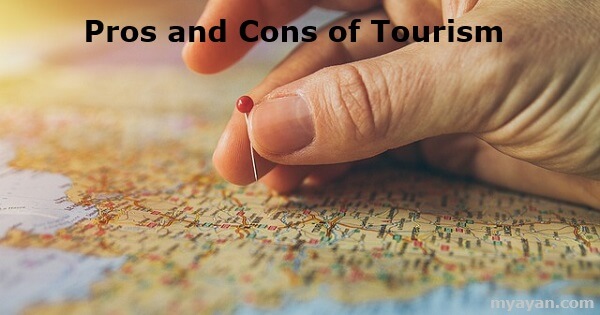
Frequently Asked Questions
What are the cons of tourism.
Tourism frequently exerts excessive strain on natural resources due to overconsumption, particularly in areas with limited resources. It places immense pressure on local land utilization, resulting in soil erosion, heightened pollution levels, loss of natural habitats, and increased jeopardy for endangered species.
What are the pros of tourism?
It fosters job creation, bolsters the local economy, facilitates infrastructure development, preserves the natural environment and cultural heritage, and works towards alleviating poverty and inequality.
What are the social benefits of tourism?
Tourism brings forth numerous social benefits, showcasing its positive impacts on society. These encompass the preservation of local culture and heritage, the fostering of vibrant communities, the provision of essential social services, the promotion of cultural and artistic commerce, the revitalization of customs and art forms, as well as the safeguarding of our precious heritage.
Who does tourism help?
Tourists contribute to the local economy by spending their money, leading to job creation and economic growth. This support is particularly crucial for small businesses, which often struggle to generate substantial profits.
What's your reaction?
Quick links.
- » Home
- » About us
- » Contact us
- » Post Article
- » Privacy policy
- » Terms and Conditions
- » Health and Wellness
- » Education and Communication
- » Computers and Electronics
- » Personal Care and Style
- » Travel Updates and Tourism Guide
- » Finance and Business Sector
- » Food and Entertainment
- » Home and Garden
- » Automobiles Sector
The Disadvantages of Tourism – What Happens When Travel is not Sustainable
This post will highlight some of the common disadvantages of tourism, and the negative impacts it can have on destinations when it is not managed in a sustainable way.

Table of Contents
The problem with tourism
In 2019 (pre-COVID), international tourist arrivals grew to 1.5 billion and the industry generated 1.4 trillion USD dollars of tourism receipts ( UNWTO ). It was the tenth straight year of growth, with arrivals continuing to increase each year. The receipts from tourism were even growing at a faster rate than global GDP! Ten years of rapid growth, and in many destinations, limited restriction or control on that growth has left tourism causing some pretty serious damage to the destinations it occurs in. It is only in recent years that sustainable tourism has really become a serious priority for destinations and operators around the world. In many cases, it has been out of necessity, in an attempt to resolve the issues unsustainable tourism has caused over the years.
Now, I love to travel. And this list is by no means designed to try to make anyone stop travelling (COVID has already done that for us…). But I think it is really important as travellers to be aware of the issues we are contributing to. Either directly or indirectly. The negative impacts of tourism are usually classified into three different areas, economic, social and environmental. In this post, I will share four negative impacts tourism can have in each of these areas. This list is by no means exhaustive, and there are (unfortunately) many other disadvantages of tourism. But the idea of this post is to highlight the problems with unsustainable tourism.
Economic disadvantages of tourism
It might seem hard to believe that there can be economic disadvantages of tourism when it produces so much revenue. But the economic side of tourism is more than just profits. And unsustainable tourism driven by profits only can have dire consequences for the destinations it occurs in.
Over reliance on tourism
Countries can become over-reliant on tourism, with a large portion of their economy and GDP coming from tourism. The situation the world finds itself in now with COVID could not be a better illustrator of the damages of being over-reliant on tourism, a very volatile industry. But even before a global pandemic, this was still an issue. Tourist’s destination preferences change easily, and it doesn’t take much to sway them away from a particular destination. Relying on tourist’s to come back to the same place year after year is risky. Events such as natural disasters, terrorism, health concerns or even just a change in trend can leave countries that were thriving on tourism empty.

Low quality employment
It’s true that tourism generates employment for many. But often these jobs are low paying and seasonal. With employees completing menial tasks with little room for progression or career advancement. It’s not uncommon for establishments like resorts to hire international staff for senior, managerial roles. Usually from more economically developed countries. This leaves local workers stuck in low-level roles, paid peanuts and not guaranteed year-round work.
Tourism dollars leaking out of local economies
A major economic issue with the tourism industry is that of leakage. You can read about this issue in more detail here. But basically, leakage is when a portion of tourism income does not stay in the destination where the tourists visited. Money ‘leaks’ out to more developed countries. This usually occurs through international companies such as airlines and resorts taking their profits back to their headquartering countries. And the local destination and community do not get the economic benefits of the tourists that have visited.

Favoured over other industries
In countries where tourism is a major industry sector, the government can sometimes focus all their energy and funds on the industry. This is often at the peril of other important industries like education, infrastructure and healthcare. This can result in pristine tourist areas, new infrastructure and funding for the benefit of visitors. But what about the locals who live in the country? They might not enjoy anywhere near the same level of development.
Social disadvantages of tourism
The impacts of tourism on society and culture are often contested and deeply complicated. Tourism is just one of many forces that can impact on and change cultures, like globalisation, technology and the media. But there is no denying that tourism and culture and society are inseparable. And there are some major disadvantages of tourism in this area.
The commodification of culture
This is one of the most complex, morally challenging and difficult parts of tourism. It warrants an entire discussion of its own, but in short, tourism can turn culture into a commodity. When traditional culture becomes an attraction, that people pay to see, this raises complicated ethical issues. Often times the culture that is presented to tourists has been adapted to be more appealing to the visitor. Traditional dances and costumes are amended, ceremonies or rituals are shortened, and handicrafts are often made smaller or lighter to fit in suitcases. Only certain elements of a culture are deemed worthy of presenting to tourists. And usually, there is a whole host of problems behind closed doors that tourists are never exposed to or aware of. The culture of a destination as seen through the tourists’ eyes is not authentic at all.
Erosion of culture
This issue is different to the previous issue in that culture can not only be commodified but in many cases lost altogether as a result of tourism. The ‘demonstration effect’ occurs when locals, particularly in traditional or indigenous cultures, observe the behaviours of visitors, usually Western tourists. Exposing the locals to a completely different way of life can lead to changes in their local culture, particularly from younger members of the community. They can begin to mimic and replicate the cultures of the tourists who visit and move away from the customs and traditions of their own culture.

Tourists behaving badly
When people are on holiday they tend to leave their moral compass at home. They are relaxing, want to have a good time, and outside of their usual environment. This can lead to major clashes between tourists and locals, and leave the locals wishing the tourists had never arrived. Whether intentionally or unintentionally, tourists can offend locals and make them uncomfortable in their own homes. Dressing inappropriately, not being aware of culturally unacceptable behaviours and general bad behaviour through the use of alcohol and drugs are just some of the bad behaviours tourists bring to a destination.
Physical damage to built culture and heritage
The Colosseum, Petra, Angkor Wat, the Great Wall of China. Some of the biggest tourist attractions in the world are ancient, historical sites, built centuries ago by different civilisations. These physical representations of ancient cultures are old and fragile. And having thousands, sometimes millions, of tourists tramp through them each year places a lot of strain on the structures and can cause irreparable damage. Not all damage is deliberate on the part of the tourists, but simply having people walk over old stones, touch rock walls and lean on sites can cause irreversible erosion and damage. However many sites are suffering from the deliberate actions of tourists. Littering, graffitiing, taking pieces of the site home with them and climbing on off-limits structures.

Environmental disadvantages of tourism
The negative impacts of tourism on the environment are often the most publicised and talked about. They are easier for us to physically see and quantify, so it can be easier to talk about them. But the impacts that tourism can have on the environment are very complex and can be both direct and indirect. The environment is a complicated web of ecosystems, and one small action can have rippling effects throughout an entire area or species. This is by no means an exhaustive list of the negative things tourism can do to our environment. But some of the issues listed are a bit easier to quantify, where tourism has a direct impact.
Intense use of resources
Tourists, like all people, use resources such as water and energy. However many popular tourist destinations around the world are already dealing with resource scarcities, and tourism can severely exacerbate the problem. Tourism as an industry is a massive overuser of water. Swimming pools and golf courses require a lot of water, and I can’t think of something more synonymous with a holiday than a swimming pool. Tourists themselves tend to use more water than when they are at home, and doing their laundry can consume a lot of water and energy. Cooling and/or heating large hotels and resort complexes and their swimming pools also require a lot of electricity.

Physical damage to natural and marine areas
Tourism takes place in some of the most pristine, yet fragile natural areas in the world. Hiking in the rainforest, snorkelling in coral reefs and climbing alpine mountains are just some of the many activities that can physically impact and damage the natural environment. Vegetation can be damaged having tourists continually trampling over the same paths (and often going off the path too). Corals are damaged by boats and anchors, and tourists (accidentally or not) touching and breaking them. This damage has major flow-on effects on the wider ecosystems and can indirectly impact entire ecosystems and species.

Increased waste, pollution and emissions
From rubbish to sewerage, carbon emissions from transport carriers and water pollution – tourism produces a lot of unwanted waste. In many lesser developed countries around the world, tourism has come on quicker than their local infrastructure can handle, and disposing of the increased waste tourists bring has proven troublesome. Sewerage can end up in local rivers and lakes, and rubbish can be burnt or end up in the ocean. And transporting tourists from point A to B, by planes, in particular, releases a ton of carbon emissions into our atmosphere.
Land use and infrastructure development
Tourists need places to stay, airports for planes to land in and ports for boats to depart from. Natural areas are often cleared to make way for this construction, displacing animals and destroying forests or wetlands. A lot of tourism occurs in coastal areas, and building hotels and resorts right along the coastline can have major impacts on the ocean and surrounding reefs due to erosion and sand runoff. The same goes for constructing marinas and ports, where sand mining and dredging can have disastrous consequences for marine ecosystems.

The disadvantages of tourism: Conclusion
As I mentioned previously, this list is by no means exhaustive and unfortunately there is a range of other disadvantages of tourism. The problems tourism can cause in destinations around the world are complicated and entangled with other deep societal issues such as development, globalisation and colonialism. The purpose of sharing these negative impacts was to highlight that tourism is not a perfect industry. And as travellers, we should be aware of the damage that we can contribute to when we travel. But it’s not all bad news! Tourism, when managed sustainably, has the opportunity to contribute to positive change for our planet. And there are countless examples of the positive impacts of tourism!
What do you think? Have you experienced some of these disadvantages of tourism first hand? Can you think of any other negative impacts tourism can have on the economy, culture and environment? Let me know your thoughts in the comments below.

Sally Rodrick
Sally Rodrick is the voice behind Sally Sees. She has spent 12 months travelling in Mexico and Central America, and has her sights firmly set on South America. Sally helps thousands of readers discover the magic of Latin America. Sharing detailed guides to inspire and equip them with the knowledge they need to plan their own epic adventures in this incredible part of the world.
Leave a Comment Cancel Comment
The comments.
M.K.CHETTRI
It’s nice as you have studied and observed tourists and tourism from the very near…..it’s fantastic. but the thing is that, tourism must go strictly and very sincerely with modern technological facilities keeping in mind about our extremely valuable resources security and conservation.
Thankyou for your comment. I agree, for tourism to be beneficial for all parties involved, and the environment it has to be managed carefully with strict limitations in place to protect resources.
Thanks for simplifying it for me
My pleasure, I hope it was helpful 🙂
Hi Sally, I enjoy your travel blogs very much and appreciate the way you approach your travel experiences. They have been particularly helpful as I am planning a road trip to BCS.
Regarding the negative side of travel, it is much like the negative side of modern life in general. Our collective efforts and our individual choices can have an impact, however it is governments and large corporations who cause the most damage and reap the most profits from industry and development, and also have all the power to either continue down a path of environmental and cultural destruction or make crucial policy changes to preserve our world. Unfortunately, preservation isn’t lucrative but exploitation is. That’s why our environmental crisis is worsening, not improving, no matter how many reusable straws people are buying.
While I firmly believe that as individuals and consumers we must make conscious choices and also “vote with our dollars”, I find it frustrating that we as a collective society of caring individuals have fallen for the greatest psychological trick of industry: that it’s up to us, the consumer, to make sure our world doesn’t get destroyed, while governments and industries continue to knowingly create mass scale destruction, pollution, waste and overdevelopment.
This same problem applies to most areas of modern life, not just travel, and frankly it is extremely distressing. As someone who is very conscious of the dangerous effects of modern consumerism, I am often extremely troubled and sometimes paralyzed by it. So for me it becomes important to live with balance in this regard. I will always live consciously, but I need to be careful not to feel the enormous and distressing weight of these problems squarely on my shoulders alone. Ultimately, industry and government need to be held accountable more so than individuals. Plus, not all individuals are on board with these efforts. Many plainly do not care. Those individuals who contribute most to environmental and cultural destruction aren’t the ones who will be reading blogs like this, or refraining from purchasing multiple homes, or living beyond their share of resources. They don’t care and never will. We need our leadership to change and to lead us all into conservation and preservation.
Certainly we as caring citizens of the planet should live consciously but our small efforts are no match for the unbridled and unregulated industries that are the true source of our worlds demise.
I certainly appreciate the message you are putting forth here and everything you point out is absolutely accurate, but I fear the ones who need to hear it the most won’t be the ones this message will reach.
Thank you for being a conscious and caring citizen of the planet and thank you for your lovely and helpful blogs. Best wishes and happy trails.
Hi Marissa,
Thankyou for your insightful comment. I couldn’t have said it better myself and completely share your sentiment on the situation of our planet.
To be perfectly honest, I try not to think too much about what our governments and large corporations are doing to our earth. It often feels to overwhelming to even comprehend, when it is so far out of our control.
You are completely right in saying that they are the ones that are really doing the damage, and the only ones that have the potential for real change. But for that to happen profit must be sacrificed, and planet must come first. There are small hints of this happening in some places around the world, and I think countries with large tourism industry are amongst some of the first to say no to profitable industries that are detrimental to the environment. Finally they can see the long term condition of the environment is more valuable than a quick financial win in a destructive industry. A pristine environment with rich biodiversity will be worth financially more to tourists in the long term, so there is incentive to keep it that way.
That’s why I think travel can be so powerful. Sure, travelling produces emissions and has its own set of challenges for our environment. But as you say, modern living in any context, at home or while travelling, is damaging by its very nature. I believe pros of travel can outweigh the cons if done right.
It’s a very tough line between knowing that really, as individuals, we have very little power to make meaningful change. But if we swing too far in the opposite direction it turns into an attitude of not even bothering at all. Little steps can have little impacts, and whilst it won’t solve the enormous problems our earth is facing – it can’t hurt to do the right thing where and when we can.
Keep exploring our beautiful world, and take on board the issues you can solve. All the best, Sally x
Sinadi Aanya
This is grate I got a lot of information thank u so much 🙏🏻☺️
I’m so glad it was helpful Sinadi! All the best, Sally

18 Advantages and Disadvantages of Tourism
Tourism is the act of traveling for leisure, recreation, or business purposes. It involves the movement of people to destinations outside their usual environment for a certain period of time.
The purpose of this article is to examine the advantages and disadvantages of tourism, with a focus on its economic, cultural, and social effects.
The article aims to provide a comprehensive overview of the benefits and drawbacks of tourism, and to encourage readers to consider the impact of their travel on local communities and the environment.

- Redaction Team
- February 17, 2023
- Professional Development , Study in Germany
Advantages of Tourism
- Job creation and income generation : Tourism provides jobs in a variety of industries, such as hotels, restaurants, transportation, and entertainment. Tourist attractions, local businesses and historical sites can lead to increased source of income for local residents and a boost to the overall economy.
- Increase in foreign exchange : Tourism can also bring in foreign currency, as tourists typically spend money on goods and services while visiting a destination. This can help to stabilize the economy and lead to growth.
- Development of infrastructure : Tourism can also lead to the infrastructure development, such as roads, airports, and public transportation systems. This can improve the overall hospitality and quality of life for residents and make the destination more attractive to future tourists.
- Exposure to different cultures : Tourism allows people to experience different cultures and ways of life, which can broaden their perspectives and promote understanding and tolerance.
- Preservation of heritage sites : Tourism can also help to preserve tourism-related heritage sites, as the income generated by tourism can be used to fund their maintenance and restoration.
- Cultural exchange : Tourism also provides many countries opportunities for cultural exchange, as tourists and locals interact and share their customs and traditions.
- Promotion of international understanding : Tourism sector can promote international understanding by bringing people from different cultures together and fostering mutual respect and understanding.
- Increase in community involvement : Tourism can also increase community involvement, as residents may become more engaged in efforts to attract tourists and improve their destination.
- Development of tourism industry : Tourism also can lead to the development of the tourism industry, which can create hotels and places to stay, jobs and economic opportunities in a destination.
These are some examples of how tourism accounts can be beneficial and positively impact different aspects of society, however, it’s important to note that not all tourism activities are carried out in a sustainable and responsible way, which can lead to negative consequences.
Advantages of Jasper AI
- Damage to natural habitats and wildlife : Tourism can have a negative impact on the environment, as it can lead to the destruction of natural habitats and the displacement of wildlife. Activities such as excessive hiking, off-roading, and building of tourism infrastructure can generate environmental damage to natural resources.
- Pollution and waste management : Tourism can also lead to an increase in pollution and waste, as large numbers of tourists can generate a significant amount of trash, sewage, and other waste products. This can put a strain on local waste management systems and have negative impacts on the environment and generate natural disasters.
- Overcrowding of popular destinations : Popular tourist destinations can become overcrowded, which can lead to strain on local resources and the degradation of the natural environment. This can also make it difficult for tourists to fully enjoy their experience as they may feel like they are fighting for space with other visitors.
- Disruption of local communities : Tourism can disrupt local communities by altering traditional ways of life, and leading to the displacement of residents. This can cause social and cultural changes that may not be beneficial to everyone in the community.
- Exploitation of local resources and culture : Tourism can also lead to the exploitation of local resources, as well as the commercialization and commodification of local culture. This can lead to the loss of authenticity in tourist destinations and the erosion of traditional ways of life.
- Loss of authenticity in tourist destinations : Some places can become too commercialized and lose their authenticity, being transformed into tourist traps, this can lead to a loss of charm and interest for the tourists, and local residents might feel like they are living in a theme park.
- Dependence on tourism industry : A destination can become too dependent on tourism, and if the tourism industry were to decline, it could have a severe economic impact on the community.
- Widening income gap : Tourism can also lead to a widening income gap, as the benefits of tourism may not be distributed equally among all members of a community. This can lead to an increase in poverty, and social inequality.
- Inflation : Tourism can also lead to inflation, as the demand for goods and services increases, prices may rise, making it more difficult for residents to afford necessities.
Conclusion of Pros and Cons of Tourism
Tourism can bring many benefits to a destination, including economic growth, cultural exchange, and increased community involvement. However, it can also have negative impacts, such as environmental degradation, disruption of local communities, and exploitation of local resources and culture.
To minimize the negative impacts of tourism and to promote sustainable development, it is important to plan and manage tourism marketing activities in a responsible and sustainable way. This includes measures such as setting limits on the number of tourists, protecting natural habitats and wildlife, and involving local communities in tourism planning.
Overall, tourism can be a valuable tool for economic and social development, but it’s important to consider its potential negative consequences and to strive for sustainable tourism practices. This way, tourists, locals, and the environment can all benefit from tourism activities.

Privacy Overview

- Net Zero Features
- Conscious Living Essentials
- Geothermal Energy Installers
- Planet Earth
- Climate Policy
- Sustainability

The Pros and Cons of Tourism
We are reader-supported. When you buy through links on our site, we may earn affiliate commission.
The tourism industry is one of the most lucrative and essential industries for the global economy since it can provide revenue almost year-round. It allows people to spend time in places they want to explore and enjoy. Every year, people from all over the world visit destinations like Paris, Hawaii, Mexico and Japan to experience a new culture through food, sightseeing and adventures.
Tourism provides thousands of jobs each year and allows people to explore the world at their leisure. It’s excellent for both the people touring an area themselves for happiness and well-being, and it’s great for the country’s population as a whole.
However, the disadvantages of tourism should be addressed, especially concerning the environment. Tourism industries in some countries often ignore these cons because they want to continue providing revenue for the peoples’ livelihoods. It’s easy to overlook the negative aspects when tourism has brought enormous wealth to developing countries.
If developing nations only rely on tourism and dismiss other aspects, like the environment, society and infrastructure development, the cons can quickly outweigh the pros. Fortunately, there are ways to be sustainable in the tourism industry. Here are the pros and cons of tourism.
The Pros of Tourism
From stimulating job growth to bridging cultural divides, tourism has many benefits for people, the economy and the environment. Below are five advantages of tourism.
1. Creates Jobs
One of the most significant benefits of tourism is creating jobs for people who may have previously been unemployed. Tourism accounts for about 10% of employment worldwide , whether directly or indirectly.
The tourism industry encompasses retailers, restaurant workers, transportation industries, entertainment facilities and hospitality workers. It can even include medical workers as some people travel for cosmetic surgery or medical advice and medications. This leads to the reduction of unemployment in many countries, which reduces the burden on the government.
2. Develops Countries
As more people get jobs in developing countries, they can further progress. The government can get the funds needed to advance their nation. The tourism industry offers more security and financial stability. Plus, the government can carry out various infrastructure projects to continue its progression by building roads, hospitals, hotels, restaurants, and entertainment businesses to allow more people to stay, generating more jobs and wealth.
3. Conserves the Environment
Some of the primary attractions in countries are the historical sights and beautiful landscapes. Often, countries try to conserve these sights and attractions to continue bringing in more tourists. Governments and private entities often use tourism money to maintain historical sight and protect the environment.
4. Broadens Knowledge and Appreciation of Nature
An airboat ride through the Florida Everglades delivers more than the perfect photo opportunity. Airboat captains share stories about the river’s history, wildlife facts, environmental issues plaguing the ecosystem, and how the average person can make a difference. Travel experiences like this are crucial for broadening one’s knowledge and deepening their appreciation for the natural world. The hope is for tourists to impart their knowledge to someone else and spark an interest in conservation and sustainable habits.
5. Encourages Culture-Learning
Finally, tourism encourages the learning of different cultures. It helps to create a sense of unity among people from various cultures and countries. Tourism encourages people of all backgrounds to visit a particular place, so tourist destinations become a melting pot of other cultures. People can begin to understand one another and may even make friends with people from other countries.
The Cons of Tourism
While welcoming visitors to explore a particular area has benefits — especially within the eco-tourism subsector — it’s not all rainbows and sunshine. Unfortunately, there are some cons of tourism that often get overlooked, such as the following.
1. Damages the Environment
Although countries do their best to conserve the environment, including animals, plants and natural scenes, tourists can still be disrespectful. As people flock to one place, waste and pollution accumulate. Sometimes, tours offer animal experiences as well, which put animals through suffering. Further, land is needed to accommodate tourists, so countries will destroy habitats to build hotels and restaurants.
2. Puts Pressure on Natural Resources
Another con of the tourism industry is that it puts an immense amount of pressure on natural resources. Anytime someone stays in an area, they inevitably use the area’s natural resources , like water and food. Cities and countries around the world have faced droughts. Additionally, tourism puts stress on the local land use, leading to soil erosion which can cause damage to infrastructure.
3. Strains Infrastructure
Too many tourists in one location can significantly strain infrastructure, including roadways, water resources and waste disposal. For instance, nearly 30 million tourists visit Venice, Italy, annually, crowding narrow canals and limited roadways. In the Caribbean, Antigua and Barbuda is among the most frequently vacationed and water-stressed countries, with under 1000 cubic meter of freshwater resources per capita. Without a municipal wastewater treatment center, most households rely on poorly built septic tanks.
4. Encourages Dependence on Tourism
It’s not a good thing to be solely dependent on tourism. Regions known for their tourist destinations learned that lesson once COVID-19 spread throughout the world. When people could no longer travel, the tourism industry in countries that depended on it had a more difficult time recovering and getting the necessary resources that locals needed to survive. Without tourists, those countries would receive no more income, which affects the entire country.
5. Leads to Loss of Cultural Identity
Often, locals in a tourist destination will begin copying the lifestyles of tourists and leave their local and cultural traditions behind. Instead of shops filled with daily necessities for the locals, they are filled with things tourists need, like travel-sized toiletries and souvenirs. Fast-food chains have taken over local cuisine as well. And unfortunately, tourism has led to a growth in prostitution and human trafficking.
Making Tourism a More Sustainable Industry
Tourism is a necessary part of the economy, but the adverse effects often go unnoticed. Fortunately, there are ways to make it a more sustainable industry. Tourists should support the local economy, avoid single-use plastics, take more eco-friendly modes of transportation and avoid all of the traditional “tourist” excursions. The next time you travel, make sustainability a priority.
This post was last updated on April 9, 2024 to provide more current information.
Thanks for subscribing! Please check your email for further instructions.
Like what you read? Join other Environment.co readers!
Get the latest updates on our planet by subscribing to the Environment.co newsletter!
About the author
7 Companies Making Waves with Sustainable Investing

Accessible Ideas for Self-Sufficient Living
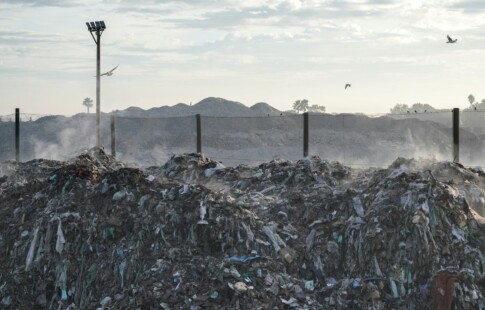
The Impacts of Methane Burning and How to Abate Them

How Much Greenhouse Gasses Are Produced Every Year?

What Groups Set Hunting Regulations in Most States?
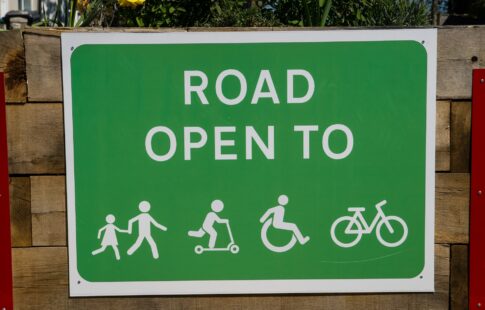
Let These Green Neighborhood Projects Inspire You
Tourism; Pros and Cons, Facts and Environmental Impact.
- by Ahsen Soomro

Table of Contents Show
1. wealth generation, 2. the progression of a country, 3. creation of jobs, 4. unity among different societies, 5. conservation, 6. improves geographical identity worldwide, 7. damage to the environment by tourists, 8. exploitation of local culture, 9. non-compliance of tourists, 10. lack of job security/seasonal only, 11. confined to service jobs, 12. unequal infrastructure growth, 13. foreign business owners, 14. neglecting of other sectors, 5+ fun facts on tourism, environmental damage, invasive organisms, negative impact on wildlife, loss of natural resources, challenging stereotypes, gaining cultural sensitivity, authentic experience of cultures.
Tourism is the department or an organization that facilitates people to allow them to visit or spend vacations at places they like.
Tourism is one of the most important industries in any country. It is a large contributor to the economy of a country as it can provide revenue throughout the year. Tourism helps in keeping the employment rate of countries stable as several job opportunities are created due to the tourism industry.
Sometimes, tourism can be a major source of foreign income for the country. This is like Maldives where 40% of the economy is generated from the Tourism industry.
This transaction doesn’t only facilitate the vacation or relaxation of tourists visiting these regions, but also helps to provide a better livelihood to everyone involved in the tourism sector.
Developed countries like USA and UK have greatly benefitted from medical tourism. Medical tourism involves people travelling to developed countries to get treatments unavailable in their home country. These are usually people from developing countries with sub-standard health care. You can also call them a medical tourist !
However, even with the great number of benefits of tourism, there are several drawbacks to it. These disadvantages are sometimes ignored by the tourism sector of that country as their sole purpose becomes profit. We must consider all aspects of tourism which include environmental responsibilities, profit and sustainability.
Today, we will look at some of the Pros and Cons of Tourism;
Advantages of Tourism
One of the major advantages of Tourism is a constant flow of cash. It is very important not just for the economy of the country as a whole but for all those working in the tourism sectors.
Commercial and private airlines operating from these countries tend to make a ton of revenue as people from around the world fly to a tourist attraction. Hotels and guest homes in the hospitality industry make a constant income as travelers flood hotel lobbies looking for a place to stay. This makes sure hotels make money throughout the year.
These small sectors, that come under the umbrella of tourism help to generate money for the country throughout the year. This cash flow is even more essential for small, developing, and third world nations as for some of them the tourist sector might be the biggest contributor to their local economy.
As wealth influx starts in the country, it helps the government to procure necessary funds for development and progression of the country. The tourism sector gives security and stability to the economy of the nation, preventing it from tanking in times of crisis.
The government also gets necessary funds to carry out large scale infrastructure projects like restaurants, hotels, casinos and theater which may further improve the tourism sector, providing more places for travelers to stay and more activities to indulge in. This will help to generate further cash influx.
Other than that, this wealth can also be used to improve the infrastructure of the country. This includes building roads, rail roads, better hospitals and education centers for natives as well as the tourists.
Tourism has provided various jobs to people who were previously unemployed. The natives gifted with constant stable jobs have greatly improved their livelihood ( there is a possible catch to this, I’ve explained in the cons ).
These jobs include working in areas such as hotels, restaurants, bars, casinos, theatres, zoos, parks, entertainment facilities, and more. Some of those you might remember from your last trip, especially the travel agent who booked your tickets or the tour operator who ensured that your trip went smooth or the captain of your cruise ship in the Caribbean. They work relentlessly, away from their families, to make sure you enjoy your vacations.
This has also led to the overall reduction of unemployment in the country, thus reducing burden on the government.
Did you know? 1 in 10 jobs are supported by Tourism industry across the world!
The unique feature of tourism is that it helps to create unity among people from different countries, cultures, backgrounds, traditions, and ethnicities who are all visiting to have some fun.
It allows people to learn different histories, traditions, cultures, diets, and lifestyles of the nations they are visiting. This helps to create understanding and oneness among people which can have a long-lasting impact socially.

Cross-cultural connections are developed as the natives interact with the tourists and may lead to further large-scale collaborations as well!
The main star of attraction for tourists visiting a country is its historical sites and landscapes, particularly the landmarks of the country. These landmarks may be in the form of churches, mosques, cathedrals, monuments, buildings, skyscrapers, beaches, amusement parks, and other attractions to say the least.
This means it becomes the government’s utmost priority to conserve these sites, for the tourism industry to be sustainable.
The government carries out regular maintenance of such areas and rules are placed concerned with damaging or vandalism of the property in order to protect these spots. Once these areas become a part of the tourism sector, they are no less than a cash generator for the country.
Tourists often go back home and praise about the vacation that they had. Every person that goes back home brags to at-least 10 more people about the wonderful vacation they had, usually through social media. This allows more people to know more about the country and helps it earn its name and make a place for itself on the map!
Increased recognition leads to further foreign investment and development, followed with increased tourism activity in the area.
Major Cons of Tourism
When it comes to tourism thousands of people may visit, even millions in some spots. This high influx of tourists can lead to immense environmental destruction, especially in destinations where tourists are more prone to visit.
This environmental burden is not solely due to the high influx of tourists, but it is associated with various other factors working together to bring environmental harm.
These factors include increased presence and use of cars, buses, trains, and other vehicles which may raise carbon emissions. A large number of flights at the airport could become a large contributor of air pollution as well.
Tourists can cause a lot of land pollution; as they throw a massive amount of garbage and waste, which is mostly non-biodegradable, leading to a massive number of landfills. All these activities may combine to greatly impact the environment of the region.
Soil erosion, Different kinds of Pollution , habitat loss and destruction as well as forest fires are just some of the environmental effects of tourism.

If these regions are not conserved and taken care of properly, they will lose their natural essence and subsequently be abandoned by tourists. This can lead to permanent damage of the natural tourist attractions!
Fortunately, we have been observing a rise in demand of sustainable tourism. We’ll be discussing that very soon.
Some countries, seeing the vast amount of tourists coming in their country to observe their unorthodox lifestyle and traditions, begin to commercialize their culture. It can be in the form of souvenirs. Usually, the natives are not offended by this.
However, in some regions this can be considered an outright disgrace and mocking of their culture. This is especially true for the regions where locals consider their culture to be their identity. Commercializing may result in people just wearing costumes and exhibiting traditions just to entertain tourists. Observing that the governments are using their culture as a tool for profiteering can cause them to feel sad and ridiculed by their nation.
Sometimes, tourists do not honor cultures and traditions of countries/regions they visit. They may break certain rules and unspoken codes of conduct to which the locals have very high regard. Tourists get drunk in public and do horrendous acts at times. This creates certain hatred among the locals for the incoming tourists.
Racist remarks by tourists and the socioeconomic gap between the tourists and the natives may further exacerbate the issue. The tourists may consider themselves in much higher regard than the natives. Such thoughts may provoke the tourists to act wildly and unlawfully, and sometimes even end up mocking the nation.
Look at it this way; if you go to a friend’s house, you don’t outright break stuff at his home or start shouting remarks to his/her family. You respectfully meet your friend and have a good time, in good spirits. That’s the way you should treat natives when you’re visiting another country, because you’re visiting their home !
Although we did mention that tourism leads to an increase in the employment rate; sometimes these jobs can be seasonal depending on the region and hence, cannot be a dependable income throughout the year. This is more concerning in countries that have specific durations and seasons of high influx of tourists from around the world. These seasonal jobs, hence, offer minimal job security and employees can be left without a proper pension or insurance.
Although tourism generates jobs for locals, most of these jobs are confined to service industry with minimal wages. These low-wage and minimum-skill workers have little ambition to promotion and getting higher up the chain.
Massive income generated from tourism offers countries to build upon infrastructure of the tourist destination only. Sadly, the countries do not use the revenue generated from this infrastructure to build and develop other regions which require maintenance and development.
The wealth generated from tourism is put back into tourism-related things and regions that desperately need improvement are constantly neglected. The locals who don’t live in tourist-economy regions are neglected which leads to imbalance of infrastructure development.
Sometimes most of the places which are heavily infiltrated by tourists are owned by foreign businesses. This means most of the profits and money coming into the country are being used by foreigners thereby causing significant loss of local businesses.
Local industries miss out on the primary source of income that is required for them to stay afloat and to grow. This can lead to businesses going bankrupt and losing, overall damaging the country’s economy.
Countries see that tourist is the major source of income for them, tend to ignore other various sectors upon which they are built. This leads to nations neglecting these sectors, thus causing a loss of income, jobs, and growth amongst these sectors. The country aims to put all of its resources in one basket which is the tourism industry, will leaving all others behind for them to crumble and diminish.
This over-reliance on a specific sector for the stability of the nations can sometimes cause a massive impact, especially during times of war, political instability, or natural disasters as it will be led to the long term closure of the tourism of those countries due to unrest. This can eventually drain the country down as its only resource which is tourism is no longer function, and it didn’t have any other sector nor did they built any other sector in a way for them to become sustainable in times of economic crisis.
- Tourism is responsible for 5% of the Global GDP!
- China stays as the world’s top tourism spender, spending more than 260 Billion Dollars!
- Global tourism industry being the largest industry contributes more than 7.5 trillion dollars in the world economy.
- Almost 10% of world’s jobs are sourced from Tourism Industry.
- Tourists spend the most cash in Dubai. Around 28.5 Billion dollars yearly!
- Osaka in Japan is emerging as the hottest tourist spot in the world.
Negative Environmental Impacts of Tourism
The government may choose to put the wealth generated from tourism into preservation of the environment. However, tourism still goes on to put sufficient burden on the natural resources of our planet and prompts over-consumption of natural resources in regions with already limited resources.
Once tourism becomes unsustainable, the surrounding environment starts to deteriorate. Tourism has a wide impact on the air quality, vegetation, water supply, wildlife, and the natural ecosystems of the region.
Most of the tourist activities have a negative impact on ecosystems. These include fishing, hiking, and snorkeling; all of which tend to affect and deplete the local scenery.
To run a tropical golf course for tourists requires water that can feed up to 60,000 locals. There is a trail in the Himalayas known as “the toilet paper trail” which shows how much damage tourism has caused to the environment.

Once there is an influx of tourists to a common destination, there is an overuse of transportation systems which heavily contributes to pollution (Mainly air pollution). Tourism accounts for 60% of air travel worldwide, and flying one mile in a plane can produce 53 pounds of carbon dioxide.
Even travelers conscious of hurting the environment also cause a negative impact. Tourists that travel to natural sites located remotely, tend to cause damage to natural ecosystems they come to see.
The increased human presence on many geographical regions can alter the number of native plants in the region and introduce non native species in those areas.
Even species brought in as pets into the country are sometime released into the wild and could bring havoc upon the ecosystem if they turned out to be invasive species.

Human intervention and presence can disrupt food webs, ecological communities, and harm keystone species in an area. Others take an active approach and hunt foreign animals as a tourist activity. They can also damage the natural habitat of native wildlife by engaging with it. All of these contribute to wildlife endangerment and extinction.
Tourism can shrink the natural resources by causing over-consumption. This is particularly damaging in areas with food and water scarcity.
This may also lead to hatred among the locals for tourists who use up the limited water supply for luxuries. A natural resource like water could be used to fill up Jacuzzis at a 5-star hotel but could much better be used in feeding a child who suffers from dehydration.
Cultural Benefits of Traveling

When you get to visit another country and observe their culture, you get the opportunity to be exposed to unfamiliar perspectives and traditions and gain a more broad, much informed, and kinder view of the locals and places you encounter.
Perceptions and stereotypes might be replaced by first hand view of the people by the tourists themselves.
People get to see traditions and learn manners of different cultures. Manners and etiquette tourists may not have practiced in their native countries.
Pointing with your index fingers at the indigenous people, showing excessive skin, wearing shoes indoors, and making noises may be considered rude in some places.
So it is important to do a little bit of research on the local customs and traditions before visiting so you can try to avoid being offensive or inappropriate.
It can be a wonderful way to experience the insights of a different culture through the experience of traditions, rituals, festivals, celebrations, and rites. It gives the visitor a chance to understand the cultural heritage of a region much more deeply.
Tourism has its benefits to the economy but the environmental component of tourism shouldn’t be ignored. Think about that the next time you book your tickets. We are also working on reducing your environmental footprint when you travel…Can’t reveal more. Stay tuned!
For now I’d like to leave this picture for you to ponder about Eco-tourism.

Ahsen Soomro
My love for nature is not newfound. I have lived on the countryside for over a decade of my life where I realized how human activities impacted the environment. Later during my stint in medical school, I realized that many of our health concerns originate from neglecting our environmental responsibilities and this was just not sustainable in the long run. Raising awareness, not locally but globally, was the mission. This led to the foundation of EnvironmentBuddy!
Leave a Reply Cancel reply
Your email address will not be published. Required fields are marked *
Differences between Deforestation, Afforestation and Reforestation!
Afforestation; importance, advantages & disadvantages. current efforts, you may also like.

- 6 minute read
10 Health Benefits of Beetroot Juice; Added Recipes!
- One comment

- 7 minute read
10+ Different Species of Rainbow Fish
- No comments

- 10 minute read
What is Made of Plastic? 20+ Uses and Examples

- 5 minute read
The Negativity of Consumerism

What does Asbestos look like? How to Avoid Exposure?

Environmental impact of Fast Fashion and Solutions
Does Tourism Help or Harm? A Look at Economics, Ecology, and Neocolonialism
12/05/2021 by Kristin Addis 11 Comments
Hey friends, this has been a long time coming.
I started writing this article several times, beginning four years ago. And each time I’ve asked myself:
“Who am I to talk about this?
It’s too controversial. It’s weird coming from someone who is very much part of the global privileged. How is this going to come off. Am I just inviting scrutiny?”
And yet here we are.
Because as I’ve traveled to over 60 countries, in many cases staying a while and moving slowly, I’ve come to notice things that put my past self to shame, that make me realize I didn’t see my privilege for most of my life (and in many ways still don’t), that make me question if widespread colonization has ended at all. Most of all, I wonder if tourism is really good for people or not.
With 1.5 billion recorded global arrivals in 2019, causing tourism to outpace the global economy, now more than ever, we have to talk about the impacts it has on our world. Because as we so painfully learned in 2020, what happens in one corner of the world will, eventually, affect everyone.
This post is the product of years of research — of all the times I started and stopped writing this, trying to tackle the question,
Does tourism help or harm?
Table of Contents
The Good of Tourism
Throughout my research, I’ve found countless examples of the good tourism has done. When manta ray and diving tourism outearns practices like dynamite fishing in Komodo, this preserves essential reef systems. When climate change hits arid places like Ethiopia, tourism provides a way of earning and living that doesn’t degrade the environment further, at least not directly. Tourism creates an economy that doesn’t depend on exploiting natural resources and manufacturing — when done right.
Job creation and poverty alleviation
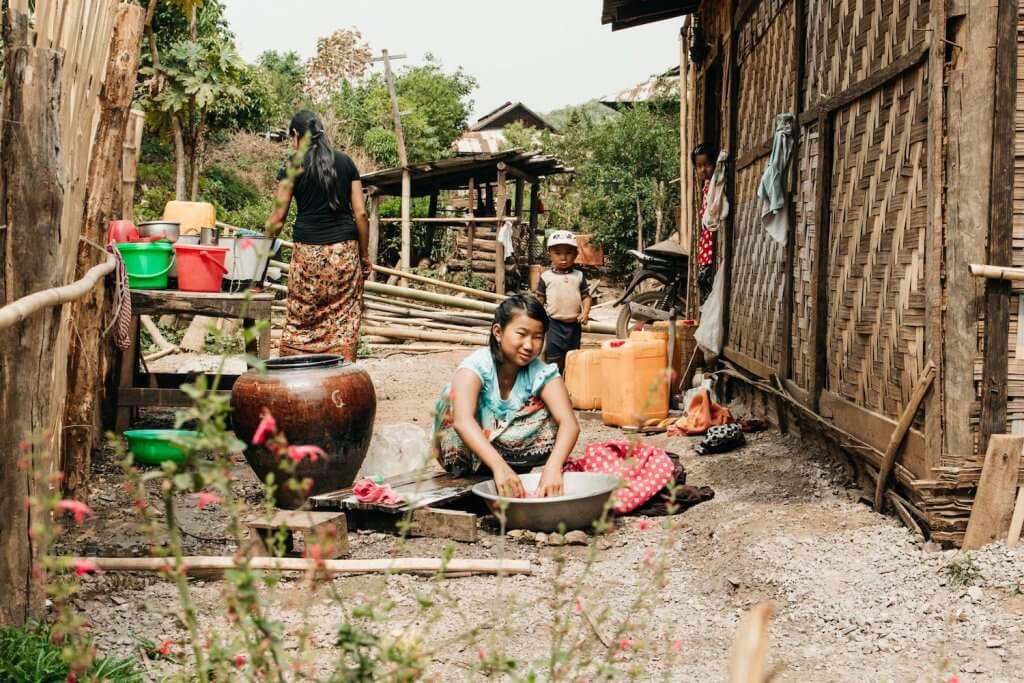
In many places, tourism has trumped international aid in terms of wealth transfer from the rich directly to the poor. And let’s be honest, it’s a lot more empowering than aid and handouts.
Tourism, at least in 2012, was “either the number one or number two export earnings for 20 of the 48 least developed countries, including Tanzania and Samoa.”
According to UNESCO, sustainable tourism, which it defines as respecting “both local people and the traveler, cultural heritage and the environment” provides these benefits:
- Tourism can be directly taxed, creating the necessary funds for improving infrastructure, education, and health on the ground.
- Locally owned microenterprises run by the poor serve as a benefit, as tourists buy a wide variety of goods and services.
- Sustainable tourism leads to employment diversification on a local level, which reduces the vulnerability of the poor.
- The tourism industry employs a high proportion of individuals under 25. As a result, youth gain access to higher earnings and better opportunities through sustainable tourism.
- And tourism provides jobs to people with little to no formal training (via The Borgen Project ).
Wildlife preservation
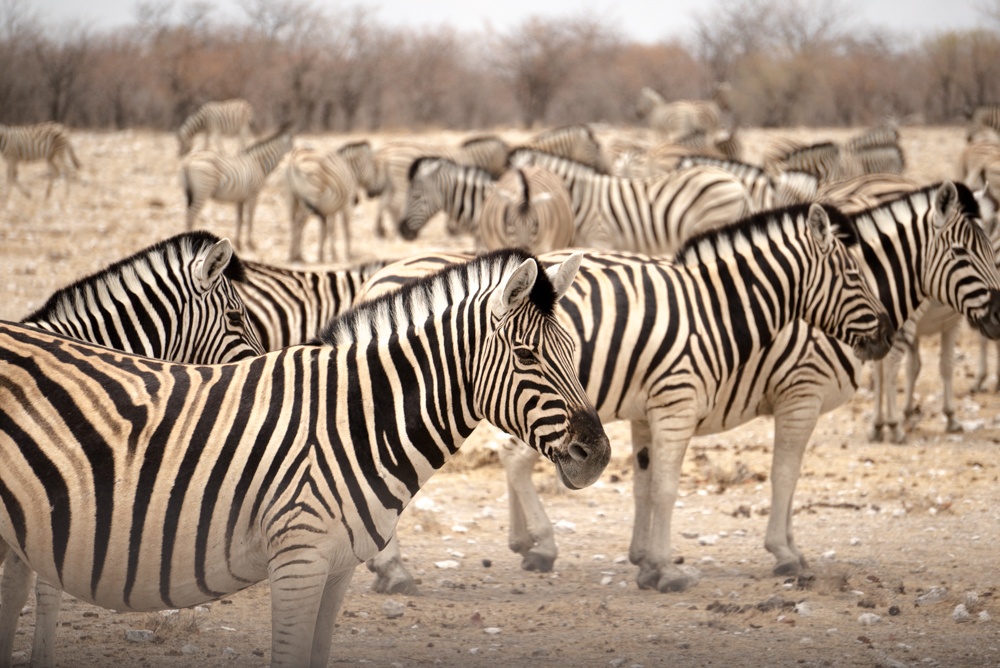
In 2013 I sat in a small room on the island of Flores, Indonesia, while a proud dive master from my liveaboard shared that Komodo Island had been named a manta sanctuary. This followed the establishment of the first shark and ray sanctuary in the Coral Triangle the year prior by the government of Raja Ampat , another popular diving area in Indonesia.
Each year, the illegal wildlife trade is worth at least $23 billion. Many of these illegally harvested animal parts, both from mantas and African wildlife, are used in “medicinal” products abroad.
The group Manta Watch and local dive operators were able to prove that a live manta ray is worth 2,000 times more than its value as a dead “medicinal product.”
Wildlife tourism outpaces these earnings in many places around the world, providing good jobs for locals who would otherwise have fewer earning opportunities.
According to the World Travel and Tourism Council , “while the travel tourism sector accounts for 10.4% of global GDP, wildlife tourism represents 3.9% of this figure, or $343.6 billion, a figure equivalent to the entire GDP of South Africa or Hong Kong. Of equal significance is the fact that around the world, 21.8 million jobs, or 6.8% of total jobs sustained by global travel and tourism in 2018, can be attributed to wildlife.”
For example, in Tanzania — home to the great wildebeest migration, Mount Kilimanjaro, the beaches of Zanzibar, and the ecologically rich and diverse Ngorongoro Crater — tourism accounts for over 11% of its GDP and employs roughly 2.3 million people. Protected areas equate to one-third of the country’s total area. Roughly 46% of international tourists to Tanzania experience a wildlife activity, and 26% enjoy a beach holiday.
We could fill the pages of book after book with examples like this, where tourism has helped preserve land, animals, and areas of historical significance for the enjoyment of present and future generations.
The rise of ecotourism

Wildlife-related tourism isn’t the only means of protecting the environment while providing jobs. The ecotourism sector is growing, and rapidly — at an estimated 5% year over year — driven mostly by millennial travelers.
But ecotourism is not just about washing fewer towels. It’s about providing experiences that complement the local community and ecology; providing opportunities that do not take money out of the community; keeping green practices in mind regarding energy, food sourcing, and tourism experiences; and empowering the local community to co-create tourism in ways that benefit them , not foreign interests.
According to Mandala Research , a women-run consultancy focused on corporate social responsibility, sustainability-minded tourists are more likely to stay in a destination longer, spend more money, and buy locally.
This type of travel experience isn’t always easy to find, but with a little extra research, they’re available all over the world (this is what we offer with our whale swim trip in French Polynesia).
Ecotourism is a way of providing travel experiences that have a minimal impact on the environment while empowering local people who may otherwise have to exploit natural resources to survive.
The question we always have to ask ourselves is, if not tourism, what else would these economies run on? The largest economic activities in the world are industrial manufacturing (32%) and chemical production (12%). By comparison, tourism is a much better alternative.
The advancement of women

Tourism provides one of the most essential opportunities for female empowerment, particularly in the developing world.
According to the United Nations World Tourism Organization , women make up the majority of the world’s tourism workforce.
That said, they’re often in the “lowest-paid and lowest-status jobs in tourism, and perform a large amount of unpaid work in family tourism businesses.”
But when women have choices, the birth rate goes down, putting less pressure on already diminishing natural resources. When women have more financial inclusion, more education, and more opportunities, society benefits.
According to the 2013-14 Education for All Global Monitoring Report , in Pakistan, working women with high levels of literacy skills earned 95% more than women with weak or no literacy skills, whereas the differential was only 33% among men. Educated women are empowered to take a greater economic role in their families and communities, and they tend to reinvest 90% of what they earn into their communities.
Tourism can empower women to step into leadership roles they deserve, like Maggie Duncan Simbeye, the first Tanzanian woman to own and operate her own tour company. Or like Natajia Miller, who runs the hotel and tour company I worked with in the Bahamas that her mother founded.
When we combine education, job opportunities in tourism, and making women the priority, we have a greater chance of positively impacting the communities we travel in, when done right.
But it’s not always done right, and we often have the good mixed in with the bad.
The Ugly of Tourism
For every example of the good the tourism does, we can often find a more crushing, visceral example of where it has done irreparable harm. We can’t only focus on the good, we have to confront the bad parts of tourism as well, the ugly parts that disenfranchise locals, degrade the environment, and perpetuate colonial norms, beginning with the crushing reality that most of the time, the money leaves.
Economic leakage

Continuing with my Indonesia examples, a few years ago I joined a liveaboard diving ship in Raja Ampat, West Papua, Indonesia. This is regularly regarded as one of the best places to dive in the world, and I still remember it as one of my most amazing trips to date.
But the boat was foreign-owned, and the staff on the boat were not from Raja Ampat, but rather from other parts of Indonesia. I even heard the Javanese driver refer to the locals as “curly heads”, and found out later that there’s a genocide happening in West Papua . How did I visit and not even know? How is this not international news?
Little by little I realized that while we did buy fish from the local fishermen, and I bought a coconut from a local woman, most of the money spent by the foreigners on the ship did not remain in the area, or even in Indonesia. It hurts me to realize this, but it did not benefit the locals much, if at all.
My experience was not unique. A 2013 report from the UNWTO noted that just $5 of every $100 spent in a developing country stayed in that destination – this is known as economic leakage.
We live in a world that is becoming more and more globalized. It’s easy to become a Marriott member and always stay in Marriott-owned hotels, or to favor the Hilton because it’s familiar, or to stay in an Airbnb that is rented out by a foreigner, effectively driving up rent prices for locals.
The problem? Most of the money leaves the country, doing very little to empower locals while taxing their ecology, using their limited water resources, generating trash in places that are often ill-equipped to handle it, and more.
All-inclusive horrors
All inclusive vacations sound pretty good. You get all of your food, drinks, entertainment, and accommodation included for one price. Your hand is held from landing to takeoff and you don’t have to think about anything. These are common all over the Caribbean, and I was even hired to promote a Spanish-owned one in Mexico’s Riviera Maya and (accidentally) stayed in one in Cabo San Lucas this past October.
What I found strange about both is that Mexican food was never on the menu. It made me wonder how much had to be shipped in when so much could have been sourced locally. The property in Cabo also offered a “Mexican night” with stalls selling Mexican souvenirs instead of encouraging guests to visit a local market to get the real experience for much cheaper and with more direct wealth transfer to locals.
But this is typical. Most all-inclusive guests never leave the resort or spend money locally.
In a 2014 survey of 500,000 tourists by Tourism Concern , fewer than 20% of respondents who had been on an all inclusive regularly left the resort to visit other bars, restaurants or excursions.
But what about jobs for locals? The study additionally found that wages were often lower and working conditions worse at all inclusives where they conducted studies in Tenerife, Kenya, and Barbados.
The other issue is the rampant waste and bigger-is-better mentality at large, all-inclusive resorts. These are often major users of the power grid, major plastic waste contributors, and since everything is ‘free’, people often waste food at all-inclusive resorts more than they would at a restaurant or at home.
And where does this food come from? If you stay at a resort in Jamaica or the Bahamas, you’re eating food from Florida. It’s worth looking at what’s in the gift shop, too, because it’s typically brands from home that tourists trust and prefer, rather than local options.
The power of all inclusive hotels makes it difficult to mitigate these issues. In the Gambia , all inclusive hotels wield so much power that when the government tried to ban them, tour operators threatened to take their business elsewhere, enforcing the cycle of leakage.
Locals get priced out of their homes
Look at any beach destination and you’re likely to see that most of the best real estate is taken up by vacation homes and beachfront hotels.
Without laws that keep generational property within the family, property taxes make it difficult for locals to hold onto beachfront real estate, because it is based on the value of the land, which goes up with the increase in tourism and foreign investment.
This can be seen all over the world, where locals can no longer afford to live where they grew up.
From Barcelona to New York, New Zealand to Italy, the “Airbnb Effect” doesn’t just impact the developing world, but the places many tourists call home as well.
This is a bitter pill to swallow, because many of us turned to Airbnb for a more local experience than a hotel can offer, hoping that we were supporting locals this way. And maybe in the beginning we were.
Many locals in the places we love to travel do not want any tourism because for many, it has just made life harder and degraded the environment.
Environmental degradation
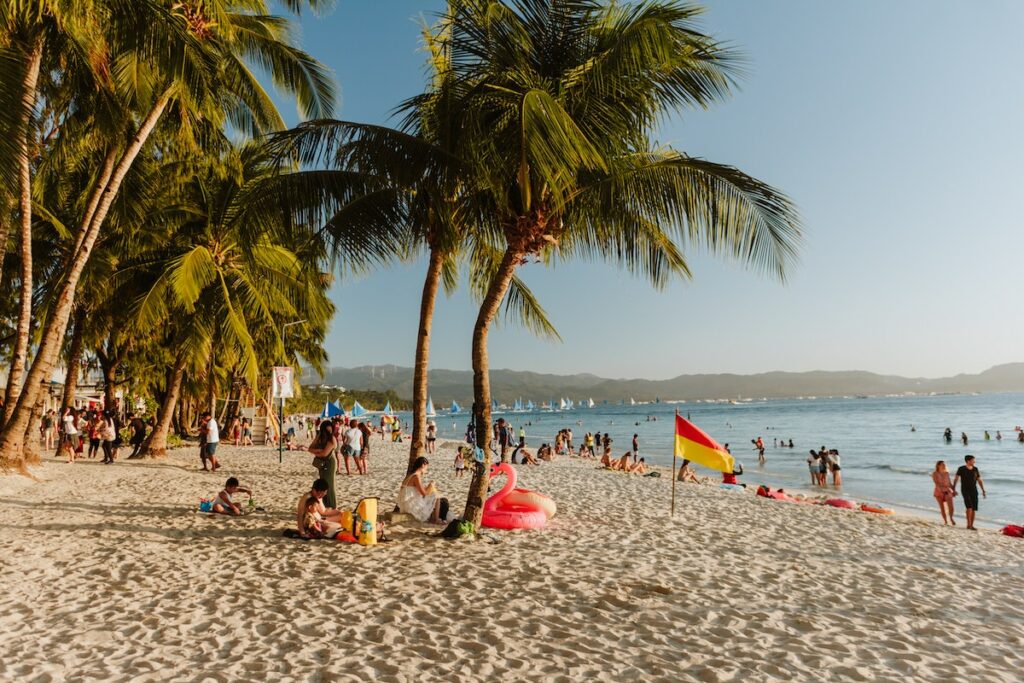
In 2019, Boracay in the Philippines had just reopened to tourism after 6 months of closure to clean up and allow natural areas to recover, but with new regulations.
The year prior, 1.7 million people had visited Boracay, one of 7000 islands in the Philippines. Tourism grew so quickly and without regulation in the years leading up to the closure, that sewage was pumped directly back out to the sea, overfishing decimated 90% of the coral reefs, and the mangroves that once provided a buffer for tropical storms were drained and built upon. Like many similar stories, locals were undercut by outsiders and watched helplessly as their island became a nightmare.
As many places like Boracay become famous and more accessible, and as tourism numbers swell worldwide, natural areas are receiving the kind of visitor influx that pushes them to the brink.
In the US National Park system, the most visited national park, the Great Smoky Mountains, received 12.1 million visitors in 2020 and overall national park visits topped 327 million in 2019 , up from 281 million in 1986 and 6 million in 1960, a mere two generations prior. This increased tourism leads to land degradation, air and noise pollution, littering, trampling and the alteration of fragile ecosystems .
In Thailand, 77% of the total of 238.4 square kilometers of coral reefs in all of Thailand’s waters have been devastated, according to Thon Thamrongnawasawat , deputy dean of the Faculty of Fisheries at Kasetsart University in Bangkok, who blames beachfront hotels, anchoring, and plastic rubbish dumping as the main causes.
Like the positive instances of land and habitat preservation noted earlier, we could fill the pages of books with examples like these as well.
Tourism contributes to climate change
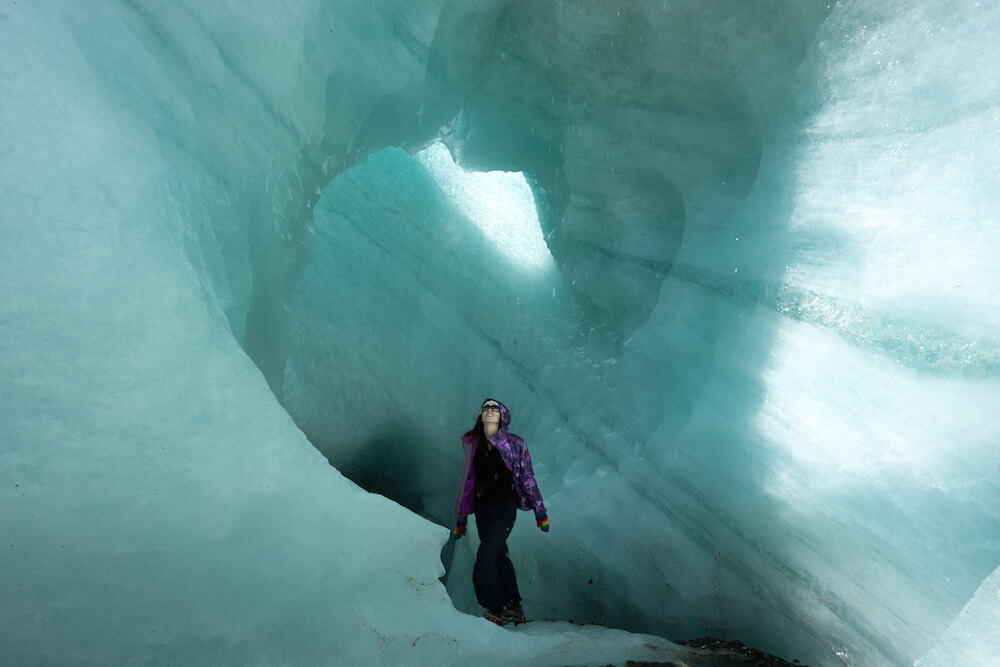
While tourism provides earning opportunities in areas where climate change has made the usual ways of life more difficult, it also contributes to climate change.
Emissions from tourism-related activities are estimated to contribute 7% to global emissions. According to UNWTO/ITF’s latest research , CO 2 emissions from tourism are forecast to increase at least by 25% by 2030. However, to reduce emissions in accordance with the Paris Accord, global emissions need to decrease by at least 7% per year throughout the next decade, which, globally, we are not on track for.
Realistically, travel makes up a small amount of global emissions, and even if everyone were to stop traveling, it would not be enough. It would also harm some of the world’s most vulnerable people and places who have come to rely on tourism, as we’ve seen in 2020.
Travel also helps people to see the degradation of the planet. Personally, I didn’t truly understand the urgency until traveling the world, and being told by every single person I talked to that they once had abundance that now is dwindling, from the sushi fish of Japan, to the animals of Southeast Asia, to the reliable seasons of Patagonia. Everywhere I go, the story is always the same: things are changing — and it is not for the better.
In many ways, traveling helps educate people about the world and its cultures and helps us to care more about what happens to it, because we have seen beyond our own borders. But is it enough? Is it too little too late?
Perpetuating colonial norms

Traveling along what they call the ‘banana pancake’ trail in Southeast Asia in my 20s was a defining part of my life. I met people from all over the world, but now that I think about it, I met them from all over the “white” world. I met them from privileged countries like my own where young people can save up and travel long-term because these countries are so much cheaper than our own.
I did stay in a lot of locally owned hostels and I did mostly eat food that I bought directly from street vendors, but when it comes down to it, I rarely met local travelers or got to engage with and hang out with Thai or Cambodian people. It happened from time to time and I relished the opportunity, but for the most part, it was in a service-oriented situation where we both played a role – the server and the customer.
But I’ll be honest with you, I hardly even noticed this. I didn’t think about the places where local people lived. I didn’t seek them out or wonder if they were much different than the accommodation that I was in, which was the most basic I have ever stayed in my life. And yet most of theirs is even more basic, often without running water.
I didn’t think about if my presence was good or bad.
But it started to click when I traveled to southern Africa for the first time in 2015. It clicked when safari camps could run thousands of dollars per night while black locals slept in corrugated metal shacks. How could there be so much wealth and so much lack of it present at the same time? It started to click when the black clerk helping us push a cart out of the grocery store in Namibia got the full pat down while the guard barely glanced at me. It clicked when one of the “activities” offered by a backpackers in Zambia was an afternoon “volunteering” with local kids. What were they really doing? Pimping kids out for tourist photos?
Tourism and Neo-Colonialism
This is the point in the article where I have frequently stopped writing. Where I have questioned who I am to talk about this, and have been certain I would say or do something wrong, or that something I did in the past would suddenly not age well.
But the truth is we all have to look at the way that privilege and tourism go hand-in-hand, and the ways that we may have perpetuated it, been complicit in it, and benefitted from it.
Colonialism is not over
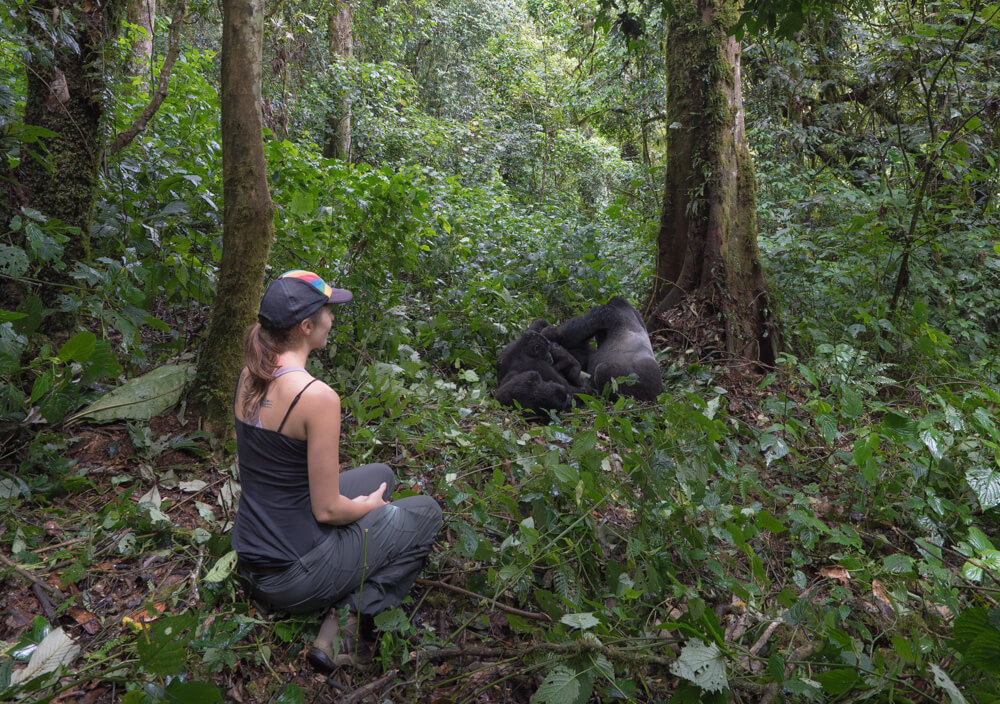
For me the wake up point was in a taxi in Uganda. It’s a long drive from the airport to Kampala, so the driver and I had a while to chat. He wanted me to give him pointers on how to marry a muzungu (white) woman. I asked him why that’s what he wanted, and he shared it would be his way to come up in the world.
Why wouldn’t this be his misconception? Most of the white people he’s seen his whole life have money. Even backpackers traveling on a shoe-string budget are comparatively privileged just for the ability to afford a plane ticket and time that is not spent in a relentless pursuit of earning a livable wage. And, realistically, most of the hotels and big businesses are still owned and run by former colonizers, whose profits exit the country. Working in these establishments requires learning English and adapting to western norms. I can see how it would be easy to feel like the only way to ascend is to be a part of the western world.
Meanwhile stories about ‘Africa’ are too often about the white messiah who comes in to ‘help’, perpetuating the myth that ‘Africa’ needs saving and little white girls and boys can come in and fix it during a volunteer trip. Colonization is not over, it’s just economic now.
The words of Reni Eddo-Lodge in Why I’m No Longer Talking to White People About Race , stand out: “Neutral is white. The default is white. Because we are born into an already written script that tells us what to expect from strangers due to their skin color, accents and social status, the whole of humanity is coded as white. Blackness, however, is considered the “other” and therefore to be suspected.” I see this play out in the way that I am treated as a white foreigner, in comparison to a local POC.
Much of the perpetual stereotypes of ‘Africa’ are that it is poor and dangerous, despite the fact that many countries on the continent are rich in both minerals and biodiversity. Indeed, the kicker is that the current powerful status of the west could not have been built without Africa’s riches.
Whether or not we participated in historical systems of colonialization, exploitation and apartheid, western tourists, interpreted as having money and power, benefit from the power structures that were built over centuries.
The sexualization and exploitation of local women
If you travel much in Southeast Asia, particularly Chiang Mai in Thailand, you will start to notice a breed of tourist called the ‘sexpat’. Is it disgusting? Are they just lonely old men who fill a role? I don’t really know or care, I’m just disturbed that this is even a thing, aren’t you?
In the same way, imagery of grass skirts and coconut shells on smiling Hawaiian women beckoned visitors to the islands. ‘I’m here for your enjoyment, I’m here for the taking’ was the implication.
Bani Amor writes “POC bodies, cultures, and lands are the exotic dominion of the settler […] From the Black Mammy trope to that of the Singapore Girl, Spicy Latina, Pocahontas, and China Doll, women of color are deemed to exist to serve the whims of the white settler, whether that be sexual or domestic.”
She goes on to paraphrase Mary Fillmore, who wrote, ‘A tourist destination is where men of one class can enjoy the privileges of men of another class, and women can enjoy the privileges of men. Someone else will cook their meals, make their beds, clean their toilets,’
‘The tourist’s desire is usually to be indulged like a child…being free to indulge one’s appetite at will, to play all day’, adding, “and have someone else (spoiler alert: WOC) clean up the mess. These host communities end up playing the role of the Mother to the infantilized tourist. There’s nothing feminist about taking selfies with Maasai women struggling to hold onto their dignity in the face of exploitative tourist practices—that’s some colonial Mammy shit.”
Travel has often been a means of the west exploiting the rest, and we don’t have to look very far to see that little has changed over the last couple hundred years in that regard.
What Can Be Done?
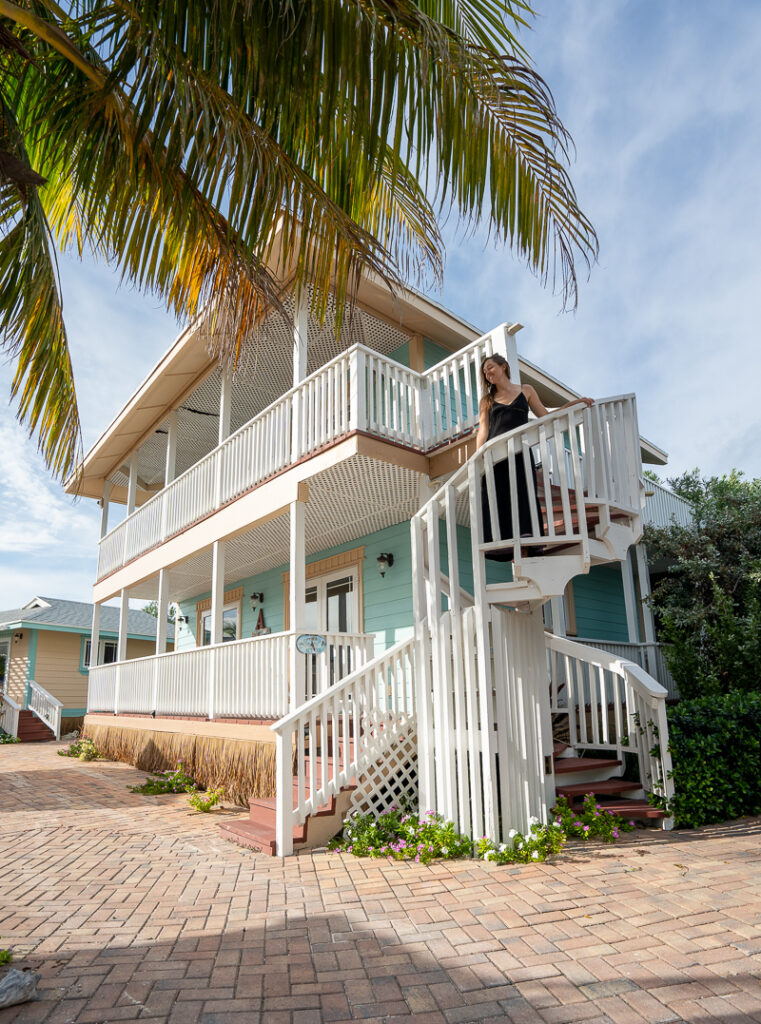
I’m not on any kind of soapbox sharing this. I make mistakes all the time.
But awareness is half the battle.
When we travel, we vote with our dollars. There are many incredible people out there who are working to empower their own communities, and supporting them is, I think, our duty as travelers.
Traveling independently or choosing tour operators who care about empowering locals and minimizing our environmental impact are important steps. It’s not to say that foreign owned companies can’t have a good impact, and the more pressure we put on them to be socially responsible, the more that they will have to comply.
But when I travel now, I actively look for options that are locally-owned, that are eco-conscious, and that are run by women. Even if I do stay in a fancy, foreign-owned resort, which I honestly love to do from time to time, I seek to balance it out with local options, too.
It’s up to us how we really want the future of travel to be. Travel has the power to unite the world, to pull people out of poverty, and empower women to be entrepreneurs. Traveling also has the power to enforce colonial norms, “other”ize people, and take advantage of them and their homes.
We all have to be aware. We have to think about who benefits from the money we spend, and more importantly, who does not. Traveling responsibly can take an incredible amount of research, but it’s essential.
Because the thing about a globalized world that allows so many of us to travel, is that we are all interconnected. We share the same oceans, the same air, and the same planet. We all want to feel that we have a home, we all want to love, to feel safe, to be respected, to have access to clean water and food, to have enough for us and our families. The truth is that when one part of the chain is broken, the circle cannot be complete.
And as someone who encourages others to travel and whose life and livelihood have depended on travel for the better part of the last decade, I couldn’t pretend that these uncomfortable truths don’t exist anymore. Thanks for reading this far. I’d love to know your thoughts, too.
Pin me for later:

About Kristin Addis
Kristin Addis is the founder and CEO of Be My Travel Muse, a resource for female travelers all around the world since 2012. She's traveled solo to over 65 countries and has brought over 150 women on her all-female adventure tours from Botswana to the Alaskan tundra.
Leave a Reply Cancel reply
Your email address will not be published. Required fields are marked *
Save my name, email, and website in this browser for the next time I comment.
subscribe to our newsletter
This site uses Akismet to reduce spam. Learn how your comment data is processed .
Sandra Candel says
12/06/2021 at 10:04 am
THANK YOU for starting this important conversation. As you write in your piece, raising awareness, and having awareness, is an enormous first step. Being inspired by this post, I will begin planning my future travels following your approach of looking for 3 key elements: locally-owned, eco-conscious, and run by women. Another excellent point is perpetuating colonial norms, neocolonialism, and the sexualization of women and children. I remember on a trip to an island in the Philippines, I witnessed in horror how an older man (that looked in his 60s-70s) was out and about buying things for a young boy (that looked no more than 7-8 y.o). I remember thinking “where is this boy’s mother and why is he allowed to venture alone and unsupervised with this older man?” (I mean this with no judgement to the mother, just out of genuine concern). I remember thinking that because it felt like “grooming” behavior. Of course, I don’t have proof that was the case but the whole scenario seemed “off” and I have learned to trust my gut instinct. I was horrified at the thought that indeed, something could be happening to this boy and I was just a bystander, unable to do anything. I still wonder to this day, “What can I do in a situation like that? Who do I contact? How do I make sure the vulnerable person in the situation is safe?”
All of this to say, thank you for writing this piece. It totally left an impression and a renewed desire to travel with more awareness of my impact on the places I visit.
Kristin says
12/06/2021 at 11:35 am
Seeing the sex tourism with minors in Southeast Asia disgusts me as well. It is a crime in most of those men’s home countries, but I think it’s hard to prove and to know what to do in order to bring it to the right people quickly enough to get something done. Would the police do anything? I wonder…
Lisa Tyerman says
12/06/2021 at 10:49 am
Thanks for doing the research and putting time and effort into this article Kristen. Well done. I would love tips on finding accommodations and even specific places to travel, activities, etc that would fall under “the good” of tourism.
12/06/2021 at 11:33 am
That’s something I’m still trying to figure out myself. In French Polynesia I could tell by people’s names. Sometimes a hotel will proudly display that they are locally owned or female owned, and I think that searching specifically for eco lodges are a good idea as well. Also booking tours with people who grew up in the area and mention that they are ecologically-minded. Sometimes, you don’t know until you show up, and I’d love to dig more into how to find these places as well.
12/06/2021 at 4:53 pm
This is an issue that has weighed upon me since I was an activist in college and kept me hesitant to travel. Kristin has for years inspired me and for sure others to travel the world in a way that benefits the area being traveled. These principles in this post are principles she has lived by to the best if her ability and it is hard to do so as it is not always cut and dry. I am so happy she has elucidated all these thoughts in this nice, straight to the point post. I am glad she had the courage to finish this because it needs to be said and she has the travel experience to back it up. Also, thanks for mentioning the genocide crisis in West Papua. The first step in addressing this is to raise awareness and with your large audience you have done a great service. That would be neat if there was a quick guide to women only, eco-conscious, locally owned businesses or accommodation around the world in each country. That was a great idea to strive for by the other commenter although sounds difficult although I would never underestimate BMTM.
Daniel Christianson says
12/12/2021 at 5:14 pm
And yet, here we are. Great article, nicely written. Many who approach this subject seem to heavily favor one side or the other, it’s nice to see it all laid out.
Even in my limited travels I have witnessed at least small examples of many of the points made here, and I’ve seen plenty of travelers who sadly, will never notice a single one of them. We do vote for the type of world we want with every choice of how we spend our money. This is especially true in the world of travel.
A week into my first trip out of the country I came to the conclusion that spending time in the small surf towns, staying in the private rooms at hostels and eating at the local shops was incredibly more appealing than anything resembling a big chain hotel or resort. At that time my decision had little to do being economically responsible and doing what was right for the local community, for me it was all about the class of people I was surrounding myself with. And I still make that choice today.
12/14/2021 at 12:41 pm
Yep I’m with you. Sometimes making the simpler, more chilled out choice is the choice that benefits people the most and gives you the best interactions. I love it when it can be easy!
Jessica says
12/26/2021 at 5:58 pm
Lots of food for thought here – thanks for taking the time and having the courage to write this!
12/28/2021 at 10:43 am
Thanks for reading!
05/03/2022 at 8:42 pm
BRAVE post. I just found your blog and I couldn’t agree more with what you’ve said here. It is really nice to find a travel blog that has some substance and goes beyond just pics of pretty white blondes in floppy hats in beautiful places.
05/04/2022 at 8:33 am
Thank you for reading! This post meant a lot to me and I hope more people see it <3
National Geographic content straight to your inbox—sign up for our popular newsletters here

What's the problem with overtourism?
With visitor numbers around the world increasing towards pre-pandemic levels, the issue of overtourism is once again rearing its head.
When locals in the charming Austrian lakeside village of Hallstatt staged a blockade of the main access tunnel, brandishing placards asking visitors to ‘think of the children’, it highlighted what can happen when places start to feel overrun by tourists. Hallstatt has just 800 residents but has opened its doors to around 10,000 visitors a day — a population increase of over 1,000%. And it’s just one of a growing number of places where residents are up in arms at the influx of travellers.
The term ‘overtourism’ is relatively new, having been coined over a decade ago to highlight the spiralling numbers of visitors taking a toll on cities, landmarks and landscapes. As tourist numbers worldwide return towards pre-pandemic levels, the debate around what constitutes ‘too many’ visitors continues. While many destinations, reliant on the income that tourism brings, are still keen for arrivals, a handful of major cities and sites are now imposing bans, fines, taxes and time-slot systems, and, in some cases, even launching campaigns of discouragement in a bid to curb tourist numbers.
What is overtourism?
In essence, overtourism is too many people in one place at any given time. While there isn’t a definitive figure stipulating the number of visitors allowed, an accumulation of economic, social and environmental factors determine if and how numbers are creeping up.
There are the wide-reaching effects, such as climate change. Coral reefs, like the Great Barrier Reef and Maya Bay, Thailand, made famous by the Leonardo DiCaprio film, The Beach , are being degraded from visitors snorkelling, diving and touching the corals, as well as tour boats anchoring in the waters. And 2030 transport-related carbon emissions from tourism are expected to grow 25% from 2016 levels, representing an increase from 5% to 5.3% of all man-made emissions, according to the United Nations World Tourism Organisation (UNWTO). More localised issues are affecting locals, too. Renters are being evicted by landlords in favour of turning properties into holiday lets, and house prices are escalating as a result. As visitors and rental properties outnumber local residents, communities are being lost. And, skyrocketing prices, excessive queues, crowded beaches, exorbitant noise levels, damage at historical sites and the ramifications to nature as people overwhelm or stray from official paths are also reasons the positives of tourism can have a negative impact.
Conversely, ‘undertourism’ is a term applied to less-frequented destinations, particularly in the aftermath of the pandemic. The economic, social and environmental benefits of tourism aren't always passed on to those with plenty of capacity and, while tourist boards are always keen for visitors to visit their lesser-known attractions, it’s a more sustainable and rewarding experience for both residents and visitors.

What’s the main problem with it?
Overcrowding is an issue for both locals and tourists. It can ruin the experience of sightseeing for those trapped in long queues, unable to visit museums, galleries and sites without advance booking, incurring escalating costs for basics like food, drink and hotels, and faced with the inability to experience the wonder of a place in relative solitude. The absence of any real regulations has seen places take it upon themselves to try and establish some form of crowd control, meaning no cohesion and no real solution.
Justin Francis, co-founder and CEO of Responsible Travel, a tour operator that focuses on more sustainable travel, says “Social media has concentrated tourism in hotspots and exacerbated the problem, and tourist numbers globally are increasing while destinations have a finite capacity. Until local people are properly consulted about what they want and don’t want from tourism, we’ll see more protests.”
A French start up, Murmuration, which monitors the environmental impact of tourism by using satellite data, states that 80% of travellers visit just 10% of the world's tourism destinations, meaning bigger crowds in fewer spots. And, the UNWTO predicts that by 2030, the number of worldwide tourists, which peaked at 1.5 billion in 2019, will reach 1.8 billion, likely leading to greater pressure on already popular spots and more objection from locals.
Who has been protesting?
Of the 800 residents in the UNESCO-listed village of Hallstatt, around 100 turned out in August to show their displeasure and to push for a cap on daily visitors and a curfew on tour coach arrivals.
Elsewhere, residents in Venice fought long and hard for a ban on cruise ships, with protest flags often draped from windows. In 2021, large cruise ships over 25,000 tonnes were banned from using the main Giudecca Canal, leaving only smaller passenger ferries and freight vessels able to dock.
In France, the Marseille Provence Cruise Club introduced a flow management system for cruise line passengers in 2020, easing congestion around the popular Notre-Dame-de-la-Garde Basilica. A Cruise Lines International Association (CLIA) spokesperson said, “Coaches are limited to four per ship during the morning or afternoon at the Basilica to ensure a good visitor experience and safety for residents and local businesses. This is a voluntary arrangement respected by cruise lines.”
While in Orkney, Scotland, residents have been up in arms at the number of cruise ships docking on its shores. At the beginning of 2023, the local council confirmed that 214 cruise ship calls were scheduled for the year, bringing around £15 million in revenue to the islands. Following backlash from locals, the council has since proposed a plan to restrict the number of ships on any day.

What steps are being taken?
City taxes have become increasingly popular, with Barcelona increasing its nightly levy in April 2023 — which was originally introduced in 2012 and varies depending on the type of accommodation — and Venice expects to charge day-trippers a €5 fee from 2024.
In Amsterdam this summer, the city council voted to ban cruise ships, while the mayor, Femke Halsema, commissioned a campaign of discouragement, asking young British men who planned to have a 'vacation from morals’ to stay away. In Rome, sitting at popular sites, such as the Trevi Fountain and the Spanish Steps, has been restricted by the authorities.
And in Kenya’s Maasai Mara, meanwhile, the Narok County governor has introduced on-the-spot fines for off-roading. He also plans to double nightly park fees in peak season.
What are the forecasts for global tourism?
During the Covid pandemic, tourism was one of the hardest-hit industries — according to UNWTO, international tourist arrivals dropped 72% in 2020. However, traveller numbers have since been rapidly increasing, with double the number of people venturing abroad in the first three months of 2023 than in the same period in 2022. And, according to the World Travel Tourism Council, the tourism sector is expected to reach £7.5 trillion this year, 95% of its pre-pandemic levels.
While the tourism industry is forecast to represent 11.6% of the global economy by 2033, it’s also predicted that an increasing number of people will show more interest in travelling more sustainably. In a 2022 survey by Booking.com, 64% of the people asked said they would be prepared to stay away from busy tourist sites to avoid adding to congestion.
Are there any solutions?
There are ways to better manage tourism by promoting more off-season travel, limiting numbers where possible and having greater regulation within the industry. Encouraging more sustainable travel and finding solutions to reduce friction between residents and tourists could also have positive impacts. Promoting alternative, less-visited spots to redirect travellers may also offer some benefits.
Harold Goodwin, emeritus professor at Manchester Metropolitan University, says, “Overtourism is a function of visitor volumes, but also of conflicting behaviours, crowding in inappropriate places and privacy. Social anthropologists talk about frontstage and backstage spaces. Tourists are rarely welcome in backstage spaces. To manage crowds, it’s first necessary to analyse and determine the causes of them.
Francis adds: “However, we must be careful not to just recreate the same problems elsewhere. The most important thing is to form a clear strategy, in consultation with local people about what a place wants or needs from tourism.”
As it stands, overtourism is a seasonal issue for a small number of destinations. While there is no one-size-fits-all solution, a range of measures are clearly an option depending on the scale of the problem. For the majority of the world, tourism remains a force for good with many benefits beyond simple economic growth.
Related Topics
- OVERTOURISM
- SUSTAINABLE TOURISM
You May Also Like

How can tourists help Maui recover? Here’s what locals say.

One of Italy’s most visited places is an under-appreciated wine capital
Nat geo kids back-to-school exclusive offer.
Get up to 4 bonus issues!

What is tourist tax and will you have to pay it in Europe this summer?

In this fragile landscape, Ladakh’s ecolodges help sustain a way of life

Cinque Terre’s iconic ‘path of love’ is back. Don’t love it to death

25 breathtaking places and experiences for 2023

See the relentless beauty of Bhutan—a kingdom that takes happiness seriously
- Interactive Graphic
- Environment
- Paid Content
History & Culture
- History & Culture
- History Magazine
- The Big Idea
- Mind, Body, Wonder
- Terms of Use
- Privacy Policy
- Your US State Privacy Rights
- Children's Online Privacy Policy
- Interest-Based Ads
- About Nielsen Measurement
- Do Not Sell or Share My Personal Information
- Nat Geo Home
- Attend a Live Event
- Book a Trip
- Inspire Your Kids
- Shop Nat Geo
- Visit the D.C. Museum
- Learn About Our Impact
- Support Our Mission
- Advertise With Us
- Customer Service
- Renew Subscription
- Manage Your Subscription
- Work at Nat Geo
- Sign Up for Our Newsletters
- Contribute to Protect the Planet
Copyright © 1996-2015 National Geographic Society Copyright © 2015-2024 National Geographic Partners, LLC. All rights reserved
- What Are The Negative Effects Of Tourism On The Environment?

Tourism is usually regarded as a boon to a region’s economy. Tourism brings prosperity to the region and provides employment to the locals of the region. However, when tourism becomes unsustainable in nature, it can have disastrous consequences on the environment. When the tourist industry active in the region crosses the legal and ethical barriers to earn more profit, it can lead to massive degradation of the environment in the area. Local human population, flora, and fauna, suffer greatly due to such irresponsible and unsustainable tourism. Some of the ways in which tourism adversely impacts the environment have been mentioned below:
Tourism And Pollution
Transport of tourists results in air pollution.
The movement of tourists from their home to the tourist destination involves transport via road, rail, or air, or a combination of these modes of transport. When a large number of tourists are involved, it invariably leads to a greater use of the transportation system. We all are aware of the fact that emissions from automobiles and airplanes are one of the biggest causes of air pollution. When a large number tourists use these modes of transport to reach a particular attraction, it pollutes the air both locally and globally. Due to the rapid growth in international tourism, tourists now account for nearly 60% of air travel. In many places, buses or other vehicles leave their motors running to ensure that tourists return to comfortable air-conditioned vehicles. Such practices further pollute the air.
Tourism Leads To Noise Pollution
Tourists destinations are often subject to significant noise pollution. Tourists vehicles entering and leaving natural areas create a lot of noise. Such noise is the source of distress for wildlife. Loud music played by tourists in forested areas also disturb the animals living in the area. Often, noise generated by tourist activities for long-term alters the natural activity patterns of animals.
Littering Of Tourist Spots By Irresponsible Tourists
Irresponsible tourists often litter the tourist spots visited by them. Waste disposal is a great problem in the natural environment. According to estimates, cruise ships in the Caribbean produce over 70,000 tons of waste annually. If waste is disposed of irresponsibly in the sea, it can lead to the death of marine animals. Even the Mount Everest is not free of human-generated waste. Trekkers leave behind their oxygen cylinders, garbage, and camping equipment on the mountains and hills. Some trails in the Himalayas and the Andes have been nicknamed the "Toilet paper trail” or the "Coca-Cola trail,” referring to the garbage left behind on such trails.
Sewage Generated At Tourist Spots Contaminate The Natural Environment
Rampant construction of tourist facilities like hotels, cafes, restaurants, etc., in an area without proper arrangement for safe disposal of sewage, can lead to disastrous consequences. Wastewater carrying sewage from such areas often pollutes nearby water bodies. It can lead to the eutrophication of water bodies and the loss of the balance in aquatic ecosystems. Pollution of water bodies with sewage can also lead to health issues and even epidemics that can ultimately wipe out large populations of aquatic flora and fauna and also impact human health adversely.
Tourism Can Spoil The Aesthetics Of The Environment
Tourist facilities built to earn a profit without any concern about integrating the design with the natural features of the place can lead to aesthetic pollution. Large resorts of disparate designs can dominate the landscape and spoil the natural beauty of a place.
Tourism And Natural Resources
When tourism is encouraged in an area with inadequate resources, it will have a negative impact on the ecosystem of the area. In such areas, the local flora and fauna might be deprived of the resources needed to sustain their lives. For example, large volumes of water are consumed to cater to the needs of the tourists, run hotels, swimming pools, maintain golf courses, etc. This can degrade the quality of water and decrease the volume of water that is available for the local population, plants, and animals. It is not only the water resources that are depleted. Unsustainable practices by the tourist industry can also put pressure on other resources like food, energy, etc.
Tourism And Physical Degradation Of The Ecosystem
Every ecosystem works on a delicate natural balance. Every species in the ecosystem has a specific role to play in the system. However, tourism often disturbs this delicate balance and creates a great disaster in the ecosystem. When the tourist industry active in an area is completely profit-minded, it pays little heed to the needs of nature. For example, often hotels and resorts are built illegally very close to the beach or inside the core areas of forests. Large patches of natural vegetation need to be cleared to allow space for the sprawling resorts or hotels. As old tourist spots get degraded due to overuse by tourists, newer ‘upcoming’ destinations with fewer crowds become the next favorite of tourists and the tourism industry. The same situation is repeated once more. Unsustainable practices by the tourism industry can thus lead to deforestation, sand erosion, loss of species, changes in sea currents and coastlines, destruction of habitats, etc. Even activities like nature walks can be harmful to the environment if tourists trample on the local vegetation during their walk. Such trampling can lead to reduced plant vigor, breakage of stems, reduced regeneration, etc. Tourists breaking off corals during snorkeling or scuba diving activities can also contribute to ecosystem degradation. Commercial harvesting of corals for sale to tourists also causes harm to coral reefs. Even the anchorage of cruise ships to coral reefs can degrade large sections of the reef.
- Environment
More in Environment

Importance Of Wetlands

Meet 12 Incredible Conservation Heroes Saving Our Wildlife From Extinction

India's Leopard God, Waghoba, Aids Wildlife Conservation In The Country


India's Bishnoi Community Has Fearlessly Protected Nature For Over 500 Years

Wildfires And Habitat Loss Are Killing Jaguars In The Amazon Rainforest

In India's Sundarbans: Where People Live Face-To-Face With Wild Tigers

Africa's "Thunderbird" Is At Risk Of Extinction

Why Is Biodiversity Critical To Life On Earth?
Number of tourist arrivals
Somewhere on Earth this year
The World Counts • Impact through Awareness
The world counts impact through awareness, 45 arrivals every second.
There are over 1.4 billion tourists arriving at their destination every year. That’s 45 arrivals every single second.
Exponential growth of tourism
In 1950 there were 25 million international tourist arrivals, in 1970 the number was 166 million, and by 1990 it had grown to 435 million. From 1990 to 2018 numbers more than tripled reaching 1.442 billion. By 2030, 1.8 billion tourist arrivals are projected.
Negative environmental impacts of tourism
The negative environmental impacts of tourism are substantial. They include the depletion of local natural resources as well as pollution and waste problems. Tourism often puts pressure on natural resources through over-consumption, often in places where resources are already scarce.
Tourism puts enormous stress on local land use, and can lead to soil erosion, increased pollution, natural habitat loss, and more pressure on endangered species. These effects can gradually destroy the environmental resources on which tourism itself depends.
Tourism often leads to overuse of water
An average golf course in a tropical country, for example, uses as much water as 60,000 rural villagers. It also uses 1500 kilos of chemical fertilizers, pesticides and herbicides per year.
Tourism and climate change
Tourism contributes to more than 5 percent of global greenhouse gas emissions, with transportation accounting for 90 percent of this.
By 2030, a 25% increase in CO2-emissions from tourism compared to 2016 is expected. From 1,597 million tons to 1,998 million tons.
1,101,463,991
Tons of waste dumped
Globally, this year
2,171,754.47
Square kilometers of land area being degraded
2,213,318,846,717
Tons of freshwater used
Worldwide, this year
22,392,968,159
Tons of CO2 emitted into the atmosphere
The alternative: Eco-tourism
Eco-tourism offers a greener alternative. Eco-tourism is a rapidly growing industry, with potential benefits for both the environment and the economies of the tourist destinations.
Number of eco-tourist arrivals

- World Population
- The Consumer Economy
- Our Global Challenges
- The Project
- Keep the optimism
- Support green companies
- Partners and Fundings
- events & news
- green hotels
- who’s talking about us
Overtourism: Causes, Consequences and Solutions
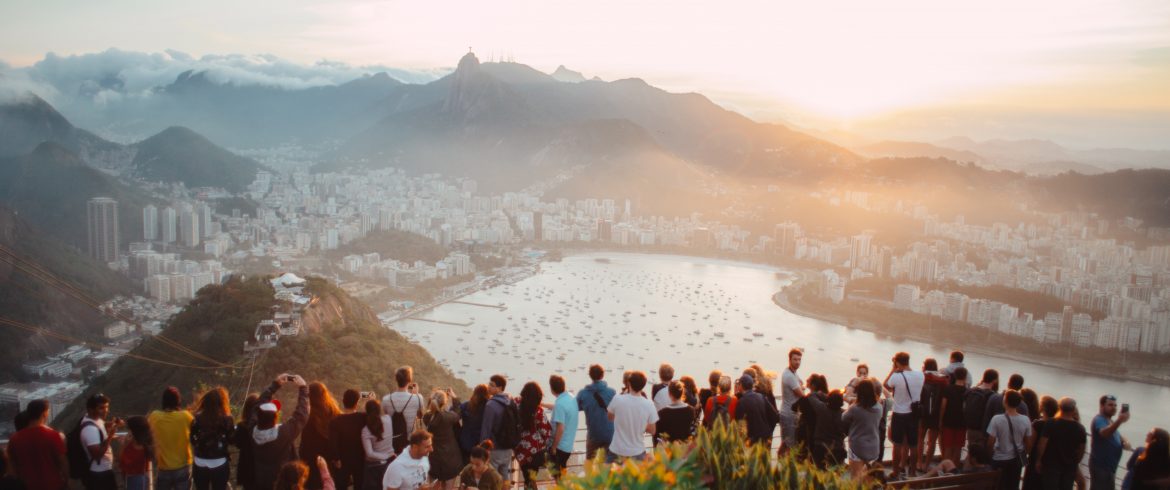
Overtourism : one of the words that people use most in recent years. In effect, more and more often, tourist destinations suffer from overtourism, tourism overcrowding . Places that everyone wants to see because they are “famous”. Movie scenes shot in locations (such as Lake Braies ) that now attract hordes of tourists looking for a short trip. Simply, they stop the time for a selfie and then leave for the next famous stage. This type of mass tourism causes pollution, the devastation of nature and distress of local populations. Let’s see in detail what is overtourism, what are its causes , what are the consequences , and what can be done to avoid it.
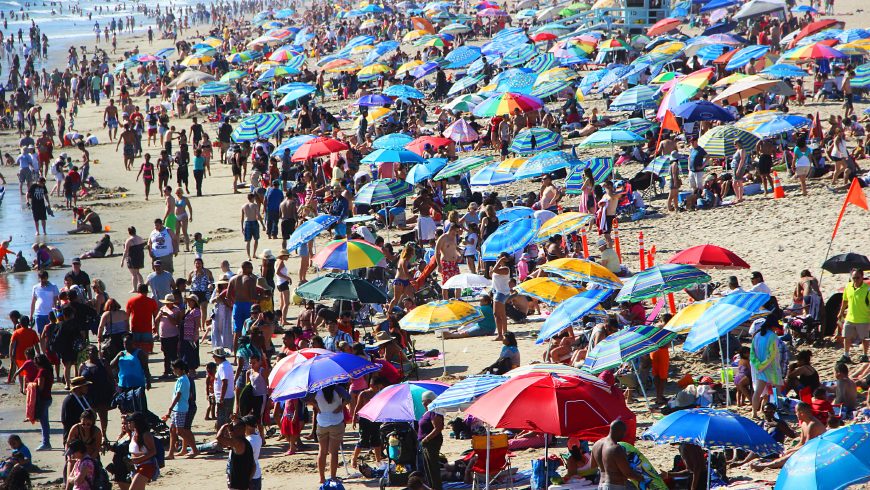
What is overtourism?
Overtourism is a neologism that indicates the overcrowding of tourists on a holiday destination. The term was first inserted in the Oxford dictionary in 2018 and nominated as the year’s word. Overtourism, literally “too much tourism” , is a complex phenomenon that we should analyze from various points of view. In essence, we could sum up the concept in one question. Is this place affected by the presence of more tourists than the place and the inhabitants can support?
When it comes to natural tourist destinations , tourism must respect flora, fauna, and microclimate. When the destination is a city , tourism must primarily r espect residents , as well as local culture and archaeological sites . The latter in particular are small microcosms blocked in time that tourism should protect. If this doesn’t happen, we talk about overtourism, or unsustainable tourism for the place, for nature, for the people who live there.
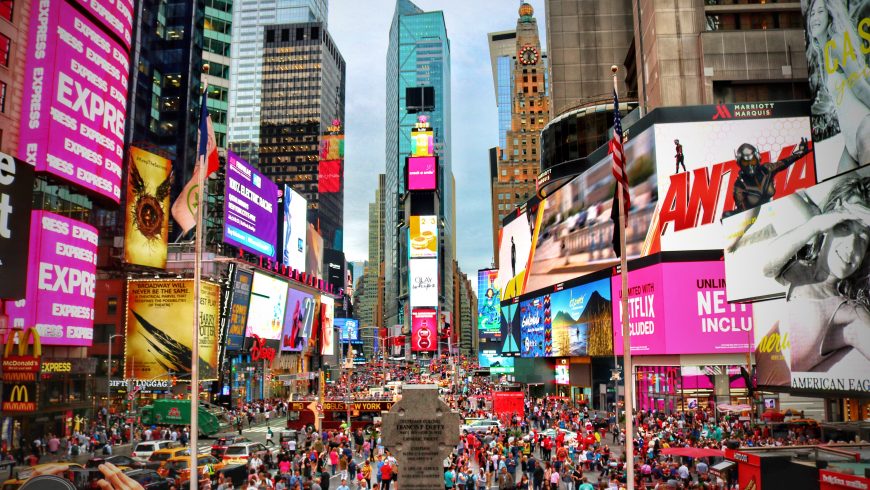
The Causes of overtourism
More than 1.4 billion people are moving around the world every year, and they are growing at an exponential rate. The World Tourism Organisation predicts that by 2030 the international flow of tourists will exceed 2 billion . This very high number of people focus on a few tourist destinations in the world, which suffer from the excessive presence of tourists . The causes of too much tourism are many. From the famous films that make tourist destinations famous to the ease with which you can reach any corner of the world. Also, we can name the cruises that bring large quantities around the seas. We talked about cruises and their environmental impact in this article .

Cultural tourism, a new trend
A trend of the moment is tourism i nfluenced by mass culture . According to this kind of tourism, people chose the destination based on social media , influencers, television programs and films. Tourism influenced by film and TV series products, also known as film tourism , has in some cases led to real disasters. An example is what is happening in the Pacific Islands : in Thailand at Maya Bay , where the film “The Beach” was shot with Leonardo Di Caprio. Over the years, tourists who wanted to see the film set invaded the small beach. This forced the Thai government to prohibit the entry of tourists to restore the delicate balance of the beautiful bay.
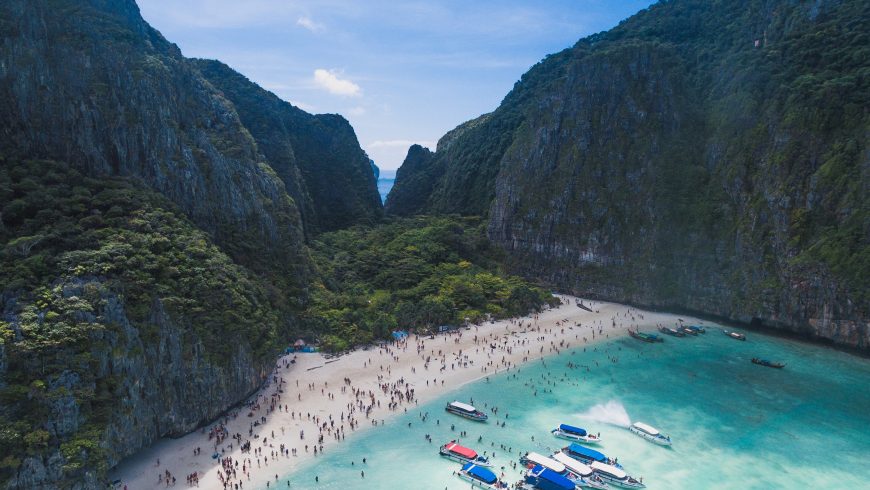
The increase in low-cost air flights and cruises is certainly one of the causes of Overtourism.
The numbers published by the World Tourism Organisation (Unwto) speak for themselves. Even in Italy , we have examples of how mass tourism damages the nature and residents of cities invaded by travelers. Venice , for example, is visited by about 20 million people a year. A number a little too high for such a delicate city, devastated also by cruise ships causing pollution .
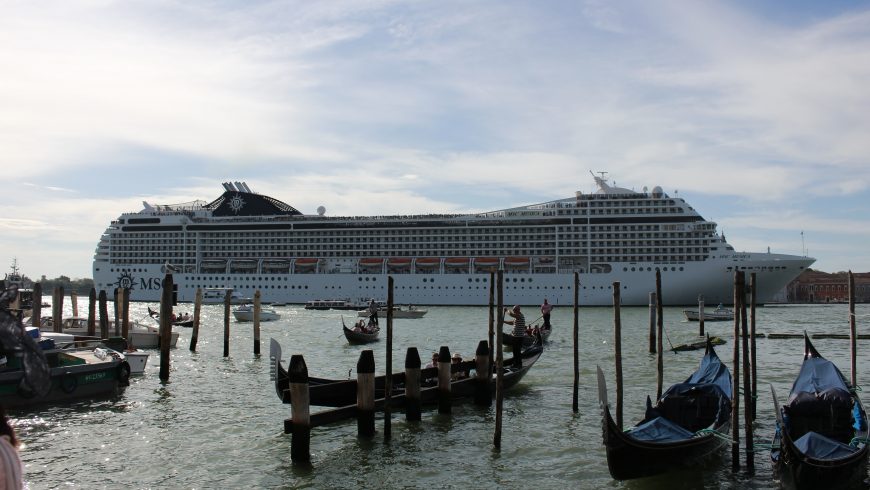
Even Florence , Capri and the Cinque Terre National Park in Liguria suffer from the excessive number of tourists arriving every year. This influx is leading the administrations of the various Italian municipalities to take steps to limit the number of revenues.

Consequences of overtourism
1 destruction of natural ecosystems.
The flora and fauna are usually the first to suffer overtourism in the most popular natural tourist destinations. In some natural destinations, environmental issues led to the destruction of entire ecosystems. Among these problems, we can mention deforestation, exploitation of the soil and pollution . But also, no policy of raising awareness and protecting natural environments. In some cases, this situation has no possibility of redemption, such as, for example, what happens to coral reefs around the world. As global warming and tourists irreparably ruined them, corals are part of a natural system that is becoming extinct.

2. Increase in the amount of waste
Another consequence of mass tourism is the large accumulation of waste that people don’t differentiate. Inevitably, it creates a major environmental problem of disposal and pollution. Boracay Island , in the Philippines, has been closed to restore the ecosystem after years of uncontrolled tourism. The waste problem is also very important on the island of Bali , which is trying to combat it thanks to the thought of Zero waste Bali.
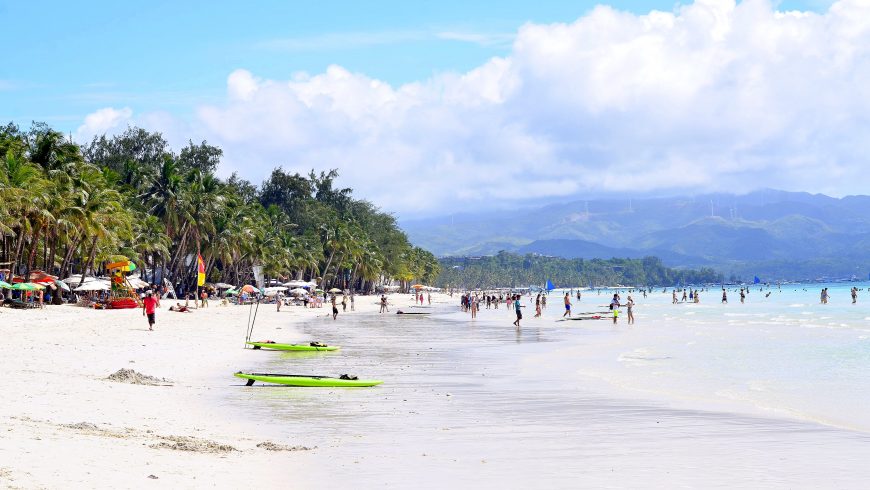
3. Escape and malaise of residents
Too much tourism affects mainly the locals. Across Europe, in cities like Barcelona or Venice, the phenomenon of overtourism has unleashed strong tensions from the inhabitants. Residents complain about the rising of housing prices and rentals. In effect, they inflated them due to the spread of online platforms such as Airbnb. But also, they talked about the disappearance of small shops, replaced by tourist shops, and the inviolability of their cities. The last consequence is the escape of residents from their cities, which have become tourist theatres, thus losing their authenticity.
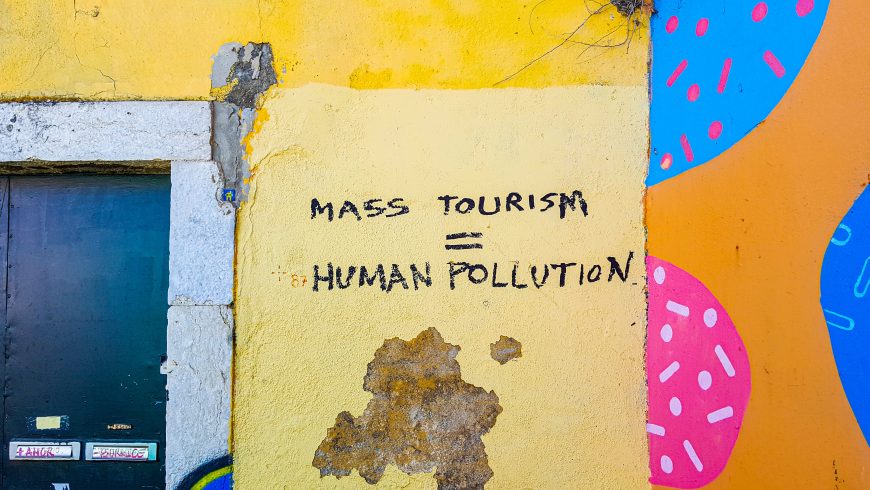
Solutions to overtourism for destinations
As tourist flows around the world increased, the World Tourism Organization (UNWTO) has dedicated an entire Report to overtourism. Certainly, there is not one single solution, but many small things that we can do during our holidays . The Report thus proposes 11 strategies and 68 measures to combat excessive tourism.
Here are the 11 suggestions that tourist destinations can follow to counter the phenomenon of overtourism.
- Encourage the dispersion of tourists within the city, and even beyond the territory, suggesting the visit of lesser-known destinations and less touristic areas.
- Promote tourism in different periods (for example out of season) and at different times from the most popular.
- Create new and different itineraries and tourist attractions.
- Review and improve regulations , such as closing some overcrowded areas to traffic.
- Attract more responsible types of travelers.
- ensure the benefits of tourism to local communities, for example by increasing the number of inhabitants employed in tourism, and by involving residents in the creation of tourism experiences.
- Develop and promote experiences in the city or territory that benefit both tourists and residents.
- Increase the infrastructure and services of the resort.
- Involve the local community in tourist decisions and choices.
- Educate travelers and tell them how to be more responsible and respectful of the place.
- Monitor and measure changes.
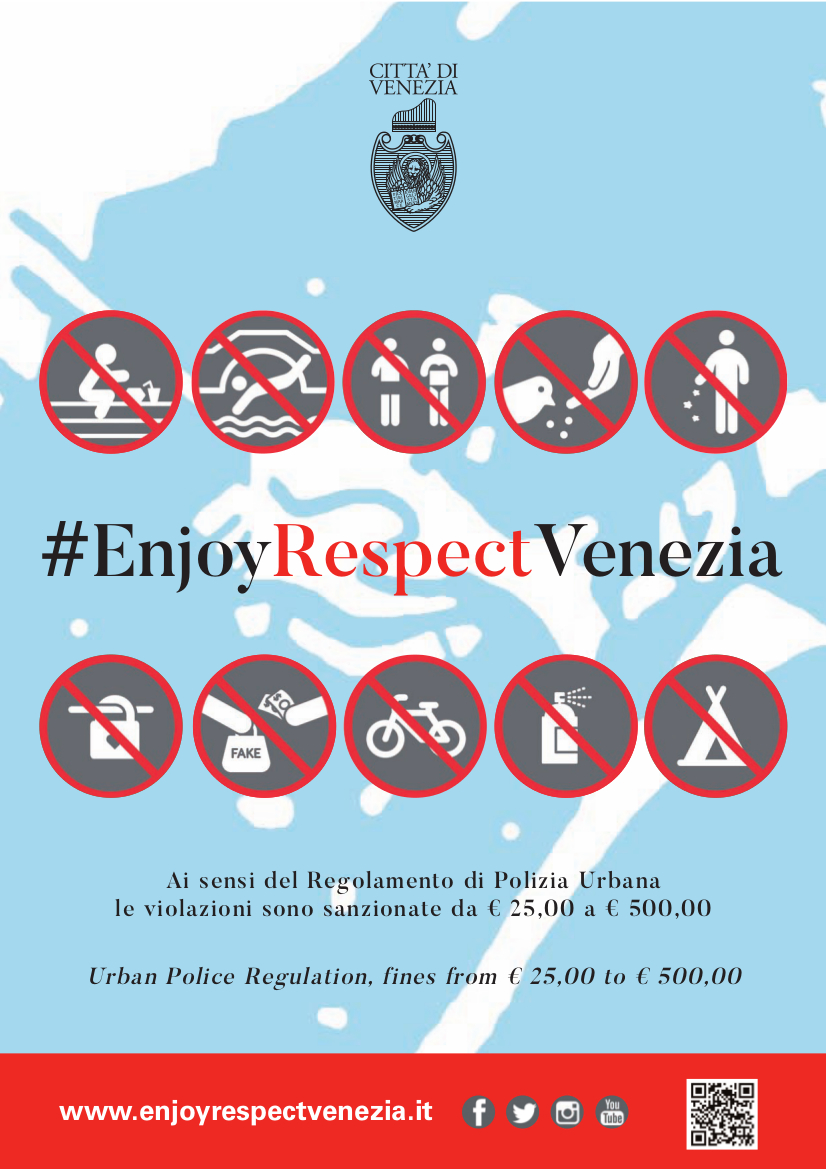
And what can we do?
With Ecobnb we promote responsible tourism , avoiding overcrowded famous destinations and promoting the close destinations. Often we don’t know what surrounds us and which beauties we can find without necessarily taking planes that emit huge amounts of CO2. Slow and sustainable tourism offers authentic locations. These places enrich local communities and those who invest in eco-sustainable activities. The real holiday could also be for you the relaxing and unplugging holiday. You could simply recharge the energies in contact with nature. Nonetheless, remember to try and lessen as much as possible for your environmental impact.
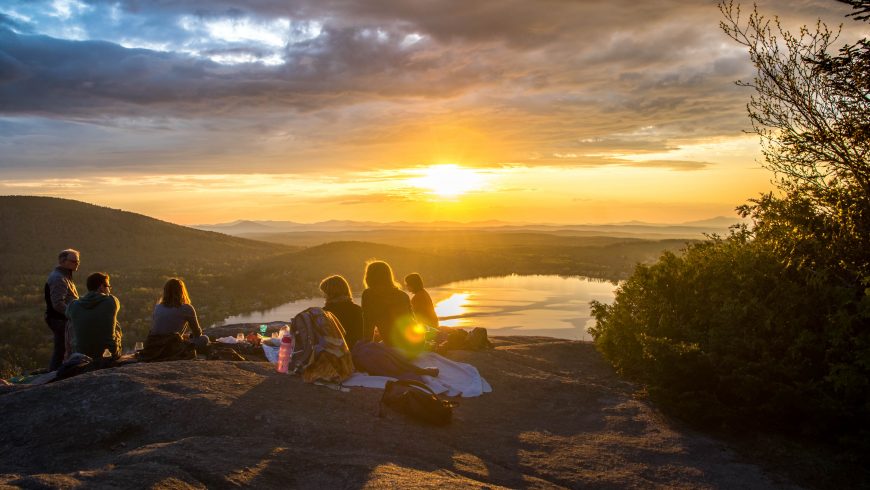
The good news is that each of us can do our part to counteract overtourism and promote sustainable tourism.
Here’s your vademecum
Here are 5 simple ideas , a vademecum, to promote quality tourism, instead of quantity, every time we travel.
- Avoid air flights and cruises, move by train and public transport whenever you can.
- Don’t take your decisions following the mass. If everyone goes to the mountains on August 15, why don’t you choose a different date?
- Organize your holidays in an alternative way, choose authentic and less touristy destinations .
- Travel out of season : spring and autumn are beautiful and less expensive seasons.
- Respect the places you visit (here you find 40 tips to travel green ), try to live like a local”, immerse yourself in the culture of the place and make friends with the inhabitants.
Cover image: photo by Elizeu Dias via Unsplash
You might also like
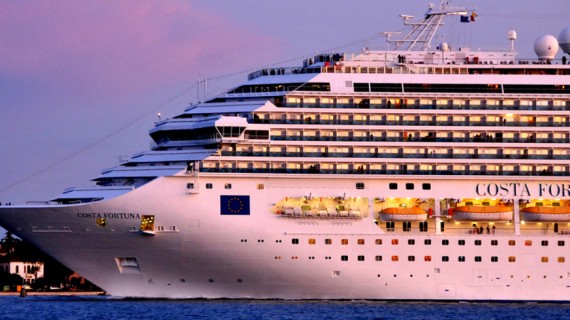
How do cruise ships impact on the environment
The cruise ship is the holiday that has grown faster than any other in the last 20 years. Despite the disaster of the Costa Concordia near the island of Giglio (Italy), cruises are becoming increasingly popular, coming to carry each year about 20 million passengers worldwide and 800,000 in Italy. But it is also the […]

A Cruise Ship Pollutes as One Million Cars
Cruise ships are often associated with luxury and total relaxation, but in reality, they represent huge damage to the environment and the health of passengers and port cities. Cruise ships not only create significant environmental damage but are extremely harmful to health due to their exhaust gases. This is what emerges from the 2016 Environmental […]
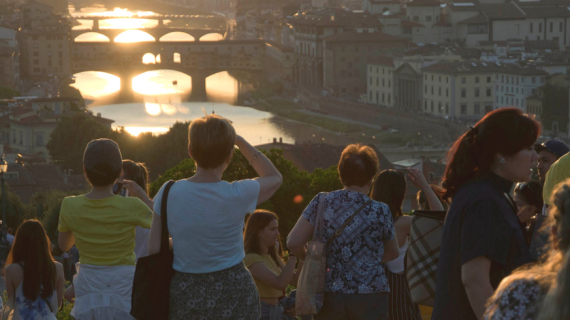
Save our cities from overtourism!
SET (Sud-Europe facing Overtourism): a network created by 15 European cities to denounce the destructive effects of mass tourism and promote the research for a new touristic system. Mass tourism brings enormous amounts of tourists in the main cities. The effects of the so-called overtourism are indeed severe. Cities lost their original artistic, natural and cultural heritage: […]

Pacific Islands: the Paradises ruined by ‘Overtourism’
‘Overtourism’: too much mass tourism threatens fragile ecosystems, such as the Pacific Islands. Philippines, Indonesia, and Thailand the most affected countries. Strategies to preserve destinations and promote responsible tourism are essential Admiring the photos of the dream beaches of some islands of Polynesia or the Philippines is not surprising if in the last few years […]
Overtourism Effects: Positive and Negative Impacts for Sustainable Development
- Living reference work entry
- First Online: 02 October 2020
- Cite this living reference work entry

- Ivana Damnjanović 7
Part of the book series: Encyclopedia of the UN Sustainable Development Goals ((ENUNSDG))
311 Accesses
1 Citations
Responsible tourism ; Tourism overcrowding ; Tourism-phobia ; Tourist-phobia
Definitions
Tourism today is paradoxically dominated by two opposite aspects: its sustainable character and overtourism. Since its creation by Skift in 2016 (Ali 2016 ), the term “overtourism” has been a buzzword in media and academic circles, although it may only be a new word for a problem discussed over the past three decades.
Overtourism is a complex and multifaceted phenomenon destructive to tourism resources and harmful to destination communities’ well-being through overcrowding and overuse (Center for Responsible Travel 2018 ; International Ecotourism Society 2019 ) as certain locations at times cannot withstand physical, ecological, social, economic, psychological, and/or political pressures of tourism (Peeters et al. 2018 ). Overtourism is predominantly a problem producing deteriorated quality of life of local communities (Responsible Tourism n.d. ; The International Ecotourism Society 2019 ; UNWTO 2018...
This is a preview of subscription content, log in via an institution to check access.
Access this chapter
Institutional subscriptions
Ali R (2016) ‘Exploring the coming perils of over tourism’, Skift, 23-08-2016 (online). Available at: www.skift.com (10-09-2019)
Google Scholar
Bowitz E, Ibenholt K (2009) Economic impacts of cultural heritage – research and perspectives. J Cult Herit 10(1):1–8. https://doi.org/10.1016/j.culher.2008.09.002
Article Google Scholar
Center for Responsible Travel – CREST (2018) The case for responsible travel: Trends & Statistics 2018. Retrieved from https://www.responsibletravel.org
Center for Responsible Travel – CREST (n.d.) Center for Responsible Travel. Retrieved 11 Sept 2019, from https://www.responsibletravel.org/
Cheer JM, Milano C, Novelli M (2019) Tourism and community resilience in the anthropocene: accentuating temporal overtourism. J Sustain Tour 27:554–572. https://doi.org/10.1080/09669582.2019.1578363
Croes R, Manuel A, Rivera KJ, Semrad KJ, Khalilzadeh J (2017) Happiness and tourism: evidence from Aruba. Retrieved from the dick pope Sr. Institute for Tourism Studies website. https://doi.org/10.13140/RG.2.2.29257.85602
Epler Wood M, Milstein M, Ahamed-Broadhurst K (2019) Destinations at risk: the invisible burden of tourism. The Travel Foundation
Giulietti, S., Romagosa, F., Fons Esteve, J., & Schröder, C. (2018). Tourism and the environment: towards a reporting mechanism in Europe (ETC/ULS report |01/2018). Retrieved from European Environment Agency website: http://www.sepa.gov.rs/download/strano/ETC_TOUERM_report_2018.pdf
Global Sustainable Tourism Council – GSTC (2017) Official website. Retrieved August 23, 2019, from https://www.gstcouncil.org/
Goodwin, H. (2017) The challenge of overtourism (working paper). Responsible tourism partnership. Available at https://haroldgoodwin.info/pubs/RTP'WP4Overtourism01'2017.pdf
Interagency Visitor Use Management Council (2016) Visitor use management framework: a guide to providing sustainable outdoor recreation, 1st edn
Jordan P, Pastras P, Psarros M (2018) Managing tourism growth in Europe: the ECM toolbox. Retrieved from European Cities Marketing website: https://www.ucm.es/data/cont/media/www/pag-107272/2018-Managing%20Tourism%20Growth%20in%20Europe%20The%20ECM%20Toolbox.pdf
Kim D, Lee C, Sirgy MJ (2016) Examining the differential impact of human crowding versus spatial crowding on visitor satisfaction at a festival. J Travel Tour Mark 33(3):293–312. https://doi.org/10.1080/10548408.2015.1024914
Leung Y, Spenceley A, Hvenegaard G, Buckley, R, Groves C (eds) (2018) Tourism and visitor management in protected areas: guidelines for sustainability. Best practice protected area guidelines series, vol 27. IUCN, Gland. Retrieved from https://doi.org/10.2305/IUCN.CH.2018.PAG.27.en
Li L, Zhang J, Nian S, Zhang H (2017) Tourists’ perceptions of crowding, attractiveness, and satisfaction: a second-order structural model. Asia Pac J Tour Res 22(12):1250–1260. https://doi.org/10.1080/10941665.2017.1391305
Milano C (2017) Overtourism and tourismphobia: global trends and local contexts. Retrieved from Barcelona: Ostelea School of Tourism and Hospitality website. https://doi.org/10.13140/RG.2.2.13463.88481
Book Google Scholar
Milano C, Novelli M, Cheer JM (2019) Overtourism and tourismphobia: a journey through four decades of tourism development, planning and local concerns. Tour Plan Dev 16(4):353–357. Retrieved from. https://doi.org/10.1080/21568316.2019.1599604
Muler Gonzalez V, Coromina L, Galí N (2018) Overtourism: residents’ perceptions of tourism impact as an indicator of resident social carrying capacity – case study of a Spanish heritage town. Tour Rev 73(3):277–296. https://doi.org/10.1108/tr-08-2017-0138
Oklevik O, Gössling S, Hall CM, Steen Jacobsen JK, Grøtte IP, McCabe S (2019) Overtourism, optimisation, and destination performance indicators: a case study of activities in fjord Norway. J Sustain Tour:1–21. https://doi.org/10.1080/09669582.2018.1533020
Peeters P, Gössling S, Klijs J, Milano C, Novelli M, Dijkmans C, Eijgelaar E, Hartman S, Heslinga J, Isaac R, Mitas O, Moretti S, Nawijn J, Papp B, Postma A (2018) Research for TRAN committee – overtourism: impact and possible policy responses. European Parliament, Policy Department for Structural and Cohesion Policies, Brussels
Perkumienė D, Pranskūnienė R (2019) Overtourism: between the right to travel and residents’ rights. Sustainability 11(7):21–38. https://doi.org/10.3390/su11072138
Popp M (2012) Positive and negative urban tourist crowding: Florence, Italy. Tour Geogr 14(1):50–72. https://doi.org/10.1080/14616688.2011.597421
Responsible Tourism (n.d.) Over Tourism (online). Available at: www.responsibletourismpartnership.org/overtourism
Seraphin H, Sheeran P, Pilato M (2018) Over-tourism and the fall of Venice as a destination. J Destin Mark Manag 9:374–376. https://doi.org/10.1016/j.jdmm.2018.01.011
Souza T, Thapa B, Rodrigues CG, Imori D (2018) Economic impacts of tourism in protected areas of Brazil. J Sustain Tour 27(6):735–749. https://doi.org/10.1080/09669582.2017.1408633
Spenceley A, Snyman S, Rylance A (2017) Revenue sharing from tourism in terrestrial African protected areas. J Sustain Tour 27(6):720–734. https://doi.org/10.1080/09669582.2017.1401632
The International Ecotourism Society (2019) Ecotourism is the solution to Overtourism. Retrieved 10 Sept 2019, from https://ecotourism.org/news/ecotourism-is-the-solution-to-overtourism/
The Travel Foundation. (2016). What is sustainable tourism? . Retrieved 13 July 2020, from https://www.thetravelfoundation.org.uk/resources-categories/what-is-sustainable-tourism/
Thomas, C. C., Koontz, L., and Cornachione, E. (2018). 2017 National park visitor spending effects: economic contributions to local communities, states, and the nation. Retrieved from U.S. Department of the Interior, National Park Service website: https://www.nps.gov/nature/customcf/NPS_Data_Visualization/docs/NPS_2017_Visitor_Spending_Effects.pdf
UN World Tourism Organization (2018a) Tourism for SDGs platform. Retrieved 13 Sept 2019, from http://tourism4sdgs.org/
UN World Tourism Organization (2018b) Measuring sustainable tourism. Retrieved from http://statistics.unwto.org/mst
UN World Tourism Organization (2018c) UNWTO tourism highlights, 2018 edition. UNWTO, Madrid, p 4. https://doi.org/10.18111/9789284419876
UN World Tourism Organization; Centre of Expertise Leisure, Tourism & Hospitality; NHTV Breda University of Applied Sciences; and NHL Stenden University of Applied Sciences (2018d), ‘Overtourism’? – Understanding and Managing Urban Tourism Growth beyond Perceptions, Executive Summary, UNWTO, Madrid. https://doi.org/10.18111/9789284420070
UN World Tourism Organization (2019). ‘Key tourism figures’, infographic (online). Available at http://www2.unwto.org
UN World Tourism Organization; Centre of Expertise Leisure, Tourism & Hospitality; NHTV Breda University of Applied Sciences; and NHL Stenden University of Applied Sciences (2018) ‘Overtourism’? – understanding and managing urban tourism growth beyond perceptions, executive summary. UNWTO, Madrid. https://doi.org/10.18111/9789284420070
UNEP and UNWTO (2005) Making tourism more sustainable: a guide for policy makers. World Tourism Organization Publications, Madrid
United Nations (2018) About the sustainable development goals. Retrieved 13 Sept 2019, from http://www.un.org/sustainabledevelopment/sustainable-development-goals/
UNWTO (2004) Tourism congestion management at natural and cultural sites. World Tourism Organization Publications, Madrid
Waller I (2011) Less law, more order. Acta Criminologica South Afr J Criminol 24(1):I–IV. Retrieved from https://hdl.handle.net/10520/EJC29060
World Travel & Tourism Council (2019) Global Economic Impact & Trends 2019 (march 2019). Available at https://www.wttc.org/economic-impact/country-analysis/
World Travel & Tourism Council (WTTC) and McKinsey Company (2017) Coping with success: managing overcrowding in tourism destinations. Retrieved from https://www.wttc.org/-/media/files/reports/policy-research/coping-with-success%2D%2D-managing-overcrowding-in-tourism-destinations-2017.pdf
WWF – World Wide Fund For Nature (2019) Blue planet: coasts. Retrieved 12 Sept 2019, from http://wwf.panda.org/our_work/oceans/coasts/
Zehrer A, Raich F (2016) The impact of perceived crowding on customer satisfaction. Retrieved from. https://doi.org/10.1016/j.jhtm.2016.06.007
Download references
Author information
Authors and affiliations.
Faculty of Health and Business Studies, Singidunum University, Valjevo, Serbia
Ivana Damnjanović
You can also search for this author in PubMed Google Scholar
Corresponding author
Correspondence to Ivana Damnjanović .
Editor information
Editors and affiliations.
European School of Sustainability, Hamburg University of Applied Sciences, Hamburg, Hamburg, Germany
Walter Leal Filho
Center for Neuroscience & Cell Biology, University of Coimbra, Coimbra, Portugal
Anabela Marisa Azul
Faculty of Engineering and Architecture, Passo Fundo University Faculty of Engineering and Architecture, Passo Fundo, Brazil
Luciana Brandli
HAW Hamburg, Hamburg, Hamburg, Germany
Amanda Lange Salvia
International Centre for Thriving, University of Chester, Chester, UK
Section Editor information
Department of Health Professions, Manchester Metropolitan University, Manchester, UK
Haruna Musa Moda
Rights and permissions
Reprints and permissions
Copyright information
© 2020 Springer Nature Switzerland AG
About this entry
Cite this entry.
Damnjanović, I. (2020). Overtourism Effects: Positive and Negative Impacts for Sustainable Development. In: Leal Filho, W., Azul, A.M., Brandli, L., Lange Salvia, A., Wall, T. (eds) Industry, Innovation and Infrastructure. Encyclopedia of the UN Sustainable Development Goals. Springer, Cham. https://doi.org/10.1007/978-3-319-71059-4_112-1
Download citation
DOI : https://doi.org/10.1007/978-3-319-71059-4_112-1
Received : 10 October 2019
Accepted : 16 October 2019
Published : 02 October 2020
Publisher Name : Springer, Cham
Print ISBN : 978-3-319-71059-4
Online ISBN : 978-3-319-71059-4
eBook Packages : Springer Reference Earth and Environm. Science Reference Module Physical and Materials Science Reference Module Earth and Environmental Sciences
- Publish with us
Policies and ethics
- Find a journal
- Track your research

Ibrahim Latif
Four disadvantages of tourism.
Similar Questions
Discuss how ethical codes help to protect both the client and the counselor., name two anta acids class 7th , information about humayun's tomb in ten lines, write a very attractive speech about tourism in solomon island, write a speech about tourism in solomon island, information about red fort in 10 lines, write a presentation on social justice showing examples, references and citations, accommodation , discuss the five tax incentives in the tourism sector, full notes on tax incentives in the tourism sector, please log in to continue., be one of the experts, frequently asked questions, terms of use, privacy policy, select language.

Advantages And Disadvantages Of International Tourism
- Miscellaneous
- Aug 13, 2023
- Noshin Bashir
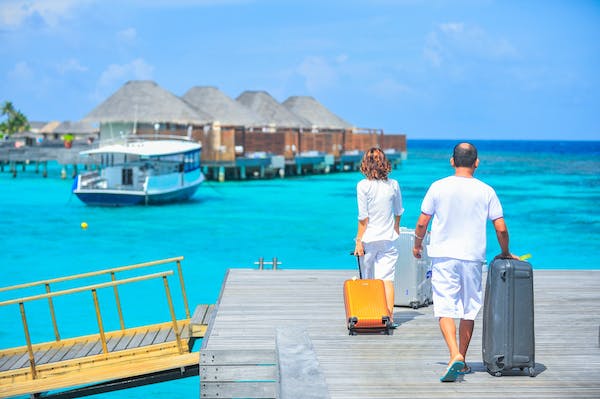
Several countries heavily rely on tourism as a significant part of their economies. These countries often have stunning natural landscapes, rich cultural heritage, unique infrastructure, historical sites, or unique attractions that draw in a large number of tourists. Some examples of countries that heavily rely on tourism include MALDIVES, Spain, Switzerland, Thailand, Switzerland, etc.
With its breathtaking beaches and luxurious resorts, tourism is the backbone of the Maldives’ economy, contributing a substantial portion of its GDP. Apart from the Maldives, Spain, and Thailand are major tourist destinations known for their beaches, historic cities, and cultural sites. Ancient history, stunning islands, and archaeological sites of Greece attract tourists from around the world.
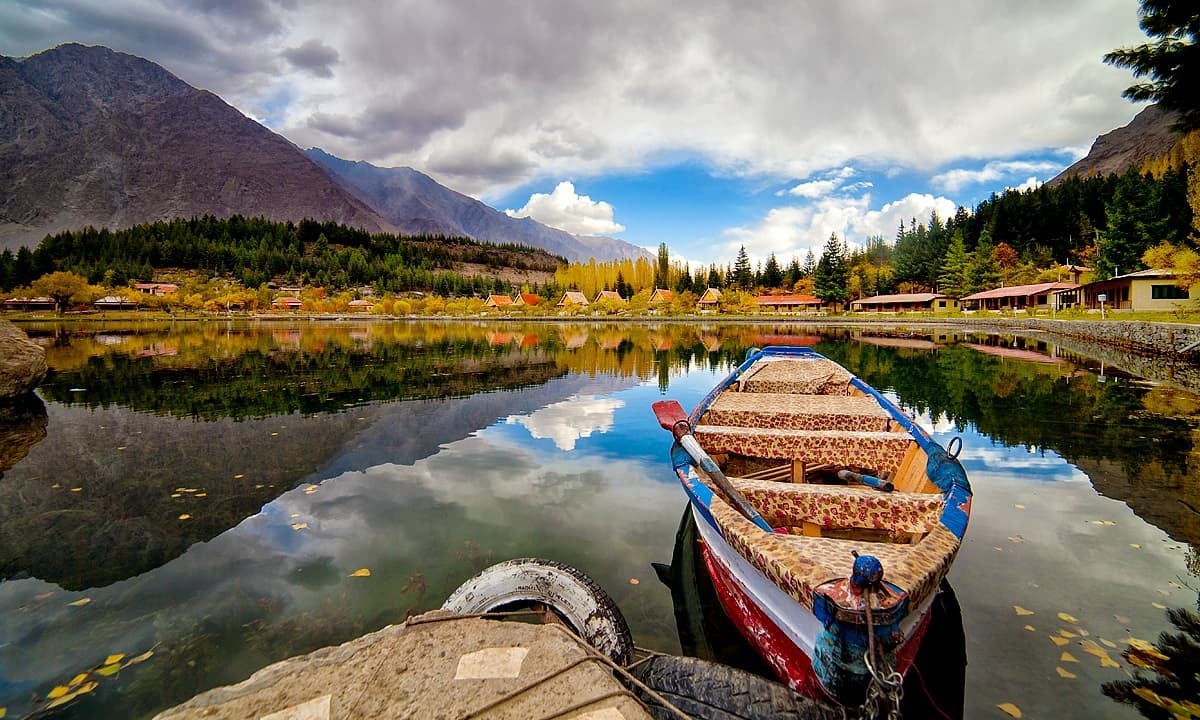
Tourism brings about a range of benefits to both the host country or destination and the tourists themselves. Here are some of the key advantages of tourism. For instance, tourism is a significant contributor to economic growth, generating revenue and creating employment opportunities in various sectors, such as hospitality, transportation, entertainment, and retail.
Tourism also brings in foreign exchange through expenditures by tourists on accommodations, food, transportation, attractions, and souvenirs. This revenue can bolster a country’s balance of payments and support local economies.
Additionally, the need to cater to tourists often leads to improved infrastructure such as transportation networks, airports, roads, and public facilities, which can benefit both tourists and local residents. Tourism provides opportunities for a wide range of job types, from hotel staff and tour guides to artisans and performers, contributing to job diversification within local communities.
Above all, tourism promotes cultural exchange and encourages the preservation and maintenance of historical sites, landmarks, and cultural heritage, as they become valuable assets for attracting visitors.
While these advantages are notable, it’s important to implement sustainable tourism practices that minimize the negative impacts and ensure that the benefits of tourism are distributed equitably among local communities, economies, and the environment.
It’s important to note that while tourism can bring economic benefits to these countries, it also poses challenges, such as managing environmental impact, preserving local culture, and ensuring equitable distribution of tourism-related income.
While tourism offers numerous benefits, it also comes with its share of disadvantages. Here are some common drawbacks associated with tourism. First, tourism can lead to environmental degradation through increased pollution, deforestation, habitat destruction, and overuse of natural resources. Popular tourist destinations often experience increased waste generation and strain on local ecosystems.
Second, excessive tourism can lead to the commodification and commercialization of local cultures, resulting in the loss of authentic traditions and values. Communities may start catering primarily to tourists, diluting their own cultural practices.

Besides, the sheer volume of tourists in some places can overwhelm infrastructure, damage historical sites, and disrupt the lives of local residents. This phenomenon, known as over-tourism, can lead to negative impacts on both the environment and the community. Moreover, as demand for goods and services rises due to tourism, the cost of living in a destination can increase, making it challenging for local residents to afford basic necessities.
Tourists sometimes may unintentionally disrespect local customs, traditions, and etiquette due to a lack of awareness, causing tensions between visitors and locals. Above all, natural disasters can really turn the tourism industry upside down as has been in the case of the recent pandemic. T he COVID-19 pandemic has highlighted the vulnerability of economies heavily dependent on tourism, as travel restrictions and health concerns have led to a significant decrease in tourist arrivals.
Many countries imposed strict travel restrictions and lockdown measures to contain the spread of the virus. This resulted in the closure of borders, suspension of international flights, and restrictions on movement, bringing international travel to a halt. This led to a massive decrease in tourist arrivals, causing a severe decline in revenue for tourism-dependent economies. Airlines too faced a sharp decline in demand for flights, leading to financial struggles, layoffs, and even bankruptcies for many airlines around the world.
Share This Post:
Related posts.

11 Signs To Know If He Is Cheating On You?
Matric paper of english bise sargodha, read surah muzammil online.

Experience Is The Best Teacher
Recent posts.

What Is D8 Organization? What Does It Aim For?

What Should You Do In Case Of Road Injury?
List of airports in iran, leave a comment cancel reply.
Your email address will not be published. Required fields are marked *
Save my name, email, and website in this browser for the next time I comment.
The pros and cons of adventure tourism
Is it really worth it to take a risky vacation?
- Newsletter sign up Newsletter
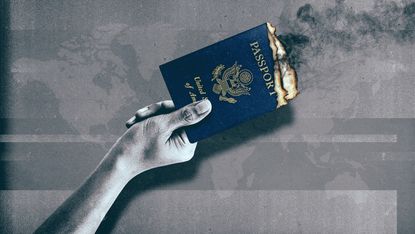
The implosion of the Titan submersible as it plunged 12,500 feet under the sea to view the wreckage of the Titanic, leaving all five people onboard dead, left many asking one question: Is this type of adventure really worth it?
The risks of traveling on the Titan were well-documented. OceanGate, the company that built the submersible, reportedly made participants sign a waiver that mentioned death three times on the first page. OceanGate was also warned by industry experts that the vessel was unsafe. The five travelers still made the trip, and one of the victims, Shazada Dahwood, was "absolutely obsessed" with seeing the Titanic, his sister told NBC News .
Is this type of trip, often called adventure tourism , worth the risk to somebody's life? Do the negatives and risks of climbing a big mountain or trekking through a remote jungle outweigh the positives, or is there something significant to be gained from adventure expeditions?
Subscribe to The Week
Escape your echo chamber. Get the facts behind the news, plus analysis from multiple perspectives.

Sign up for The Week's Free Newsletters
From our morning news briefing to a weekly Good News Newsletter, get the best of The Week delivered directly to your inbox.
Pro: People can learn about the world
Adventure tourism — and travel in general — can give people "an opportunity to see the world from a different perspective, form meaningful relationships, and develop new skills," travel writer Emily Lush reported . This type of tourism also lets travelers have "deeper and more meaningful travel experiences," a phenomenon which "has never been more appealing."
Taking on exotic experiences allows people to "broaden their horizons, learn new skills, and appreciate diversity," per a LinkedIn report. For those who haven't traveled often , or at all, adventure tourism can "foster a sense of connection, purpose, and gratitude, as travelers can contribute to social and environmental causes."
Con: It's dangerous
Perhaps the most glaring negative: Adventure tourism can be hazardous, and the "risk for illness and injury with adventure travel is much greater," Christopher Van Tilburg wrote for the CDC's 2024 travel guide . The risk of "illness and injury is a function of two variables: probability and consequence," Van Tilburg added. He noted that adventure tourism destinations "can be remote and lack access to care," and "trips are often goal-oriented, which can cause travelers to exceed safety limits and take increased risks."
This type of tourism is growing among "thrill-seekers looking for an adrenaline rush, pushing the boundaries of conventional travel and, sometimes, of safe travel," Samantha Delouya reported for CNN .
Sign up for Today's Best Articles in your inbox
A free daily email with the biggest news stories of the day – and the best features from TheWeek.com
Pro: It can improve your health
Adventure travel, as with any physical activity, can have positive health effects. While some people may just go to the gym, "Wouldn't it be more fun to get your exercise while sailing and soaring through the Alpine Arctic and witnessing some of the planet's awe-inspiring landscapes?" Amanda Wells argued for Quark Expeditions .
There are also reported mental health benefits, as "travel is great for relieving stress and improving your general outlook on life," according to the World Travel and Tourism Council . Physical activities "like walking, hiking, and skiing in scenic areas can help you become more hopeful," the organization added.
Con: It's often expensive
Getting onboard the Titan submersible cost $250,000, and similar expeditions often exist "to provide exclusive, expensive, and dangerous travel itineraries to the world's wealthiest would-be explorers," Spencer Buell reported for The Boston Globe . Even with the clear dangers, "Previously unthinkable treks [have] become more accessible to anyone with deep enough pockets," Buell added.
Despite its high costs, the Titan incident "will not dampen demand for 'extreme' tourism where a rescue is unlikely or even impossible," Dr. Adele Doran, principal lecturer in adventure tourism and recreation at Sheffield Hallam University, told Insider .
Pro: It can boost local economies
Adventure travel can prop up smaller economies, helping "free developing countries from downward-spiraling cycles of human poverty and environmental degradation," Kim Joyce reported for USA Today . The promotion of adventure expeditions "improves the community's social and economic health , and elevates community morale —which can lead to more opportunities for investment."
Local economies can be improved "in many ways, from hosting travel groups, to support services such as food and transportation," Elizabeth Sobiski added for The Arizona Republic . This can be especially prevalent in economically depressed areas, where "jobs in transporting, housing, feeding, and entertaining visitors are created."
Con: It can negatively impact the environment
Adventure tourism — and tourism of all types — can result in "pollution and littering, as well as damage to natural habitats. It can also cause problems for locals, who may feel they are being taken advantage of or threatened," Iqbal Uddin Abbasi wrote for LinkedIn .
There are also " environmental hazards associated with adventure tourism activities such as kayaking, rappelling, and scuba diving," Abassi added. These hazards have increased as a result of a changing planet, and the "impacts of climate change mean we need to keep our eyes more open to respond to the changes, and keep reviewing our risk assessments," Christina Beckmann, a climate expert with the Adventure Travel Trade Association, told BBC News .
Justin Klawans has worked as a staff writer at The Week since 2022. He began his career covering local news before joining Newsweek as a breaking news reporter, where he wrote about politics, national and global affairs, business, crime, sports, film, television and other Hollywood news. Justin has also freelanced for outlets including Collider and United Press International.

Cartoons Sunday's cartoons - security blanket, tip-off, and more
By The Week US Published 18 August 24

Cartoons Artists take on denial, depression, and more

In depth Cricketer's 'bottle in abundance' endeared him to fans
By The Week UK Published 18 August 24
- Contact Future's experts
- Terms and Conditions
- Privacy Policy
- Cookie Policy
- Advertise With Us
The Week is part of Future plc, an international media group and leading digital publisher. Visit our corporate site . © Future US, Inc. Full 7th Floor, 130 West 42nd Street, New York, NY 10036.
Top Streams
- Data Science Courses in USA
- Business Analytics Courses in USA
- Engineering Courses in USA
- Tax Courses in USA
- Healthcare Courses in USA
- Language Courses in USA
- Insurance Courses in USA
- Digital Marketing Courses in USA
Top Specialization
- Masters in Data Analytics in USA
- Masters in Mechanical Engineering in USA
- Masters in Supply Chain Management in USA
- Masters in Computer Science in USA
- MBA in Finance in USA
- Masters in Architecture in USA
Top Universities
- Cornell University
- Yale University
- Princeton University
- University of California Los Angeles
- University of Harvard
- Stanford University
- Arizona State University
- Northeastern University
- Scholarships to Study in USA
- Project Management Courses in Australia
- Accounting Courses in Australia
- Medical Courses in Australia
- Psychology Courses in Australia
- Interior Designing Courses in Australia
- Pharmacy Courses in Australia
- Social Work Courses in Australia
- MBA in Australia
- Masters in Education in Australia
- Masters in Pharmacy in Australia
- Masters in Information Technology in Australia
BBA in Australia
- Masters in Teaching in Australia
- Masters in Psychology in Australia
- University of Melbourne
- Deakin University
- Carnegie Mellon University
- Monash University
- University of Sydney
- University of Queensland
- RMIT University
- Macquarie University
- PR Courses in Australia
- SOP for Australia Student Visa
- Data Science Courses in Canada
- Business Management Courses in Canada
- Supply Chain Management Courses in Canada
- Project Management Courses in Canada
- Business Analytics Courses in Canada
- Hotel Management Courses in Canada
- MBA in Canada
- MS in Canada
- Masters in Computer Science in Canada
- Masters in Management in Canada
- Masters in Psychology in Canada
- Masters in Education in Canada
- MBA in Finance in Canada
- Masters in Business Analytics in Canada
- University of Toronto
- University of British Columbia
- McGill University
- University of Alberta
- York University
- University of Calgary
- Algoma University
- University Canada West
- IELTS requirement for Canada Student Visa
- Canada Visa Interview
- Top cities in Canada for International Students
- Project Management Courses in UK
- Data Science Courses in UK
- Public Health Courses in UK
- Digital Marketing Courses in UK
- Hotel Management Courses in UK
- Nursing Courses in UK
- Medicine Courses in UK
- Interior Designing Courses in UK
- Masters in Computer Science in UK
- Masters in Psychology in UK
- MBA in Finance in UK
- MBA in Healthcare Management in UK
- Masters in Education in UK
- Masters in Marketing in UK
- MBA in HR in UK
- University of Oxford
- University of Cambridge
- Coventry University
- University of East London
- University of Hertfordshire
- University of Birmingham
- Imperial College London
- University of Glasgow
Top Resources
- Universities in Germany
- Study in Germany
- Masters in Germany
- Courses in Germany
- Bachelors in Germany
- Germany Job Seeker Visa
- Cost of Living in Germany
- Best Universities in Germany
Top Courses
- Masters in Data Science in Germany
- MS in Computer Science in Germany
- Marine Engineering in Germany
- MS Courses in Germany
- Masters in Psychology in Germany
- Hotel Management Courses in Germany
- Masters in Economics in Germany
- Paramedical Courses in Germany
- Karlsruhe Institute of Technology
- University of Bonn
- University of Freiburg
- University of Hamburg
- University of Stuttgart
- Saarland University
- Mannheim University
- MBA in Ireland
- Phd in Ireland
- Masters in Computer Science Ireland
- Cyber Security in Ireland
- Masters in Data Analytics Ireland
- Ms in Data Science in Ireland
- Pharmacy courses in ireland
- Business Analytics Course in Ireland
- Universities in Ireland
- Study in Ireland
- Masters in Ireland
- Courses in Ireland
- Bachelors in Ireland
- Cost of Living in Ireland
- Ireland Student Visa
- Part Time Jobs in Ireland
- Trinity College Dublin
- University College Dublin
- Dublin City University
- University of Limerick
- Dublin Business School
- Maynooth University
- University College Cork
- National College of Ireland
Colleges & Courses
- Masters in France
- Phd in France
- Study Medicine in France
- Best Universities in Frankfurt
- Best Architecture Colleges in France
- ESIGELEC France
- Study in France for Indian Students
- Intakes in France
- SOP for France Visa
- Study in France from India
- Reasons to Study in France
- How to Settle in France
More About France
- Cost of Living in France
- France Study Visa
- Cost of Living in Frankfurt
- France Scholarship for Indian Students
- Part Time Jobs in France
- Stay Back in France After Masters
About Finland
- Universities in Finland
- Study in Finland
- Courses in Finland
- Bachelor Courses in Finland
- Masters Courses in Finland
- Cost of Living in Finland
- MS in Finland
- Average Fees in Finland Universities
- PhD in Finland
- Jobs in Finland
- Bachelor Degree in Medicine & Surgery
- MBBS Courses in Georgia
- MBBS Courses in Russia
- Alte University
- Caucasus University
- Georgian National University SEU
- David Tvildiani Medical University
- Caspian International School Of Medicine
- Asfendiyarov Kazakh National Medical University
- Kyrgyz State Medical Academy
- Cremeia Federal University
- Bashkir State Medical University
- Kursk State Medical University
- Andijan State Medical Institute
- IELTS Syllabus
- IELTS Prepration
- IELTS Eligibility
- IELTS Test Format
- IELTS Band Descriptors
- IELTS Speaking test
- IELTS Writing Task 1
- IELTS score validity
- IELTS Cue Card
IELTS Reading Answers Sample
- Animal Camouflage
- Types Of Societies
- Australia Convict Colonies
- A Spark A Flint
- Emigration To The Us
- The History Of Salt
- Zoo Conservation Programmes
- The Robots Are Coming
- The Development Of Plastic
IELTS Speaking Cue Card Sample
- Describe A Puzzle You Have Played
- Describe A Long Walk You Ever Had
- Describe Your Favourite Movie
- Describe A Difficult Thing You did
- Describe A Businessman You Admire
- Memorable Day in My Life
- Describe Your Dream House
- Describe A Bag You Want to Own
- Describe a Famous Athlete You Know
- Aquatic Animal
IELTS Essay Sample Sample
- Best Education System
- IELTS Opinion Essay
- Agree or Disagree Essay
- Problem Solution Essays
- Essay on Space Exploration
- Essay On Historical Places
- Essay Writing Samples
- Tourism Essay
- Global Warming Essay
- GRE Exam Fees
- GRE Exam Syllabus
- GRE Exam Eligibility
- Sections in GRE Exam
- GRE Exam Benefits
- GRE Exam Results
- GRE Cutoff for US Universities
- GRE Preparation
- Send GRE scores to Universities
GRE Exam Study Material
- GRE Verbal Preparation
- GRE Study Material
- GRE AWA Essays
- GRE Sample Issue Essays
- Stanford University GRE Cutoff
- Harvard University GRE Cutoff
- GRE Quantitative Reasoning
- GRE Verbal Reasoning
- GRE Reading Comprehension
- Prepare for GRE in 2 months
Other Resources
- Documents Required For Gre Exam
- GRE Exam Duration
- GRE at Home
- GRE vs GMAT
- Improve GRE Verbal Scores
Free GRE Ebooks
- GRE Preparation Guide (Free PDF)
- GRE Syllabus (Free PDF)
- GMAT Eligibility
- GMAT Syllabus
- GMAT Exam Dates
- GMAT Registration
- GMAT Exam Fees
- GMAT Sections
- GMAT Purpose
GMAT Exam Study Material
- How to prepare for GMAT?
- GMAT Score Validity
- GMAT Preparation Books
- GMAT Preparation
- GMAT Exam Duration
- GMAT Score for Harvard
- GMAT Reading Comprehension
- GMAT Retake Strategy
Free GMAT Ebooks
- GMAT Guide PDF
- Download GMAT Syllabus PDF
- TOEFL Exam Registration
- TOEFL Exam Eligibility
- TOEFL Exam Pattern
- TOEFL Exam Preparation
- TOEFL Exam Tips
- TOEFL Exam Dates
- Documents for TOEFL Exam
- TOEFL Exam Fee
TOEFL Exam Study Material
- TOEFL Preparation Books
- TOEFL Speaking Section
- TOEFL Score and Results
- TOEFL Writing Section
- TOEFL Reading Section
- TOEFL Listening Section
- TOEFL Vocabulary
- Types of Essays in TOEFL
Free TOEFL Ebooks
- TOEFL Exam Guide (Free PDF)
- PTE Exam Dates
- PTE Exam Syllabus
- PTE Exam Eligibility Criteria
- PTE Test Centers in India
- PTE Exam Pattern
- PTE Exam Fees
- PTE Exam Duration
- PTE Exam Registration
PTE Exam Study Material
- PTE Exam Preparation
- PTE Speaking Test
- PTE Reading Test
- PTE Listening Test
- PTE Writing Test
- PTE Essay Writing
- PTE exam for Australia
Free PTE Ebooks
- PTE Syllabus (Free PDF)
- Duolingo Exam
- Duolingo Test Eligibility
- Duolingo Exam Pattern
- Duolingo Exam Fees
- Duolingo Test Validity
- Duolingo Syllabus
- Duolingo Preparation
Duolingo Exam Study Material
- Duolingo Exam Dates
- Duolingo Test Score
- Duolingo Test Results
- Duolingo Test Booking
Free Duolingo Ebooks
- Duolingo Guide (Free PDF)
- Duolingo Test Pattern (Free PDF)
NEET & MCAT Exam
- NEET Study Material
- NEET Preparation
- MCAT Eligibility
- MCAT Preparation
SAT & ACT Exam
- ACT Eligibility
- ACT Exam Dates
- SAT Syllabus
- SAT Exam Pattern
- SAT Exam Eligibility
USMLE & OET Exam
- USMLE Syllabus
- USMLE Preparation
- USMLE Step 1
- OET Syllabus
- OET Eligibility
- OET Prepration
PLAB & LSAT Exam
- PLAB Exam Syllabus
- PLAB Exam Fees
- LSAT Eligibility
- LSAT Registration
- PLAB Accepted Countries
- TOEIC Result
- Study Guide
Application Process
- LOR for Masters
- SOP Samples for MS
- LOR for Phd
- SOP for Internship
- SOP for Phd
- Check Visa Status
- Motivation Letter Format
- Motivation Letter for Internship
- F1 Visa Documents Checklist
Career Prospects
- Popular Courses after Bcom in Abroad
- Part Time Jobs in Australia
- Part Time Jobs in USA
- Salary after MS in Germany
- Salary after MBA in Canada
- Average Salary in Singapore
- Higher Studies after MBA in Abroad
- Study in Canada after 12th
- Most Demanding Engineering Fields
Trending Topics
- Best Education System in World
- Best Flying Schools in World
- Top Free Education Countries
- Best Countries to Migrate from India
- 1 Year PG Diploma Courses in Canada
- Germany Post Study Work Visa
- Post Study Visa in USA
- Packing List for Indian Students
- Data Science Vs Data Analytics
- Public Vs Private Universities in Germany
- Universities Vs Colleges
- Difference Between GPA and CGPA
- Undergraduate Vs Graduate
- MBA in UK Vs MBA in USA
- Degree Vs Diploma in Canada
- IELTS vs TOEFL
- Duolingo English Test vs. IELTS
- Canada Vs India
Why Study in Canada
- Cost of Living in Canada
- Education System in Canada
- SOP for Canada
- Summer Intake in Canada
- Spring Intake in Canada
- Winter Intake in Canada
- Accommodation in Canada for Students
- Average Salary in Canada
- Fully Funded Scholarships in Canada
- Why Study in USA
- Cost of Studying in USA
- Spring Intake in USA
- Winter Intake in USA
- Summer Intake in USA
- STEM Courses in USA
- Scholarships for MS in USA
- Acceptable Study Gap in USA
- Interesting Facts about USA
- Free USA course
- Why Study in UK
- Cost of Living in UK
- Cost of Studying in UK
- Education System in UK
- Summer Intake in UK
- Spring Intake in UK
- Student Visa for UK
- Accommodation in UK for Students
- Scholarships in UK
- Why Study in Germany
- Cost of Studying in Germany
- Education System in Germany
- SOP for Germany
- Summer Intake in Germany
- Winter Intake in Germany
- Study Visa for Germany
- Accommodation in Germany for Students
- Free Education in Germany
Country Guides
- Study in UK
- Study in Canada
- Study in USA
- Study in Australia
- SOP Samples for Canada Student Visa
- US F1 Visa Guide for Aspirants
Exams Guides
- Duolingo Test Pattern
Recommended Reads
- Fully Funded Masters Guide
- SOP Samples For Australia
- Scholarships for Canada
- Data Science Guide
- SOP for MS in Computer Science
- Study Abroad Exams
- Alumni Connect
- Booster Program
- Scholarship
GPA CALCULATOR Convert percentage marks to GPA effortlessly with our calculator!
Expense calculator plan your study abroad expenses with our comprehensive calculator, ielts band calculator estimate your ielts band score with our accurate calculator, education loan calculator discover your eligible loan amount limit with our education calculator, university partner explore growth and opportunities with our university partnership, accommodation discover your perfect study abroad accommodation here, experience-center discover our offline centers for a personalized experience, our offices visit us for expert study abroad counseling..
- 18002102030
- Study Abroad
Advantages and Disadvantages of Tourism IELTS Essay: Sample
- IELTS Preparation
- IELTS E-Books
- IELTS Registration
- IELTS Exam Fee
- IELTS Exam Dates 2024
- Documents Required
- IELTS Test Centers
- Test Format
- Band Descriptors
- IELTS Speaking Test
- General Reading Test
- General Writing Task
- IELTS Coaching
- Types of Essays
- IELTS for Australia
- IELTS Results
- Generation Gap Essay
- GPA Calculator
- Study Abroad Consultant In India
- Study Visa Consultants in India
Updated on 29 July, 2024

Sunita Kadian
Ielts expert.
You can readily check out the samples for the advantages and disadvantages of a tourism IELTS essay here. There are 40 minutes that you will get for completing the essay, with the minimum word count being 250. The upper limit is not present in most scenarios. Make sure that you check the samples carefully for the writing style.
Table of Contents
Advantages and disadvantages of tourism ielts essay samples - 2, download ielts sample papers, frequently asked questions, important study abroad articles, study abroad without ielts, advantages and disadvantages of tourism ielts essay samples.
Question- Describe the advantages and disadvantages of tourism in the modern world .
Essay 1-
In a time when globalization is sweeping the entire ecosystem, tourism has a crucial responsibility for developing global economies and nations. Nowadays, tourism is what makes widespread economic contributions to all countries, although there are a few negatives as well. This essay talks about the advantages and disadvantages of tourism before concluding with a final opinion.
The biggest benefits of tourism are quite obvious, i.e., boosting the national GDP and economy and creating more employment for local citizens and communities. Tourists use diverse solutions while traveling, including booking hotels, flights, transportation, and guides. They also require food, shopping, and leisure while indulging in a wide gamut of other activities. This leads to extra income for thousands, which contributes handsomely to the country's economy. Tourism increases the GDP significantly and helps create more employment opportunities. People are always needed as tour guides, operators, booking agents, hotel and restaurant staff, transportation personnel, etc. Tourism thus has huge benefits to bring to the table for any country and its local population.
Yet, there are some negatives of tourism as well. This includes the rampant damage of several well-known destinations and increased crime or illegal activities. The huge number of tourists thronging popular cultural and historical landmarks and monuments and other centers of pilgrimage lead to major structural and environmental damage. Along with this aspect, national resources are often overused and overexploited for handling this rush of tourists. At the same time, tourists bring their jewelry, money, and other expensive items, becoming targets for anti-social criminals and thieves, leading to a growth in illegal activities and crime. Hence, tourism has some disadvantages as well. However, the Government can take proactive steps to eliminate the same by providing more security and policing while maintaining popular monuments, tourist spots, and natural resources alike.
To conclude, it can be said that while tourism does have specific disadvantages, it has a positive impact on livelihood, national economies, and overall employment. It also fosters cultural exchange, information gathering, and educational growth. Hence, while Governments may fix the negatives with proactive measures, the positives far outweigh them, in my opinion. (370 words)
Important Resources to Read About IELTS Exam:
Master IELTS for FREE
Unlock your potential with our expertly crafted IELTS FREE Course designed to help you achieve your desired band score. Don't miss this unique opportunity to start your journey towards global success.
In this Course you will find:
- Expert instructions from experienced instructor.
- Comprehensive coverage of all IELTS modules.
- Flexible, self-paced online learning.
- Interactive lessons and practice tests.
- Exclusive tips and strategies.
Download E-Books for IELTS Preparation

Tourism has witnessed rapid development over several decades, becoming a major industry worldwide. The global tourism sector is responsible for generating a major percentage of economic wealth for several countries. Most developing economies are also hugely dependent upon tourism for earning national income and the smooth operation of several business sectors and industries, along with maintaining their levels of employment generation. Yet, like every other sector and institution, tourism will always have some advantages and disadvantages. Hence, in this article, we will discuss the pros and cons of tourism in detail to have a balanced insight.
The growth and development of global tourism naturally bring myriad benefits to entire cities, countries, and communities alike. Tourism is one of the biggest foreign exchange sources and boosts the monetary positions of countries by adding to their economy and GPD alike. Whenever tourists visit any other country, they usually use various services and products that enable industries such as hotels and hospitality, airlines, transportation, leisure, food and beverages, souvenirs, apparel, and more. Other benefits of tourism include better relationships and political equations amongst nations, easier travel regulations, and inter-cultural and socio-economic exchange, which fosters better understanding, knowledge, and education overall. Heritage is also promoted and understood by every country at a global level.
However, there are several disadvantages of tourism as well. Growth in tourism means a higher chance of illegal activities and crime, especially theft, since tourists bring valuables in their wake. Secondly, foreign tourists often damage and vandalize places of national interest and importance. They often litter areas while damaging natural resources and beautiful spots simultaneously. They are often ignorant about social and legal conventions in foreign countries and end up violating the same in some situations. Tourism also opens up avenues for illegal migration and trading illegal items at times. However, despite all these disadvantages, I firmly believe that the advantages surpass them in every sense of the term. (339 words)
In conclusion, tourism undeniably plays a critical role in the global economy and cultural exchange, offering substantial benefits such as economic growth, cultural preservation, and international understanding. However, it also poses challenges including environmental impact, cultural commodification, and economic dependence. Balancing these advantages and disadvantages requires sustainable and responsible tourism practices that respect local cultures, protect natural environments, and promote equitable economic benefits. As the world continues to become increasingly interconnected, understanding and addressing the complexities of tourism is essential for preserving its positive impacts while mitigating its negative effects. This nuanced approach to tourism, embracing both its benefits and challenges, is key to ensuring that it remains a positive force in our global society. Read More About IELTS:

What are the benefits and disadvantages of tourism in the modern world?
Tourism has many advantages in the contemporary world. It promotes global connections and cultural exchange while leading to more information dissemination and helps people experience and understand new things. It helps in new business opportunities, generates direct and indirect employment, adds to the GDP of the country and earnings of the region and its local people, promotes entrepreneurship and also works to promote the country globally.
The disadvantages include pollution, littering, waste and a strain on the natural resources and infrastructure of the country. Tourism often leads to severe income dependency and may cause fluctuations in the future as a result. It often leads to crime going up in a country owing to the influx of different people. It may cause chaos and congestion as well. Sometimes, over-tourism makes it difficult to preserve and maintain natural and cultural heritage as well.
What are the advantages and disadvantages of tourism IELTS essay?
You will have to answer the question given in the essay which goes as follows- Describe the advantages and disadvantages of tourism in the modern world . You will have to first provide an introduction talking about the question and your own opinion regarding the same. Then talk about the benefits of tourism in a paragraph, following it up with another paragraph on the negative aspects of tourism. You can then sign off with a conclusion.
What advantages can tourism bring to cities ielts?
You have to write about the distinct tourism advantages for cities. These include the fact that tourism infuses an economic boost for any city along with a steady flow of income and revenues for the Government. It adds to the city’s local economy, creates more jobs and entrepreneurship and also enables inter-cultural exchange and idea/information exchange. It helps a city showcase itself to the world, which brings more business and cultural collaborations in the future.
Why tourism is important for a country IELTS?
Tourism and travel have a huge contribution on the fortunes of any country. This is through not only higher employment and more revenues for the country (that it can spend on infrastructure development) but also through more entrepreneurship, global recognition of a country’s treasures, attractions and achievements and most importantly, the facilitation of cultural and social exchange amongst people of different nations. Travel and tourism plays a vital role in establishing a country’s role in the community of nations.
What are the structures for advantages and disadvantages of tourism essay?
You have to first talk about the given question in your introductory paragraph. You can then state your own opinion in brief about the advantages and disadvantages of tourism. You can then start off with a paragraph detailing the benefits offered by tourism and then talk about the disadvantages of tourism in your essay as well. Thereafter, once these two paragraphs are done, you can write a conclusion, spelling out the topic, your opinion and what you think should be the way forward. This is the basic structure that you can follow in this regard.
Pursue MBA in USA
Learn all about MBA programs in the USA
Scholarships for Students
Learn about types of scholarships, how to get a scholarship, their sources & a lot more.
PNP Program Canada
Learn all about eligibility, documents, application process, cost & more.
Canada Part Time Jobs
Learn how you can earn living costs by doing part-time jobs in Canada.
Statement of Purpose Format
Learn all about how to write a SOP along with perfect SOP samples
Know the best reasons to study in Canada and detailed requirements
Letter of Recommendation Format
Learn all about a LOR and how to write a LOR with these LOR samples
Vidya Lakshmi Portal
Study abroad by applying for a student loan at the Vidya Lakshmi Portal
Masters Courses in USA
Master's in the USA is a dream for aspirants who wish to build a fulfilling career
How to Check Visa Status
Learn how to check your visa status online using the passport number or application ID.
MS in Germany
Know the various courses at top German universities offering MS in Germany.
Experience Certificate
Learn about job experience certificates with work experience certificate format
Study in Germany for Free
Learn about studying in Germany for free for Indian students
CGPA to GPA Conversion
Difference between GPA and CGPA, and also learn how to convert GPA into CGPA.
Best Countries to Study Abroad for Indian Students
Best countries to study abroad with quality education & highly paid job opportunities
Learn about different aspects of pursuing MBA in Australia including the costs involved.
MBBS in Canada
Learn all about pursuing MBBS in Canada including job prospects after graduating.
NOC for Canada
Get complete details of NOC code in Canada to get started with Job hunt in Canada
USA Study Visa Requirements
Learn about USA study visa requirements
What is Motivation Letter
Learn how to write a motivation letter and simplify your admission process.

MS in Data Science in Germany
Save up to 20 Lakhs with upGrad Abroad

BBA in Canada
Study BBA in Canada & save INR 25 Lakhs
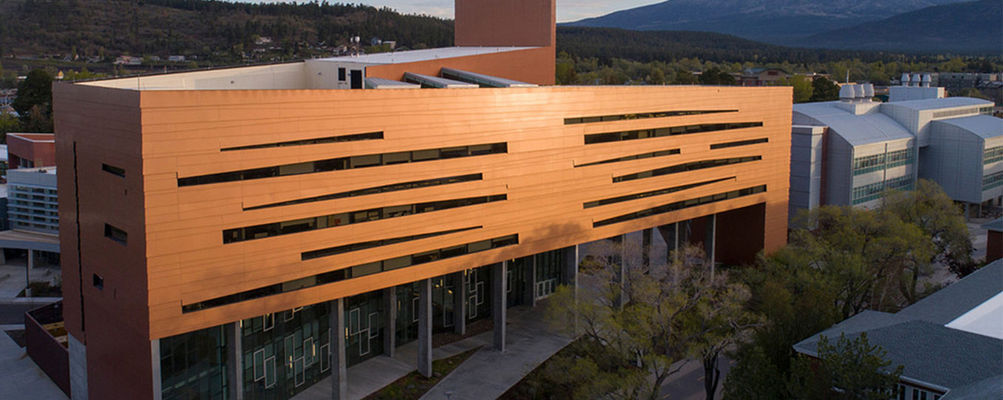
BCA in the USA
Study BCA in Australia & Save ₹ 20 Lakhs

Masters in Business Studies in Ireland
Save up to 20 Lakhs on MBS in Ireland

Study BBA in Australia & Save up to INR 20 Lakhs
Sunita Kadian, co-founder and Academic Head at Yuno Learning is an expert in IELTS and English communication. With a background in competitive exam preparation (IELTS, GMAT, CAT, TOEFL), interview prep, and corporate soft skills training, she has adapted these programs for the Yuno platform. Her dedication and commitment earned high praise from students, especially for her public speaking and advanced speaking English courses. Sunita's mastery of language nuances and articulation makes her a favorite among IELTS students. She holds a Postgraduate degree in English Literature, a B.Ed., and a Post Graduate Diploma in Public Relations.
Important Exams
Important resources for ielts, free study abroad counselling, refer your friend & earn upto ₹15000.
Help your friend upgrade to a Global Career and earn rewards together.
TRENDING SEARCHES
Editor's pick, other countries.
- MA in Communication
- Bachelors in Aviation
- BSc in Nursing
- Masters in Accounting
- Masters in Business Analytics in Australia
- Masters in Australia
- Masters in Public Health in Australia
- Courses in Australia
- Nursing Courses in Australia
- Universities in Australia
- La Trobe University
- University of Melbourne Courses
- University of Adelaide
- MS in Australia
- Masters in Canada
- University of Manitoba
- Courses in Canada
- Universities in Canada
- Masters in Data Science in Canada
- University of Victoria
- Concordia University
- Trent University
- University of Saskatchewan
- University of Windsor
- Thompson Rivers University
- University of West London Ranking
- Northumbria University Ranking
- Queen Mary University of London Ranking
- University of Oxford Courses
- Courses in UK
- University of Leicester Ranking
- Birmingham City University
- University of Bristol
- Masters in UK
- University of Leicester
- University of Strathclyde Ranking
- Queen Mary University of London
- University of Sussex Ranking
- Liverpool John Moores University Ranking
- Kings College London
- De Montfort University
- University of Cambridge Courses
- Bachelors in UK
- Manchester Metropolitan University Ranking
- Universities in UK
- Columbia University Ranking
- masters in computer science in usa
- George Mason University ranking
- Universities in USA
- Bachelors in USA
- Drexel University Ranking
- University of South Florida ranking
- Masters in USA
- University of Texas at Arlington ranking
- Saint Louis University Ranking
- Saint Louis University
- DePaul University
- Columbia University Acceptance Rate
- University of Texas at Dallas ranking
- Pace University
- University at Buffalo
- Purdue University
- Northeastern University ranking
- New York University Ranking
- Courses in USA
- DePaul University Ranking
- Northeastern University acceptance rate
- Purdue University ranking
- George Mason University
- University of Dayton ranking
- New York University
- Gre Exam Fee in India
- IELTS Band Score Chart
- MBA In UK Without Gmat
- IELTS Introduction Sample
- Duolingo Exam Fee
- SAT Exam Syllabus
- Usmle Test Centers In India
- 22 July IELTS Exam
- How to download IELTS Scorecard
- Duolingo Accepted Universities In Canada
- IELTS Writing Task 2 Topics
- IELTS Common Speaking Topics
- IELTS Speaking Scores
- Minimum IELTS Score For Canada
- Top Phrases for IELTS Speaking Test
- GRE Waived University In Usa
- Universities in Canada Without IELTS
- Duolingo Certificate
- Duolingo vs IELTS
- CEFR Level in IELTS
- Gmat Syllabus
- Duolingo Accepted Universities In Australia
- University of Limerick Courses
- Courses in Netherlands
- Dundalk Institute of Technology Courses
- Universities in Netherlands
- Dublin City University Courses
- Technological University Dublin
- University of Europe for Applied Sciences Acceptance Rate
- Dundalk Institute of Technology
- Business Courses in Ireland
- Technological University Dublin Courses
- Study in Netherlands
- Maynooth University Courses
- Masters Courses in Netherlands
- National University of Ireland Galway Courses
The above tips are the Author's experiences. upGrad does not guarantee scores or admissions.
Call us to clear your doubts at:
- Grievance Redressal
- Terms of Use
- Privacy Policy
- Report a Vulnerability
- University Partner
- Accommodation
- IELTS Band Calculator
- Download Study Abroad App
- Education Loan Calculator
- upGrad Abroad Office
- Expense Calculator
- Knowledge Base
- Business Partner
Top Destinations
Masters programs.
- MBA in Germany, IU
- MIM in Germany, IU
- MS in CS in Germany, IU
- MS in Data Analytics in USA, Clark University
- MS in Project Management in USA, Clark University
- MS in IT in USA, Clark University
- MS in Data Analytics & Visualization in USA, Yeshiva University
- MS in Artificial Intelligence in USA, Yeshiva University
- MS in Cybersecurity, Yeshiva University
Study Abroad Important Blogs
- Cost of Study:
- Cost of Studying in Canada
- Cost of Studying in Ireland
- Cost of Studying in Australia
- Cost of living:
- Cost of living in UK
- Cost of living in Australia
- Cost of living in Germany
- Cost of living in Ireland
- Cost of living in Canada
- Cost of Living in Singapore
- Cost of Living in Netherlands
- Career Opportunities:
- Career Opportunities in Australia
- Career Opportunities in Germany
- Job Opportunities in After MS in Canada
- Job Opportunities After MBA in Australia
- Job Opportunities After MS in UK
- IELTS Exam Resources:
- Academic IELTS
- IELTS Band Score
- IELTS Writing Task 2
- IELTS Slot Booking
- IELTS Score for UK
- IELTS Score for USA
- Validity of IELTS Score
- IELTS Speaking Topics
- IELTS Reading Tips
- How to Prepare for IELTS at Home Without Coaching
- IELTS Preparation Books
- Types of IELTS Exam
- IELTS Academic vs General
- IELTS Exam Pattern
- IELTS Essay
- IELTS Exam Dates
- Top Streams:
- Fashion Designing Courses in Australia
- Accounting Courses in Canada
- Management Courses in Canada

- Embedded System
- Interview Q
- Send your Feedback to [email protected]
Help Others, Please Share

Learn Latest Tutorials
Transact-SQL
Reinforcement Learning
R Programming
React Native
Python Design Patterns
Python Pillow
Python Turtle
Preparation

Verbal Ability

Interview Questions

Company Questions
Trending Technologies
Artificial Intelligence
Cloud Computing
Data Science
Machine Learning
B.Tech / MCA
Data Structures
Operating System
Computer Network
Compiler Design
Computer Organization
Discrete Mathematics
Ethical Hacking
Computer Graphics
Software Engineering
Web Technology
Cyber Security
C Programming
Control System
Data Mining
Data Warehouse

- Getting Results.
- Newsletters
WEATHER ALERT
4 advisories in effect for Flagler, Coastal, Inland and Volusia, Coastal, Inland Regions
Too many people, not enough management: a look at the chaos of 'overtourism' in the summer of 2024.
Laurie Kellman
Associated Press
Copyright 2024 The Associated Press. All rights reserved
Tourists queue to visit the interior of the 19th century Pena Palace in Sintra, Portugal, Wednesday, Aug. 14, 2024. (AP Photo/Ana Brigida)
SINTRA – The doorbell to Martinho de Almada Pimentel’s house is hard to find, and he likes it that way. It’s a long rope that, when pulled, rings a literal bell on the roof that lets him know someone is outside the mountainside mansion that his great-grandfather built in 1914 as a monument to privacy.
There's precious little of that for Pimentel during this summer of “overtourism."
Recommended Videos
Travelers idling in standstill traffic outside the sunwashed walls of Casa do Cipreste in Cintra sometimes spot the bell and pull the string “because it's funny," he says. With the windows open, he can smell the car exhaust and hear the “tuk-tuk” of outsized scooters named for the sound they make. And he can sense the frustration of 5,000 visitors a day who are forced to queue around the house on the crawl up single-lane switchbacks to Pena Palace, the onetime retreat of King Ferdinand II.
“Now I'm more isolated than during COVID,” the soft-spoken Pimentel, who lives alone, said during an interview this month on the veranda. “Now I try to (not) go out. What I feel is: angry.”
This is a story of what it means to be visited in 2024, the first year in which global tourism is expected to set records since the coronavirus pandemic brought much of life on Earth to a halt. Wandering is surging, rather than leveling off, driven by lingering revenge travel, digital nomad campaigns and so-called golden visas blamed in part for skyrocketing housing prices.
Anyone paying attention during this summer of “overtourism” is familiar with the escalating consequences around the world: traffic jams in paradise. Reports of hospitality workers living in tents. And “anti-tourism” protests intended to shame visitors as they dine — or, as in Barcelona in July, douse them with water pistols.
The demonstrations are an example of locals using the power of their numbers and social media to issue destination leaders an ultimatum: Manage this issue better or we'll scare away the tourists — who could spend their $11.1 trillion a year elsewhere. Housing prices, traffic and water management are on all of the checklists.
Cue the violins, you might grouse, for people like Pimentel who are well-off enough to live in places worth visiting. But it's more than a problem for rich people.
“Not to be able to get an ambulance or to not be able to get my groceries is a rich people problem?” said Matthew Bedell, another resident of Sintra, which has no pharmacy or grocery store in the center of the UNESCO-designated district. “Those don’t feel like rich people problems to me.”
What is ‘overtourism,’ anyway?
The phrase itself generally describes the tipping point at which visitors and their cash stop benefitting residents and instead cause harm by degrading historic sites, overwhelming infrastructure and making life markedly more difficult for those who live there.
It's a hashtag that gives a name to the protests and hostility that you've seen all summer. But look a little deeper and you'll find knottier issues for locals and their leaders, none more universal than housing prices driven up by short-term rentals like Airbnb, from Spain to South Africa. Some locales are encouraging “quality tourism,” generally defined as more consideration by visitors toward residents and less drunken behavior, disruptive selfie-taking and other questionable choices.
“Overtourism is arguably a social phenomenon, too,” according to an analysis for the World Trade Organization written by Joseph Martin Cheer of Western Sydney University and Marina Novelli of the University of Nottingham. In China and India, for example, they wrote, crowded places are more socially accepted. “This suggests that cultural expectations of personal space and expectations of exclusivity differ.”
The summer of 2023 was defined by the chaos of the journey itself — airports and airlines overwhelmed , passports a nightmare for travelers from the US . Yet by the end of the year, signs abounded that the COVID-19 rush of revenge travel was accelerating.
In January, the United Nations' tourism agency predicted that worldwide tourism would exceed the records set in 2019 by 2%. By the end of March, the agency reported, more than 285 million tourists had travelled internationally, about 20% more than the first quarter of 2023. Europe remained the most-visited destination. The World Travel & Tourism Council projected in April that 142 of 185 countries it analyzed would set records for tourism, set to generate $11.1 trillion globally and account for 330 million jobs.
Aside from the money, there's been trouble in paradise this year, with Spain playing a starring role in everything from water management problems to skyrocketing housing prices and drunken tourist drama.
Protests erupted across the country as early as March, when graffiti in Malaga reportedly urged tourists to “go f——— home.” Thousands of protesters demonstrated in Spain's Canary Islands against visitors and construction that was overwhelming water services and jacking up housing prices. In Barcelona, protesters shamed and squirted water at people presumed to be visitors as they dined al fresco in touristy Las Ramblas.
In Japan, where tourist arrivals fueled by the weak yen were expected to set a new record in 2024, Kyoto banned tourists from certain alleys. The government set limits on people climbing Mt. Fuji. And in Fujikawaguchiko, a town that offers some of the best views of the mountain's perfect cone, leaders erected a large black screen in a parking lot to deter tourists from overcrowding the site. The tourists apparently struck back by cutting holes in the screen at eye level.
Air travel, meanwhile, only got more miserable , the U.S. government reported in July. UNESCO has warned of potential damage to protected areas. And Fodor’s “ No List 2024 ” urged people to reconsider visiting suffering hotspots, including sites in Greece and Vietnam, as well as areas with water management problems in California, India and Thailand.
Not-yet-hot spots looked to capitalize on “de-touristing” drives such as Amsterdam's “Stay Away” campaign aimed at partying young men. The “Welcome to MonGOlia” camapaign, for example, beckoned from the land of Genghis Khan . Visits to that country by foreign tourists jumped 25% the first seven months of 2024 over last year.
Tourism is surging and shifting so quickly, in fact, that some experts say the very term “overtourism” is outdated.
Michael O'Regan, a lecturer on tourism and events at Glasgow Caledonian University, argues that “overtourism” has become a buzzword that doesn't reflect the fact that the experience depends largely on the success or failure of crowd management. It's true that many of the demonstrations aren't aimed at the tourists themselves, but at the leaders who allow the locals who should benefit to become the ones who pay.
“There’s been backlash against the business models on which modern tourism has been built and the lack of response by politicians," he said in an interview. Tourism “came back quicker than we expected,” he allows, but tourists aren't the problem. “There's a global fight for tourists. We can't ignore that. ... So what happens when we get too many tourists? Destinations need to do more research."
Of visitors vs being visited
Virpi Makela can describe exactly what happens in her corner of Sintra.
Incoming guests at Casa do Valle, her hillside bed-and-breakfast near the village center, call Makela in anguish because they cannot figure out how to find her property amid Sintra's “disorganized" traffic rules that seem to change without notice.
“There's a pillar in the middle of the road that goes up and down and you can’t go forward because you ruin your car. So you have to somehow come down but you can’t turn around, so you have to back down the road,” says Makela, a resident of Portugal for 36 years. “And then people get so frustrated they come to our road, which also has a sign that says `authorized vehicles only.' And they block everything.”
Nobody disputes the idea that the tourism boom in Portugal needs better management. The WTTC predicted in April that the country's tourism sector will grow this year by 24% over 2019 levels, create 126,000 more jobs since then and account for about 20% of the national economy. Housing prices already were pushing an increasing number of people out of the property market, driven upward in part by a growing influx of foreign investors and tourists seeking short-term rentals.
To respond, Lisbon announced plans to halve the number of tuk-tuks allowed to ferry tourists though the city and built more parking spaces for them after residents complained that they are blocking traffic.
A 40-minute train ride to the west, Sintra's municipality has invested in more parking lots outside town and youth housing at lower prices near the center, the mayor's office said.
More than 3 million people every year visit the mountains and castles of Sintra, long one of Portugal's wealthiest regions for its cool microclimate and scenery. Sintra City Hall also said via email that fewer tickets are now sold to the nearby historic sites. Pena Palace, for example, began this year to permit less than half the 12,000 tickets per day sold there in the past.
It's not enough, say residents, who have organized into QSintra, an association that's challenging City Hall to “put residents first” with better communication, to start. They also want to know the government's plan for managing guests at a new hotel being constructed to increase the number of overnight stays, and more limits on the number of cars and visitors allowed.
“We're not against tourists,” reads the group's manifesto. “We're against the pandemonium that (local leaders) cannot resolve."
Associated Press reporters Helena Alves in Lisbon and Mari Yamaguchi in Tokyo contributed to this report. Laurie Kellman writes about global affairs for AP's Trends + Culture team. Follow her at http://x.com/APLaurieKellman
Copyright 2024 The Associated Press. All rights reserved. This material may not be published, broadcast, rewritten or redistributed without permission.
India’s Surging Role in Global Tourism: Key Insights from Earnings Calls

Peden Doma Bhutia , Skift
August 12th, 2024 at 4:25 AM EDT
The travel industry is making a global shift to capture India’s booming outbound tourism. From hotels and airlines to credit cards and digital platforms, everyone’s racing to cater to this surging wave of Indian travelers. As the market soars, the India opportunity is simply too big to ignore.
Peden Doma Bhutia
India’s tourism industry is undergoing a significant transformation. The Federation of Indian Chambers of Commerce and Industry (FICCI) projects the outbound travel market to reach $55.4 billion by 2034 . At the core of this boom is India’s expanding middle class, driving both domestic and international travel as disposable incomes rise.
Indian tour and travel operators are also expected to see a 15-17% revenue increase in fiscal 2025, according to credit ratings agency CRISIL , which attributes this growth to improved infrastructure, rising incomes, evolving travel behaviors, and government efforts to boost domestic tourism.
India’s growing prominence on the global travel stage is further evident, with 2024 projections already at $18.8 billion. The surge of first-time tourists, as highlighted by McKinsey & Company , is a key factor. In 2023, 28.2 million Indians traveled abroad, surpassing pre-pandemic levels, while overseas spending hit $31.7 billion, with 54% dedicated to travel.
Global travel and hospitality leaders also recognize the potential of this burgeoning market. Skift analyzed recent earnings calls from these industries to gauge their outlook on India’s evolving role in global tourism.
India’s Push to Middle East Tourism
Accor: Sebastien Bazin, CEO of Accor, in the latest earnings call, highlighted the robust demand within India, noting the potential for Indian outbound travelers to double in the near future. “When it comes to the outbound of India, you have 40 million Indian people traveling abroad and 80% of them go Southeast Asia or they go to the Middle East. That 40 million could end up being 80 million in 1 year or 2 years from today,” he said at the latest earnings call.
This surge, he suggests, will have a profound impact on hotel markets in Southeast Asia and the Middle East, where a significant portion of Indian travelers head. “There’s no slowdown in demand in many of the airlines in the world and certainly not in India,” Bazin added.
Wynn Resorts: Talking about the Wynn Resorts coming up in UAE’s Ras Al Khaimah, CEO Craig Scott Billings said at the recent earnings call that while Europe is an important market for the UAE in general, India is also a huge market for this part of the world. “There’s a lot of folks there. There’s a lot of wealth in India, and that’s going to be an important market.”
Wizz Air: The aviation sector is similarly bullish on India’s potential. In its latest earnings call József Váradi CEO, Wizz Air, remarked on the “sparkling demand” from India, which is driving the need for more aircraft and infrastructure.
There Is no Slowdown in Demand
Hilton: Pointing out to the demand in Asia Pacific at the latest earnings call, Hilton CEO Chris Nassetta said the hotel company hasn’t seen any real signs of demand weakening in India.
Airbnb: Meanwhile, Brian Chesky, in Airbnb’s latest earnings call, positioned India as a crucial market alongside other major Asian economies.
Highlighting India’s rapid growth, noting a nearly 30% increase in nights booked in 2023 compared to the previous year, Dave Stephenson, Airbnb’s chief business officer, recently spoke about India as a burgeoning travel market with vast growth opportunities, positioning it among Airbnb’s top strategic priorities.
IHG: In its latest earnings call, IHG CEO Elie Wajih Maalouf reported nine hotel signings in India this quarter, highlighting the country’s strategic importance to the company’s growth. IHG recently signed a voco in Srinagar, IHG’s first hotel in Kashmir, slated to open in October 2026. This move aligns with IHG’s broader plan to expand in key leisure destinations across India, capitalizing on the country’s booming tourism sector.
Sudeep Jain, managing director for South West Asia at IHG, recently emphasized the rising trend of domestic travel to leisure destinations, noting that the signings reinforce IHG’s commitment to expanding its footprint in these high-potential markets.
The Push to Aviation
Airports in India are rapidly expanding to accommodate this growth, with Delhi’s airport now boasting a capacity of 100 million passengers.
Airports de Paris: In its latest earnings call, Augustin de Romanet, chairman and CEO of Airports de Paris (ADP), talked about the strategic significance of India’s airport infrastructure, forecasting that the country’s major airports are poised to emerge as key hubs in Asia.
He emphasized India’s position as a major aviation market, with an 8% compound annual growth rate in sales over the past decade, a trend he expects to continue given the substantial aircraft orders from airlines like IndiGo, Air India, and Akasa Air.
ADP’s investment in India, including a 49% stake in GMR Airports, aligns with this outlook.
Romanet pointed to the rapid growth of India’s population, particularly its middle class, as a catalyst for a sharp increase in air travel , contingent on the development of appropriate infrastructure. He also highlighted the vast potential in India’s market, especially with anticipated privatization of regional airports, which could offer strategic expansion opportunities for ADP.
However, he noted the company’s cautious approach, emphasizing the need to adapt their business model to capitalize on the right opportunities at the right time.
Visa: This trend is supported by government initiatives aimed at boosting tourism infrastructure and the increasing availability of travel-related financial products. Ryan McInerney, Visa CEO, pointed to the launch of India’s first co-branded credit card with rich airport-linked benefits with partners like Adani One and ICICI Bank, designed to cater to the evolving needs of Indian travelers. He said this would be for a target base of 400 million customers through the Adani One platform.
Skift India Travel Podcast
Skift Asia Editor Peden Doma Bhutia is joined by business leaders, and experts from throughout the industry and Skift’s newsroom, to explore the challenges, opportunities, and trends shaping the Indian travel industry.
Apple Podcasts | Spotify | YouTube | RSS
Skift India Report
India is booming. Discover the subcontinent’s most important travel news here every Tuesday-Thursday.
Have a confidential tip for Skift? Get in touch
Tags: accor , air india , airbnb , airports , asia monthly , earnings , hilton , ihg , india outbound , indigo airlines , middle class , middle east , visa , wynn resorts
Photo credit: India’s growing prominence on the global travel stage. Drobot Dean / Adobe Stock

IMAGES
COMMENTS
What are the advantages and disadvantages of Tourism? Answer: Tourism is a type of industry that relies on the willingness or need for individuals and organisations to visit or move to a certain area. It can often be very beneficial, but it can also have drawbacks. For example, Tourism creates jobs in an area and helps the economy grow.
The Disadvantages. With the way the tourism industry is currently run, the disadvantages of tourism may greatly outweigh the advantages in a country. The first factor to take into consideration is environmental damage. When a country has a high tourist attraction, the number of people occupying a space increases immensely. As a result, the ...
Disadvantages of Tourism. Environmental degradation: Tourism can have a negative impact on the environment, including increased pollution, depletion of natural resources, and destruction of wildlife habitats. Cultural erosion: Tourism can lead to the erosion of traditional cultures and ways of life. This is especially true in areas where ...
One of the significant advantages of tourism is that it can help protect and preserve the environment. Local governments can invest the revenue generated by tourism for the betterment of environmentally sensitive regions and areas with fragile ecosystems. 4. Improved Infrastructure is Among the Pros of Tourism.
The disadvantages of tourism: Conclusion . As I mentioned previously, this list is by no means exhaustive and unfortunately there is a range of other disadvantages of tourism. The problems tourism can cause in destinations around the world are complicated and entangled with other deep societal issues such as development, globalisation and ...
Widening income gap: Tourism can also lead to a widening income gap, as the benefits of tourism may not be distributed equally among all members of a community. This can lead to an increase in poverty, and social inequality. Inflation: Tourism can also lead to inflation, as the demand for goods and services increases, prices may rise, making it ...
When people travel from one place to another for leisure, then it leads to tourism. Moreover, it leads to job creation and thus elevates the GDP level of the country, which contributes to economic Growth. However, just like any other industry, tourism has drawbacks as well. Tourism can harm the society, culture, and environment of an area.
2. Puts Pressure on Natural Resources. Another con of the tourism industry is that it puts an immense amount of pressure on natural resources. Anytime someone stays in an area, they inevitably use the area's natural resources, like water and food. Cities and countries around the world have faced droughts.
These disadvantages are sometimes ignored by the tourism sector of that country as their sole purpose becomes profit. We must consider all aspects of tourism which include environmental responsibilities, profit and sustainability. Today, we will look at some of the Pros and Cons of Tourism; Advantages of Tourism 1. Wealth Generation
According to the World Travel and Tourism Council, "while the travel tourism sector accounts for 10.4% of global GDP, wildlife tourism represents 3.9% of this figure, or $343.6 billion, a figure equivalent to the entire GDP of South Africa or Hong Kong. Of equal significance is the fact that around the world, 21.8 million jobs, or 6.8% of ...
Tourism is fundamental to human well-being and indeed can be a tool for increased well-being of our planet. The articles in this issue are a start in describing the many ways tourism can create meaning and well-being for people and planet. An enhanced ethic of responsibility and caring for each other and life, along with innovations in the way ...
As it stands, overtourism is a seasonal issue for a small number of destinations. While there is no one-size-fits-all solution, a range of measures are clearly an option depending on the scale of ...
However, when tourism becomes unsustainable in nature, it can have disastrous consequences on the environment. When the tourist industry active in the region crosses the legal and ethical barriers to earn more profit, it can lead to massive degradation of the environment in the area. Local human population, flora, and fauna, suffer greatly due ...
[4] Tourism can be divided into subcategories into which impacts fall: spending from visitors on tourism experiences, like beach holidays and theme parks (domestic and international), business spending, and capital investment. ... In terms of economic disadvantages, local communities need to be able to fund the tourist demands, which leads to ...
The negative environmental impacts of tourism are substantial. They include the depletion of local natural resources as well as pollution and waste problems. Tourism often puts pressure on natural resources through over-consumption, often in places where resources are already scarce. Tourism puts enormous stress on local land use, and can lead ...
The Causes of overtourism. More than 1.4 billion people are moving around the world every year, and they are growing at an exponential rate. The World Tourism Organisation predicts that by 2030 the international flow of tourists will exceed 2 billion.This very high number of people focus on a few tourist destinations in the world, which suffer from the excessive presence of tourists.
Tourism today is paradoxically dominated by two opposite aspects: its sustainable character and overtourism. Since its creation by Skift in 2016 (Ali 2016), the term "overtourism" has been a buzzword in media and academic circles, although it may only be a new word for a problem discussed over the past three decades.. Overtourism is a complex and multifaceted phenomenon destructive to ...
3. Economic inequality: Tourism can exacerbate existing economic disparities within a destination, as wealth generated from tourism may not benefit the local community evenly. This can lead to increased poverty, exploitation of local workers, and displacement of residents to make way for tourist developments. 4.
First, tourism can lead to environmental degradation through increased pollution, deforestation, habitat destruction, and overuse of natural resources. Popular tourist destinations often experience increased waste generation and strain on local ecosystems. Second, excessive tourism can lead to the commodification and commercialization of local ...
the disadvantages of tourism may outweigh the advantages. For example, tourism leads . ... License (CC-BY 4.0) which permits any use, distribution and reproduction in any medium,
Adventure tourism — and tourism of all types — can result in "pollution and littering, as well as damage to natural habitats. It can also cause problems for locals, who may feel they are being ...
This essay talks about the advantages and disadvantages of tourism before concluding with a final opinion. The biggest benefits of tourism are quite obvious, i.e., boosting the national GDP and economy and creating more employment for local citizens and communities. Tourists use diverse solutions while traveling, including booking hotels ...
Disadvantages of Tourism. 1. Tourists' Negligence of the Environment. When it comes to tourism, thousands or even millions of people may travel somewhere. Particularly in places where tourists are more likely to travel, this high tourist influx has the potential to cause significant environmental damage.
The WTTC predicted in April that the country's tourism sector will grow this year by 24% over 2019 levels, create 126,000 more jobs since then and account for about 20% of the national economy.
Tourism. According to the City's tourism agency, NYC Tourism + Conventions, there were 10 percent more visitors in NYC during 2023 than in 2022, but still 7 percent fewer than in 2019. Based on slower growth in the demand for hotel rooms in the first half of 2024—the 12-month growth in room nights was 5.8 percent in June 2024, down from 28. ...
Excitement is mounting over Hong Kong's sudden surfeit of pandas, with tourism experts and lawmakers calling for the city to incorporate the six animals into its branding, develop copyrighted ...
WELLINGTON, New Zealand (AP) — Beijing weaponized tourism to the Pacific archipelago of Palau over its allegiance to Taiwan and its accusations that China was behind a major cyberattack there, President Surangel Whipps Jr. told The Associated Press.. Palau, along with Tuvalu and the Marshall Islands, is one three Pacific nations to recognize Taiwan as an independent democracy — viewed as a ...
Air Koryo planes are lined up at the airport in Samjiyon, North Korea in this file photo North Korea will reopen one city to foreign tourists in December after nearly five years of border closures ...
The attack happened around 11:30 a.m. Monday in Leicester Square, a tourism hot spot, outside a shop selling tea. An employee of the tea shop and other bystanders jumped on the suspect and held him to the ground until police arrived. A steak knife was recovered.
India's tourism industry is undergoing a significant transformation. The Federation of Indian Chambers of Commerce and Industry (FICCI) projects the outbound travel market to reach $55.4 billion ...